Every Best Actor Oscar Winner in Academy Award History

The first Academy Awards ceremony in 1929 had 13 categories. Now there are 24, and while the categories have changed over time, the honors for best actor and actress have remained steady for 95 years. Some of the actors’ wins were groundbreaking, while others are mystifying. But all are interesting.
See the Best Actress Oscar winners here.
More from Variety
Here are all the best actor winners since the beginning.
Best of Variety
Every Best Actor Oscar Winner
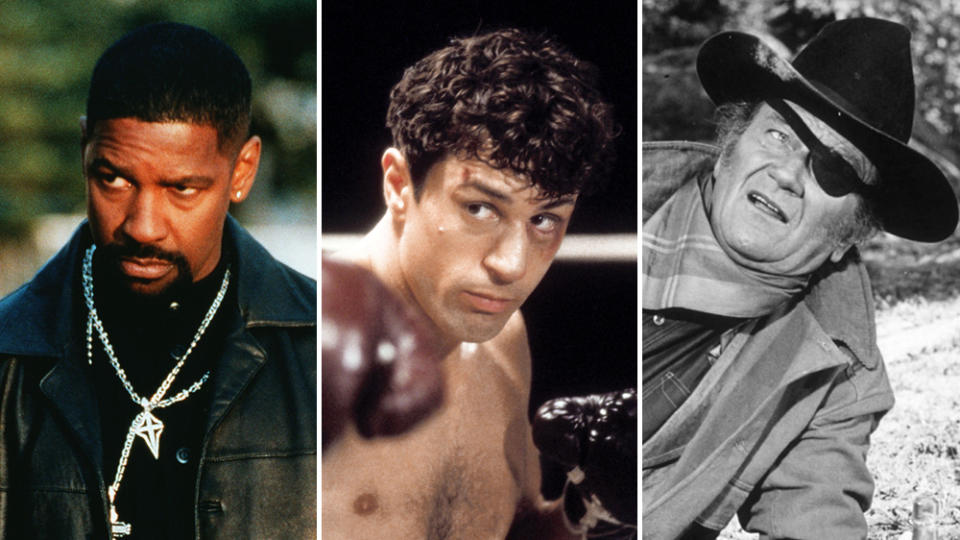
The first Academy Awards ceremony in 1929 had 13 categories. Now there are 24, and while the categories have changed over time, the honors for best actor and actress have remained steady for 90 years. Some of the actors’ wins were groundbreaking, while others are mystifying. But all are interesting. Here are all the best actor winners since the beginning.
Cillian Murphy
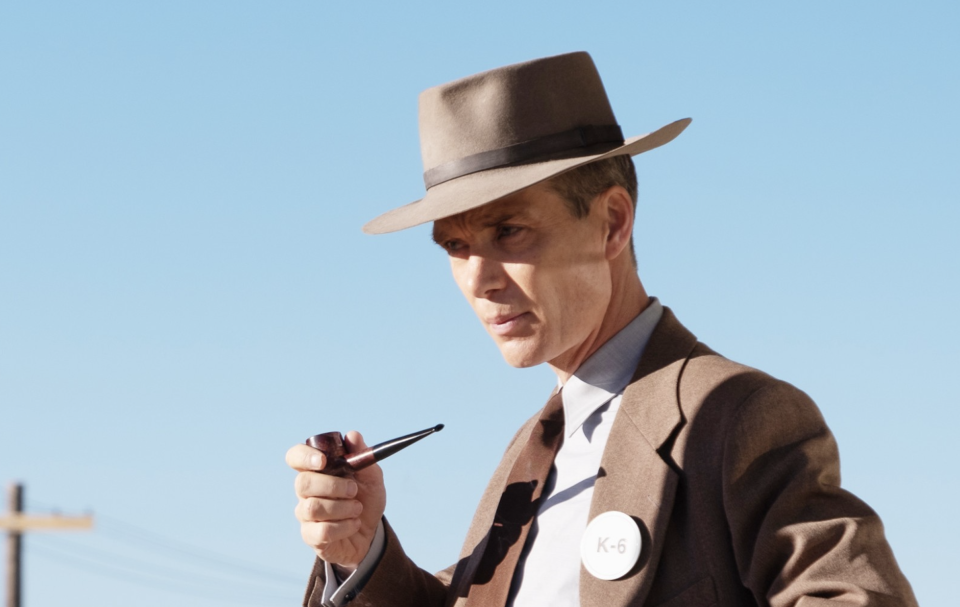
“Oppenheimer”
Cillian Murphy won best actor at the 2024 Oscars for his lead role as the atomic scientist in Christopher Nolan’s historical epic, which won seven Oscars including best director and best picture.
Brendan Fraser
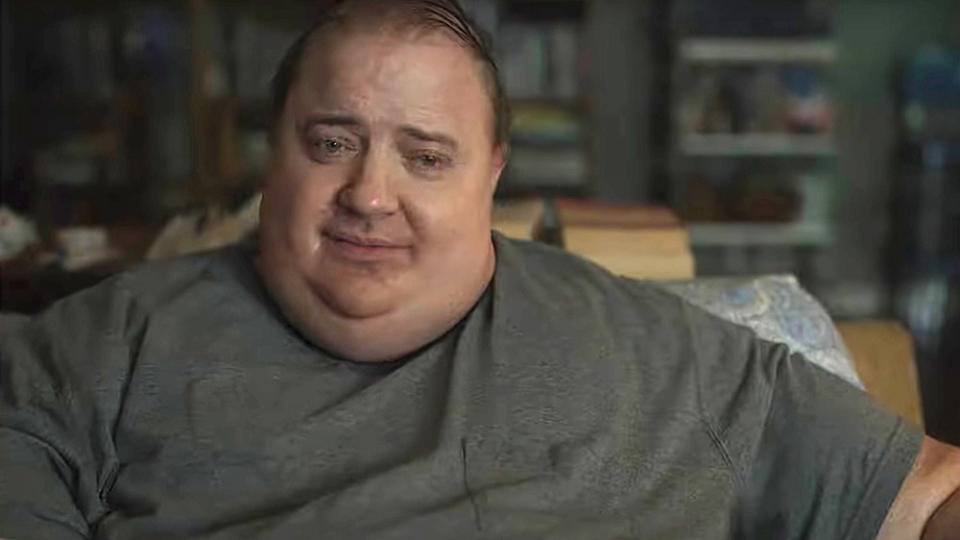
“The Whale”
Though critics were divided on Darren Aronofsky’s “The Whale,” Oscar voters agreed that Brendan Fraser’s performance as a 600 lb. English teacher was a standout.
Will Smith
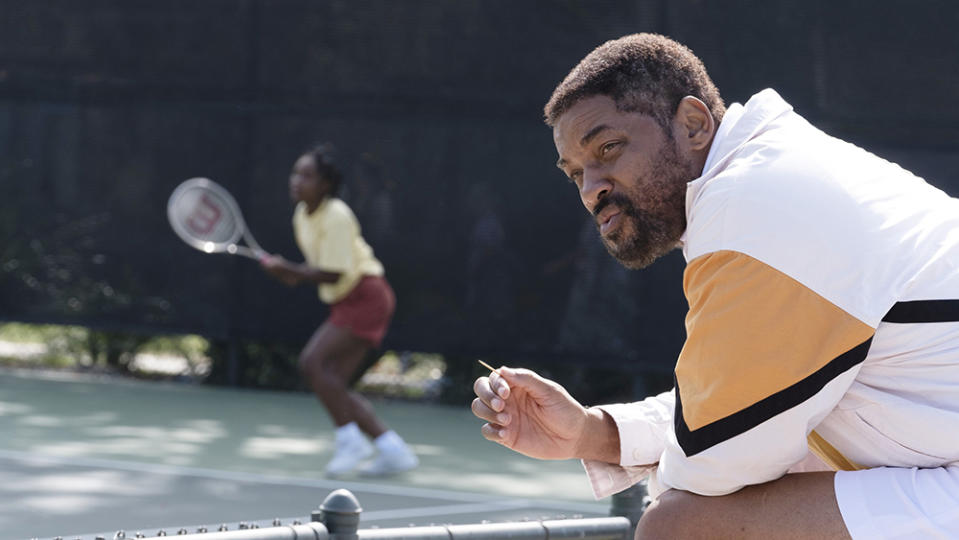
“King Richard”
Few best actor winners had an evening as memorable as Will Smith’s. Less than an hour before winning for “King Richard” (his third acting nomination), he set off one of Oscars’ all-time jaw-dropping moments. When presenter Chris Rock joked about Smith’s wife, Jada Pinkett Smith, the actor strode onstage and smacked the comic, then returned to his seat and twice shouted, “Keep my wife’s name out of your fucking mouth!” When Smith’s name was announced as the winner, he got a standing ovation and, in a tearful speech, said he was “overwhelmed by what God is calling me to do and be in this world.” Social media exploded over the event, while generally ignoring other aspects of the overlong and awkward Oscar show. After five days of Academy meetings, rumors, speculation, theories and gossip, Smith resigned from the Academy — a first for a brand-new winner.
Anthony Hopkins
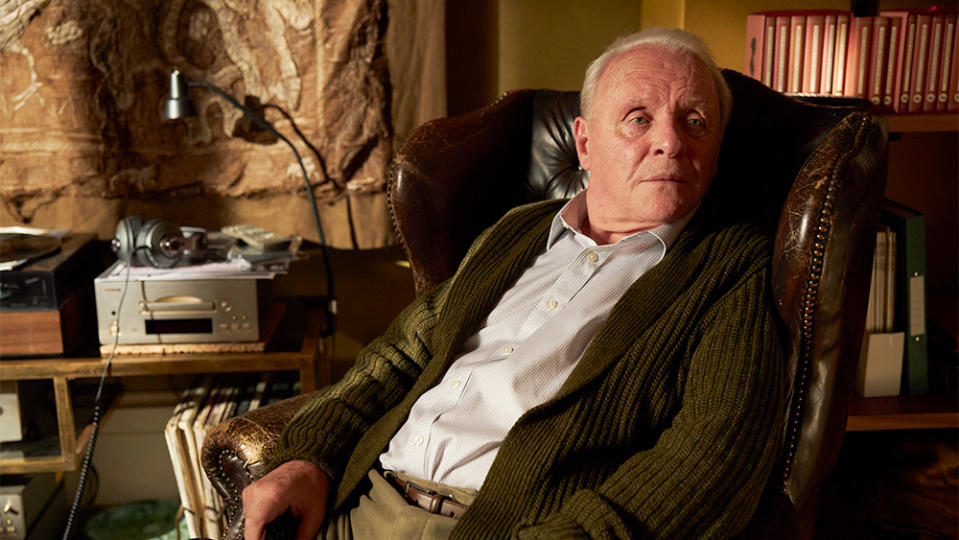
“The Father”
When Sony Pictures Classics’ “The Father” debuted at the 2020 Sundance Film Festival, critics predicted Anthony Hopkins would win the Oscar. During the next 15 months, the competition became more intense and he seemed a probable also-ran to the late Chadwick Boseman. But Hopkins’ depiction of dementia proved unforgettable, giving him a second best actor win after 1991’s “The Silence of the Lambs,” and making him the oldest acting winner at age 83. The film marked Florian Zeller’s directing debut, an adaptation of his own play.
Joaquin Phoenix (2019)
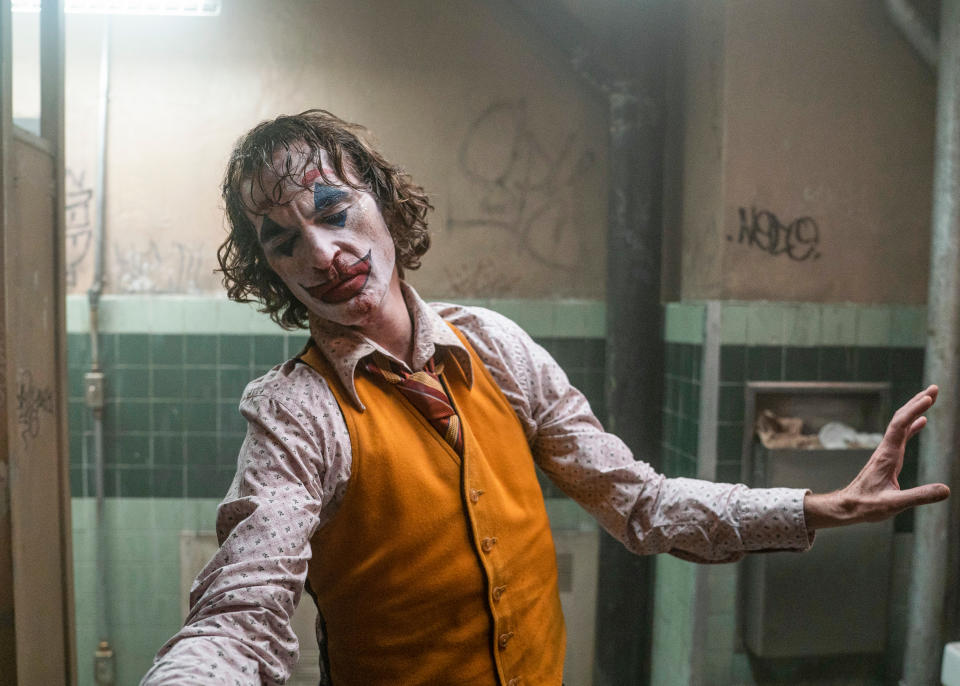
“Joker”
“Joker,” directed by Todd Phillips, is an origin story about how the Batman villain came to be. The film could only be described as a comic-book movie in the broadest sense, as director and co-writer Phillips made it a tale of people who suffer from mental illness and feel alienated. Though expectations were low before it caused a sensation at the Venice Film Festival, it earned more than $1 billion at the box office and universal praise for star Joaquin Phoenix, who made Joker/Arthur Fleck into a character who was sympathetic, yet scary.
Rami Malek (2018)
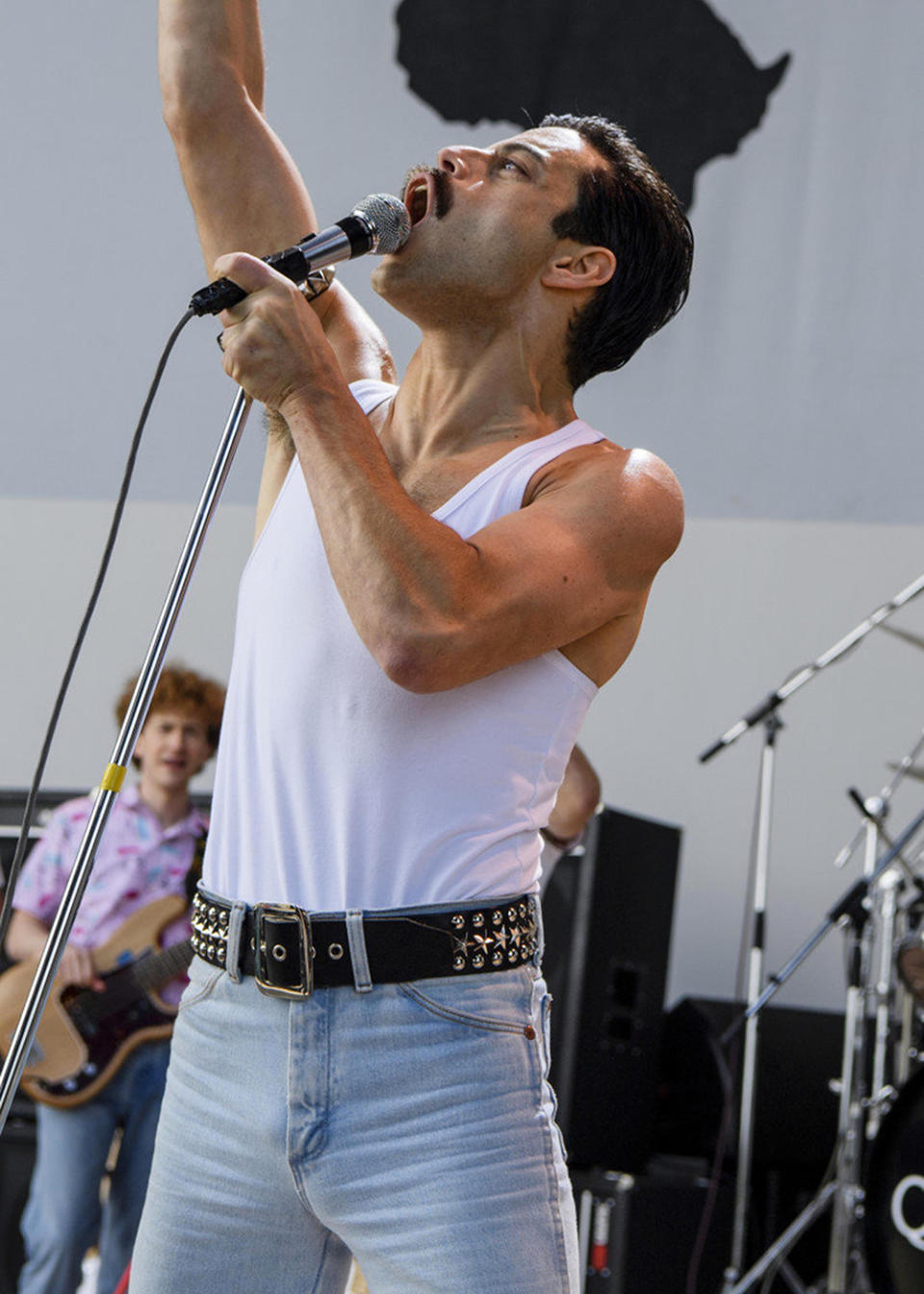
“Bohemian Rhapsody”
Three of 2018’s four acting winners depicted real-life characters, and Rami Malek was playing easily the most well known: Queen frontman Freddie Mercury. “Bohemian Rhapsody” was a crowd-pleaser, earning $869 million and winning four Oscars; while critics were split on the film, everybody was rhapsodic about Malek’s work.
Gary Oldman (2017)
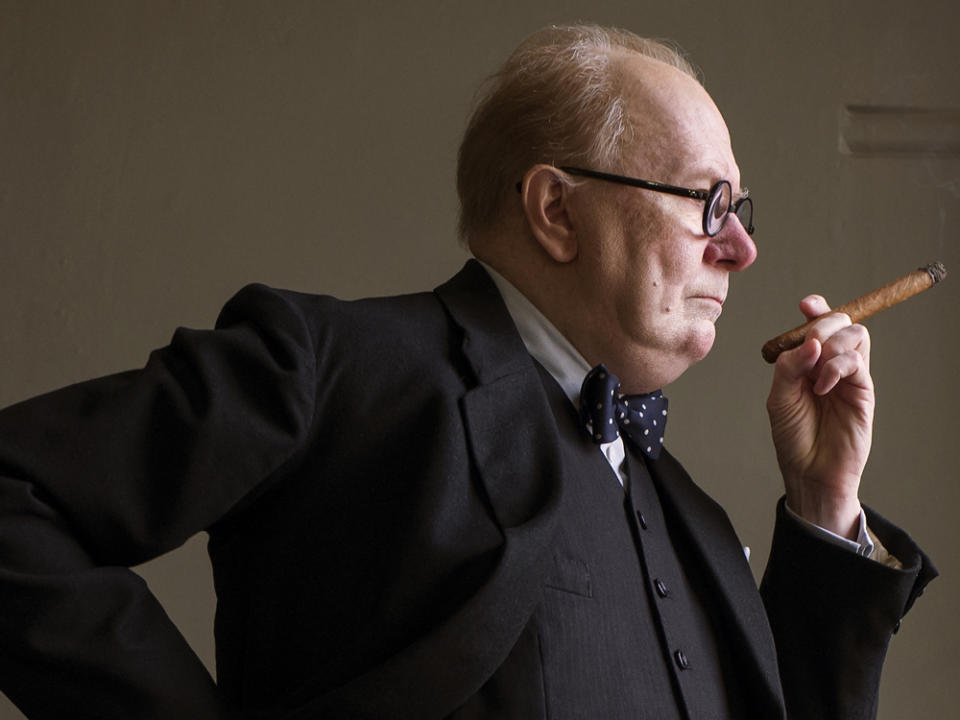
“Darkest Hour”
Another British WWII drama? Another depiction of Winston Churchill? Over the years, there have been a flood of both, but “Darkest Hour” seemed smart and fresh, thanks in large part to Gary Oldman. The actor has elevated many movies over the decades, but this was only his second Oscar nomination. And ever since the film first screened at the Telluride and Toronto festivals in September 2017, Oldman was correctly predicted to be the Oscar front-runner.
Casey Affleck (2016)
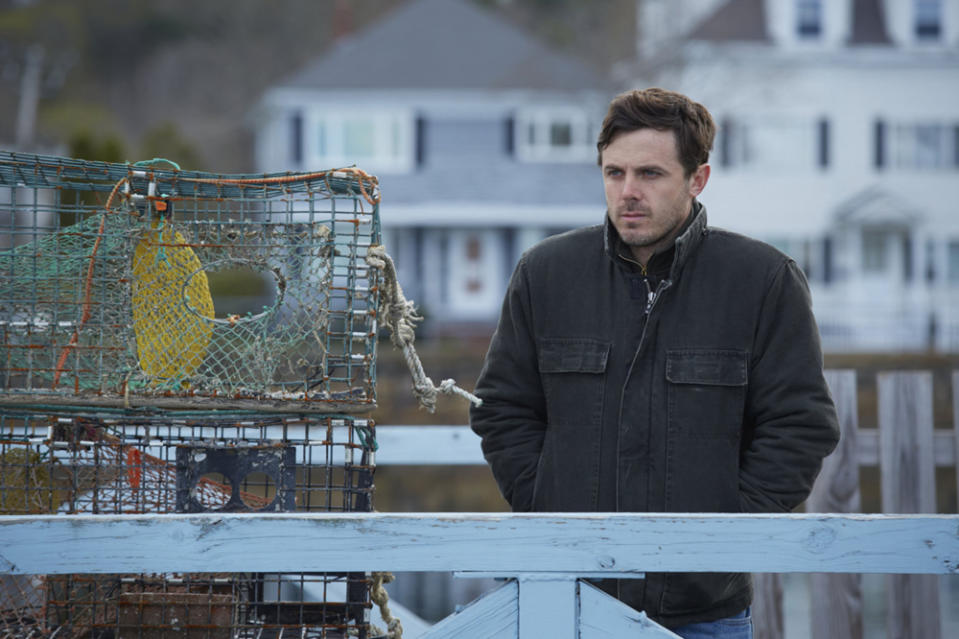
“Manchester by the Sea”
Casey Affleck played an inarticulate man haunted by his past in “Manchester by the Sea.” The wins for Affleck and for screenwriter Kenneth Lonergan were Hollywood validations of Amazon, which had expanded from selling online books to becoming a giant powerhouse in entertainment and other industries. Affleck bowed out of presenting best actress of 2017 (a longtime Oscar tradition) due to renewed attention around a 2010 legal settlement.
Leonardo DiCaprio (2015)
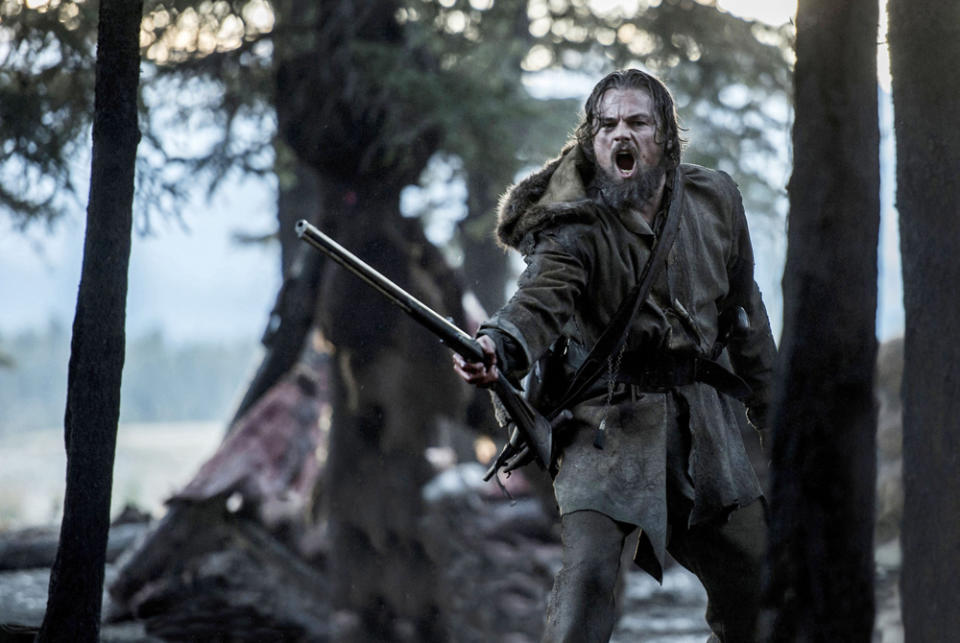
“The Revenant”
Frontiersman Hugh Glass survives a brutal bear attack, is left for dead, then exacts revenge on those who abandoned him. The big prize every year is best picture, but the no. 1 question for 2015 Oscar mavens was: Is this finally Leo’s year? It was. He became the ninth person in 12 years to win best actor for playing a real person and the fifth best actor winner for a western, after Warner Baxter, Gary Cooper, Lee Marvin and John Wayne. (Robert Duvall and Jeff Bridges get honorable mention here.)
Eddie Redmayne (2014)
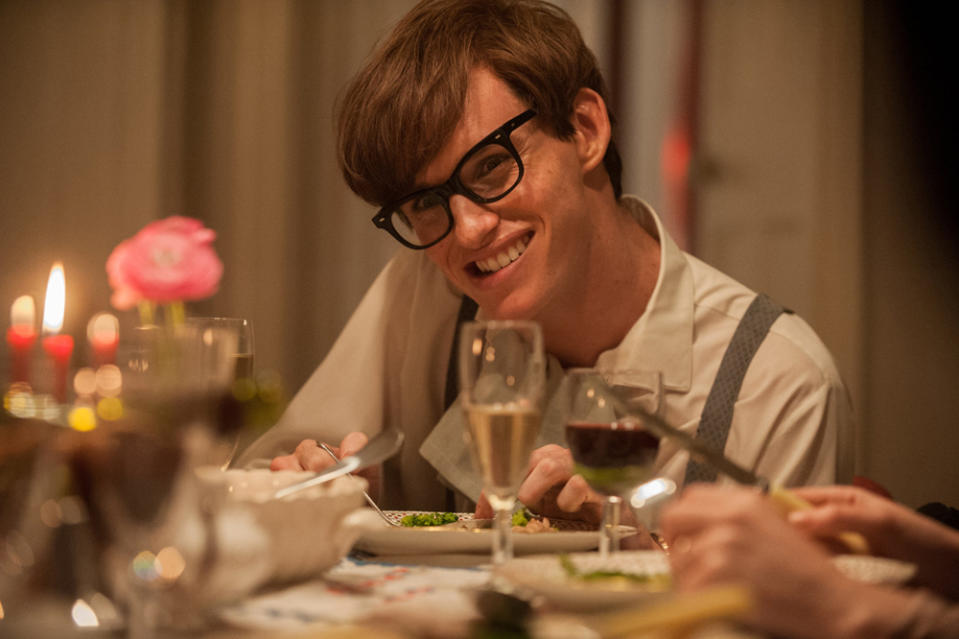
“The Theory of Everything”
It was considered a neck-and-neck race between Michael Keaton (“Birdman”) and Eddie Redmayne, though there were three other great performances nominated that year (including Benedict Cumberbatch for “The Imitation Game”). But Redmayne won for his portrayal of Stephen Hawking, in the biopic that spans 25 years in Hawking’s unorthodox but touching relationship with his wife (Felicity Jones).
Matthew McConaughey (2013)
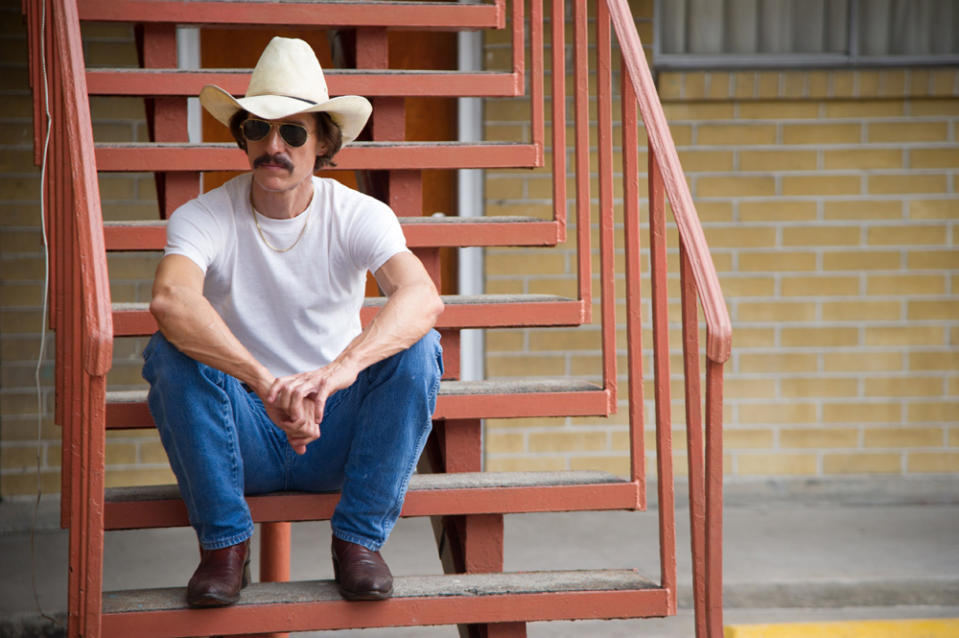
“Dallas Buyers Club”
Matthew McConaughey won by playing real-life homophobe Roy Woodroof, who learns compassion when he contracts AIDS in the 1980s and becomes an activist. Supporting actor Jared Leto was also Oscar’d for his work in the film.
Daniel Day-Lewis (2012)
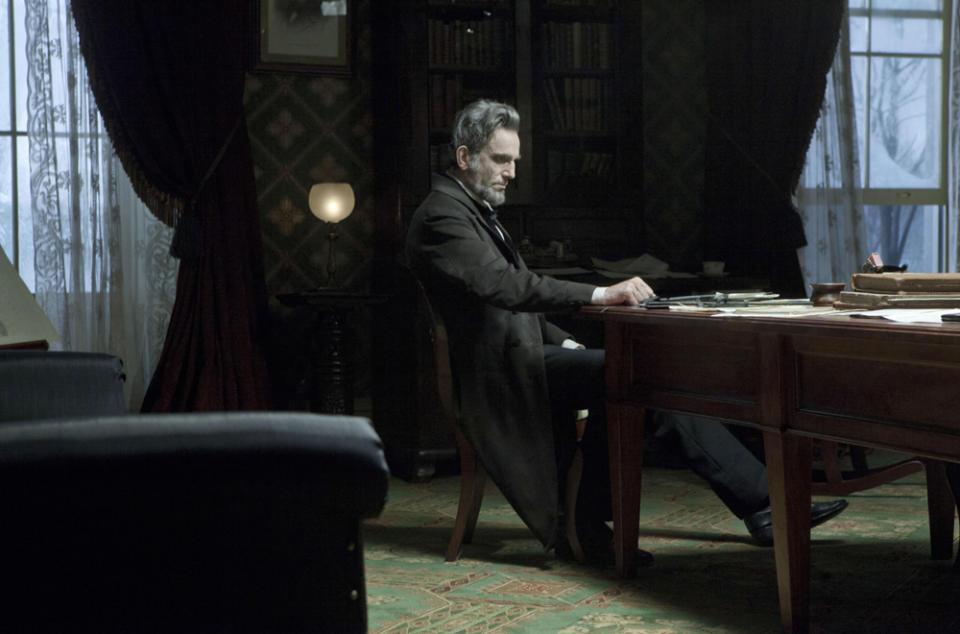
“Lincoln”
Many actors have been nominated for playing kings, but not so many as U.S. Presidents, and Day-Lewis was the first to win. He also became the first person to win three best actor Oscars. Only 23 individuals so far have won two leading actor/actress trophies; that includes Day-Lewis and Katharine Hepburn, who lead the pack with three and four, respectively, while Jack Nicholson, Ingrid Bergman and Meryl Streep have each won two leads and one supporting.
Jean Dujardin (2011)
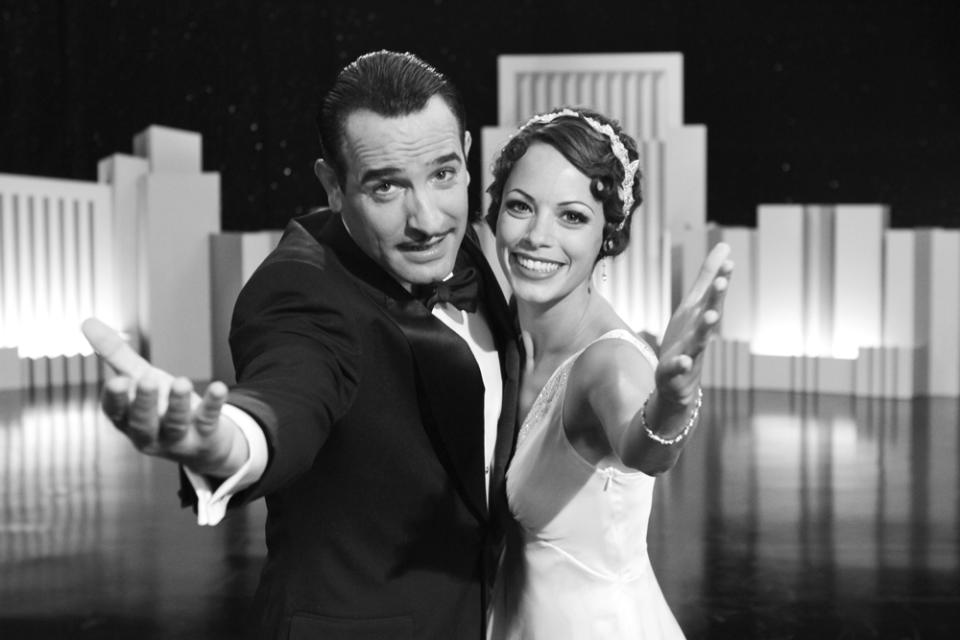
“The Artist”
Hollywood (and the rest of the world) was charmed by the offbeat daring of “The Artist,” a black-and-white silent film about an actor in the early days of moviemaking, written and directed by the little-known French filmmaker Michel Hazanavicius. Star Jean Dujardin won over audiences with his funny-sad portrayal of the struggling former star.
Colin Firth (2010)
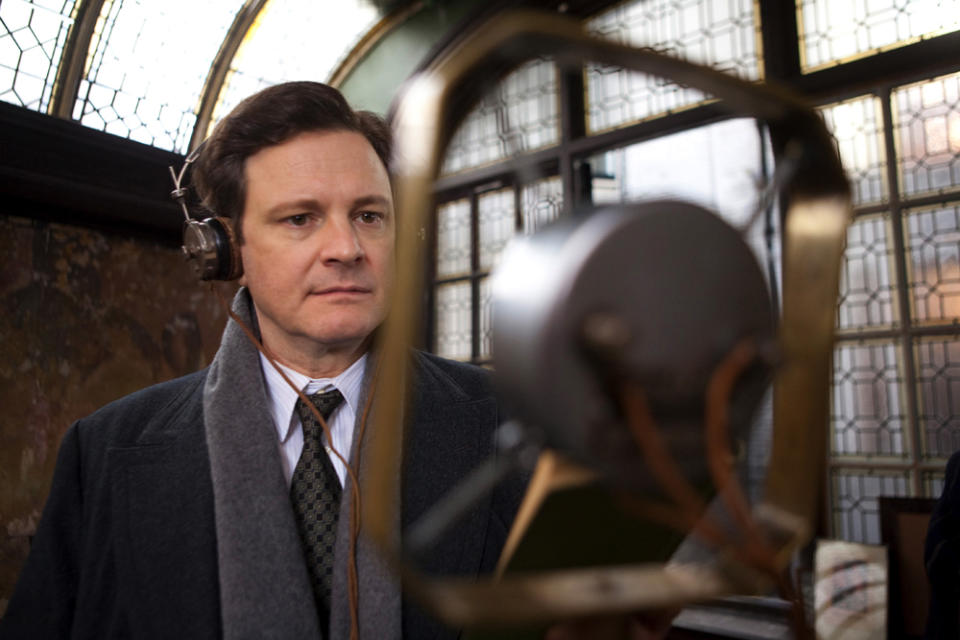
“The King’s Speech”
Colin Firth had a breakthrough role in the play “Another Country” and its 1984 film adaptation. He became a sexy leading man with TV’s “Pride and Prejudice” and worked for two decades, including roles in best picture winners “The English Patient” and “Shakespeare in Love.” He entered a new realm in the 2009 Tom Ford film “A Single Man,” followed by his knockout work in “The King’s Speech” as England’s King George VI. The film was directed by Tom Hooper, who steered actors to seven Oscar nominations and three wins in only five films.
Jeff Bridges (2009)
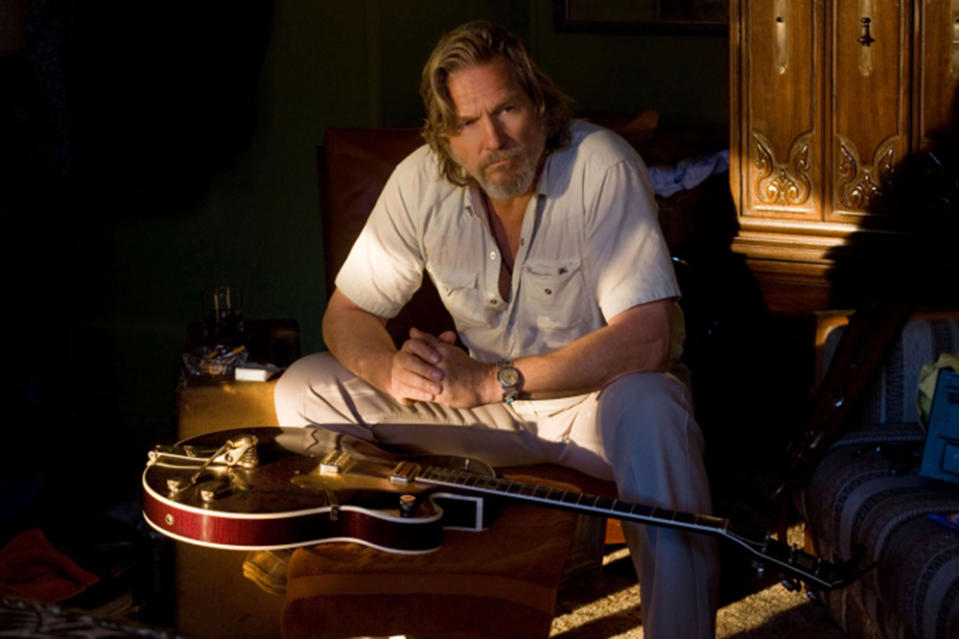
“Crazy Heart”
Jeff Bridges won on the fifth of his seven (so far) Oscar nominations. Like Robert Duvall years earlier, the veteran actor won for playing a country music performer who’s having a hard time with his career and personal life.
Sean Penn (2008)
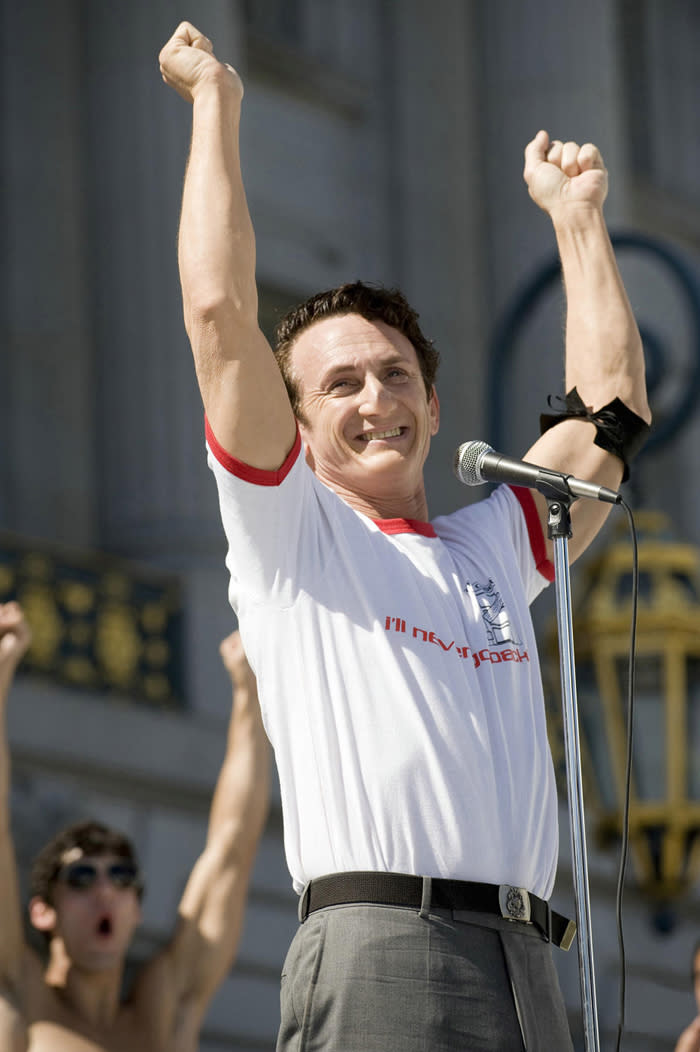
“Milk”
Sean Penn earned his second win in six years, playing San Francisco’s ground-breaking gay politician Harvey Milk, which showed a softer and more fun side of Penn than he had previously demonstrated. Gus Van Sant directed from Dustin Lance Black’s Oscar-winning screenplay.
Daniel Day-Lewis (2007)
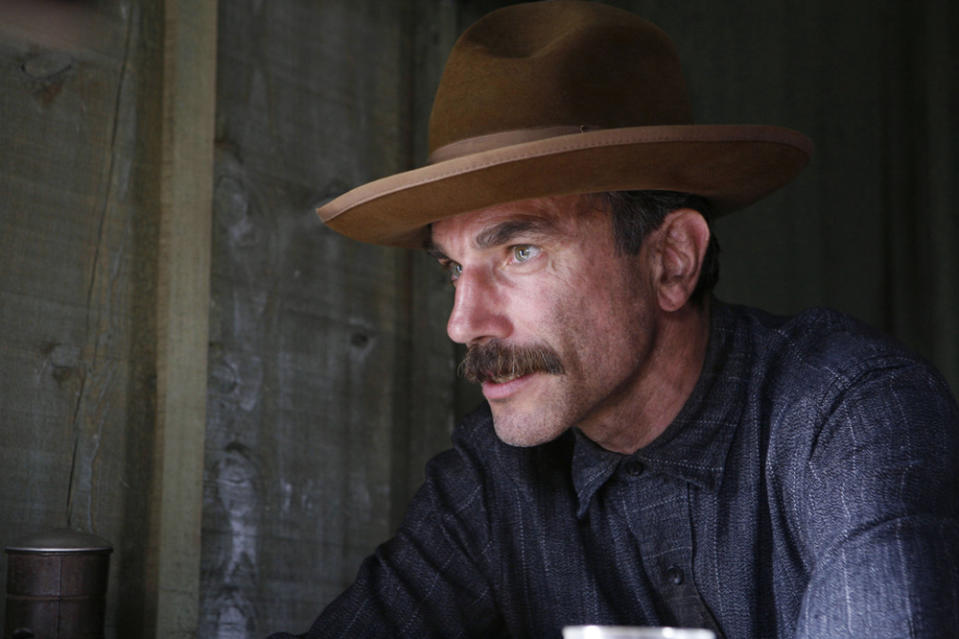
“There Will Be Blood”
Daniel Day-Lewis earned his second best actor win in the Paul Thomas Anderson film, loosely based on Upton Sinclair’s 1927 novel “Oil!” The actor also uttered one of film history’s memorable lines while bullying Paul Dano as he shouts “I drink your milkshake!”
Forest Whitaker (2006)
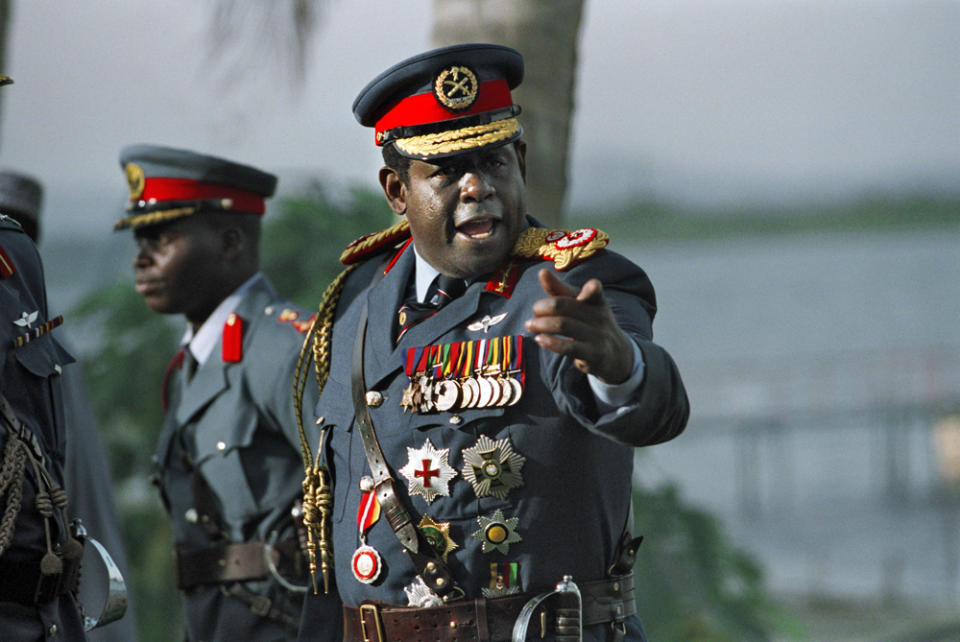
“The Last King of Scotland”
This was an often-fictionalized account of Ugandan dictator Idi Amin in the 1970s, and his relationship with his physician (James McAvoy). Forest Whitaker had played dozens of roles in TV and film, but this established him as an actor of great range, in his best role since the Clint Eastwood-directed “Bird,” about jazz musician Charlie Parker.
Philip Seymour Hoffman (2005)
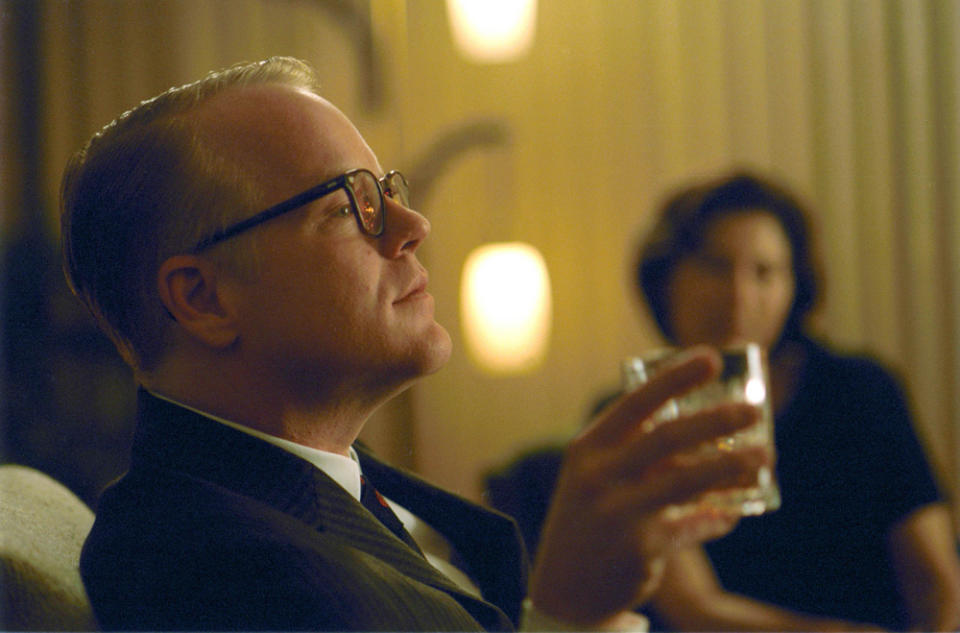
“Capote”
This was one of two films about Truman Capote writing his true-crime book “In Cold Blood” in Kansas. (Toby Jones starred in the other film, “Infamous”). Capote, who also wrote “Breakfast at Tiffany’s,” was well known from TV talk show appearances; while Hoffman didn’t resemble him, Oscar voters were wowed by his multi-layered performance.
Jamie Foxx (2004)
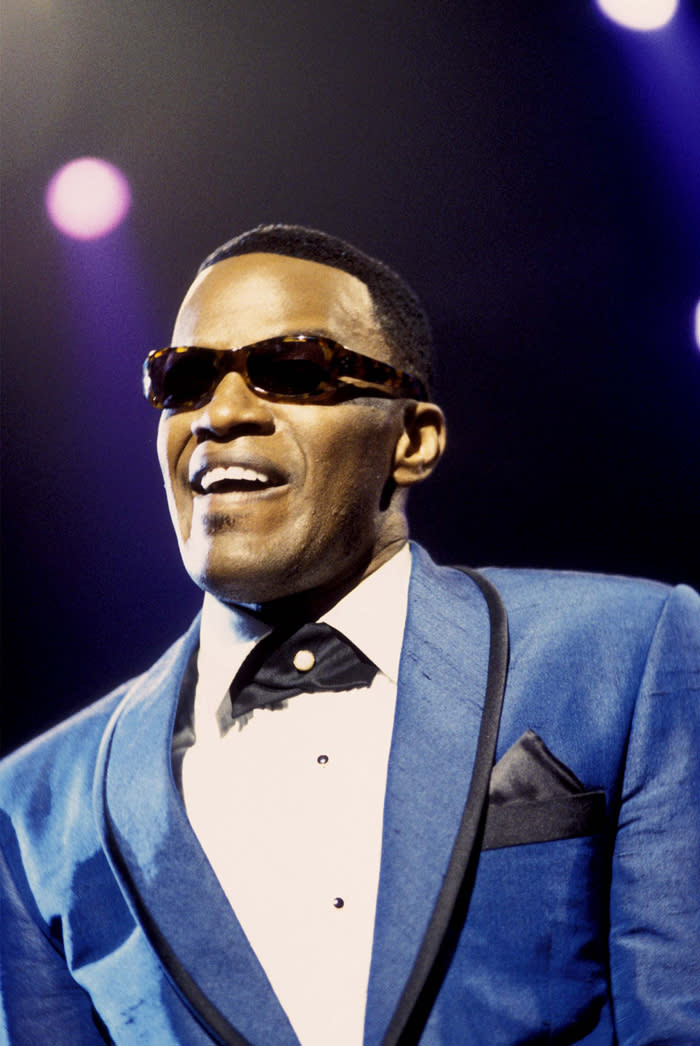
“Ray”
It’s not easy to play a personality as well-known as Ray Charles, but Jamie Foxx won every award possible that year for his work as the influential musician. Foxx got his big break on the sketch-comedy TV series “In Living Color” and proved his versatility in 2004, also earning a supporting actor Oscar nomination for “Collateral” with Tom Cruise.
Sean Penn (2003)
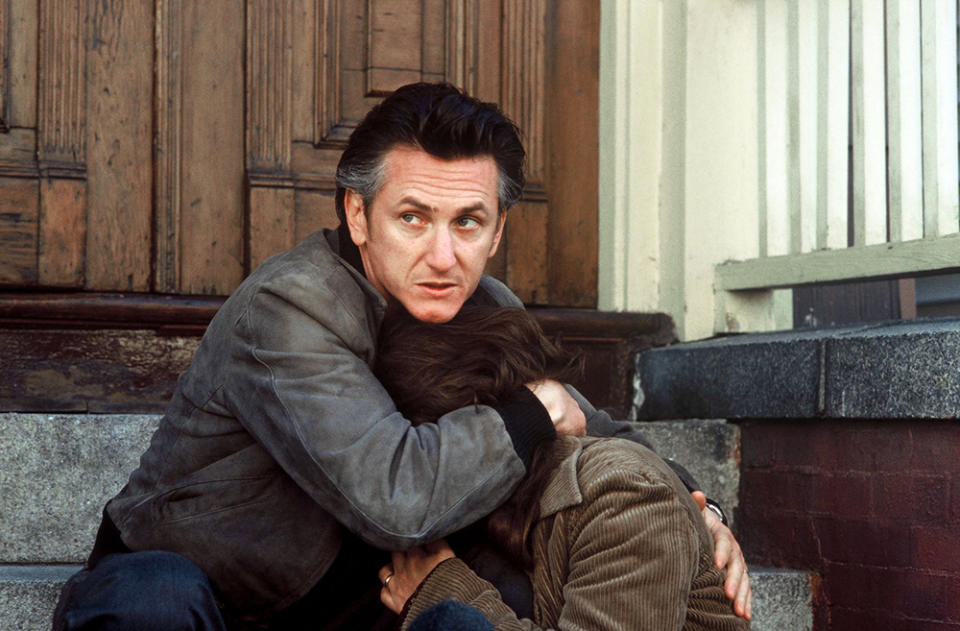
“Mystic River”
Sean Penn won as a man grieving the murder of his daughter in the Clint Eastwood-directed film, from a Dennis Lehane novel. The film was nominated for six Oscars and Tim Robbins also won for his supporting turn as a childhood friend of Penn’s character, who becomes a suspect.
Adrien Brody (2002)
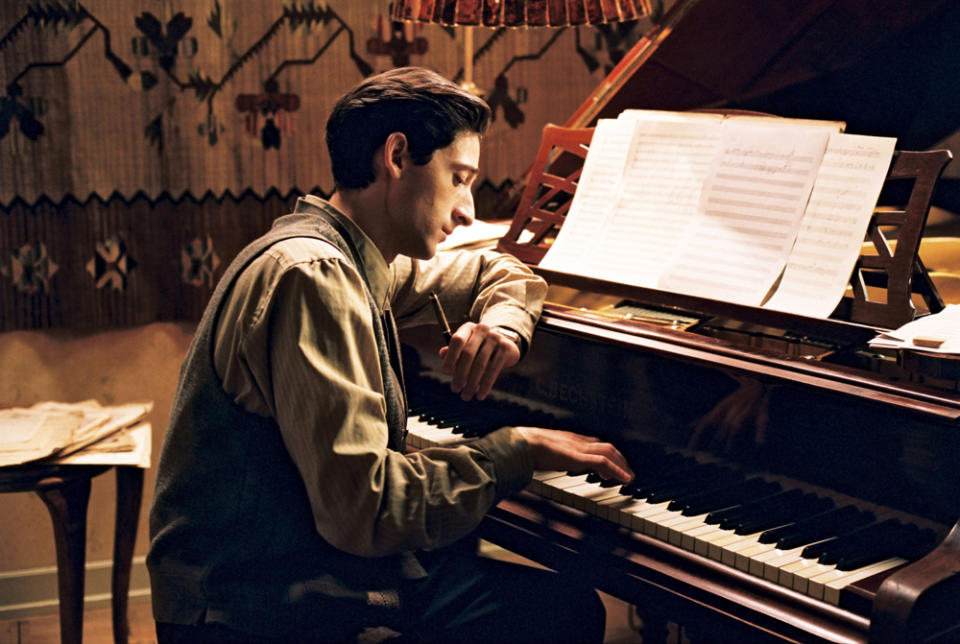
“The Pianist”
At 29 (22 days before his 30th birthday), Adrien Brody became the youngest best actor winner ever. Pundits declared that the best actor prize that year was a contest between Jack Nicholson (“About Schmidt”) and Daniel Day-Lewis (“Gangs of New York”), but Brody and director Roman Polanski pulled off major upsets by winning for the widely admired “The Pianist.”
Denzel Washington (2001)
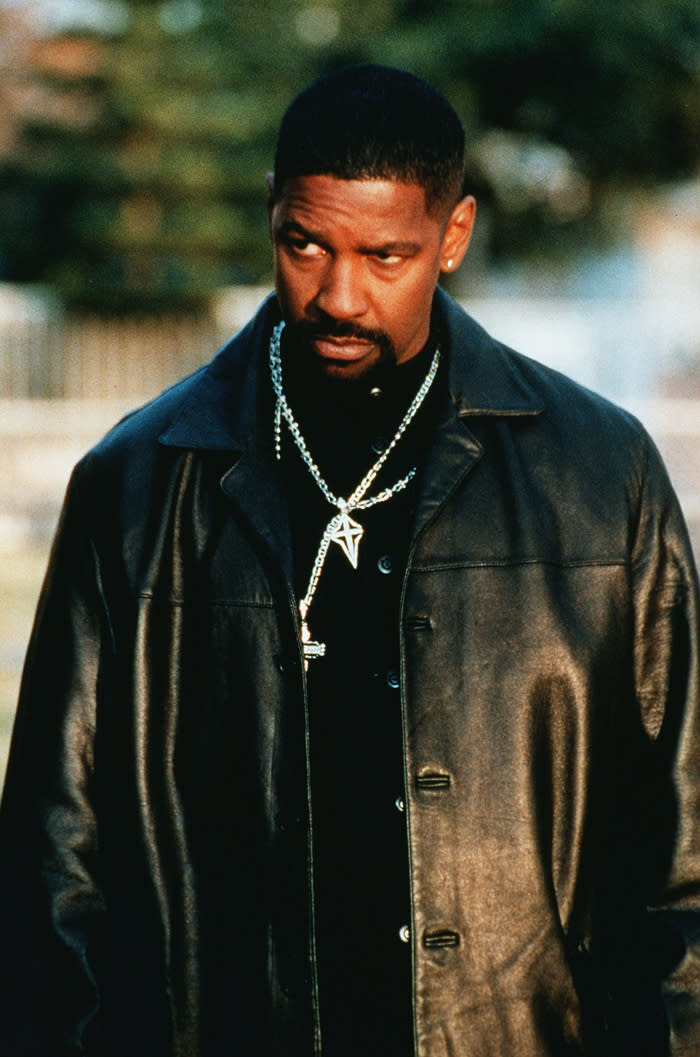
“Training Day”
Denzel Washington became the 11th actor to win in both the lead and supporting categories. The actor had won a supporting Oscar for the 1989 “Glory.” “Training Day” was a change of pace for the charismatic actor: A villainous role as a corrupt cop. This was the fifth of his eight acting noms (with another as a producer of the 2016 “Fences”).
Russell Crowe (2000)
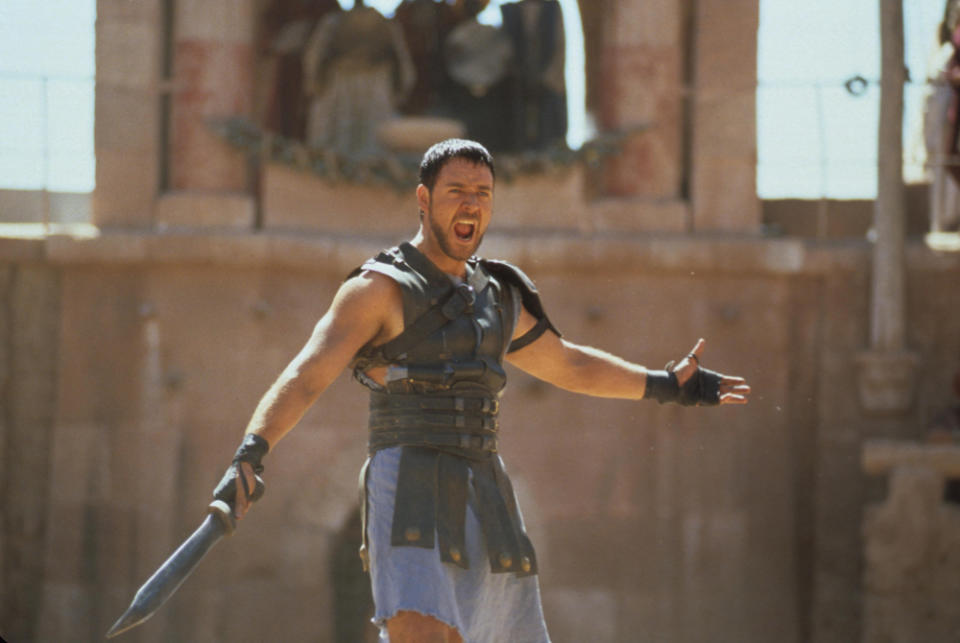
“Gladiator”
Russell Crowe won for his performance in the best picture winner “Gladiator,” a Ridley Scott-directed spectacle that combined classic Hollywood storytelling with state-of-the-art CGI work. This movie was the second of Crowe’s three consecutive nominations, between “The Insider” and “A Beautiful Mind.”
Kevin Spacey (1999)
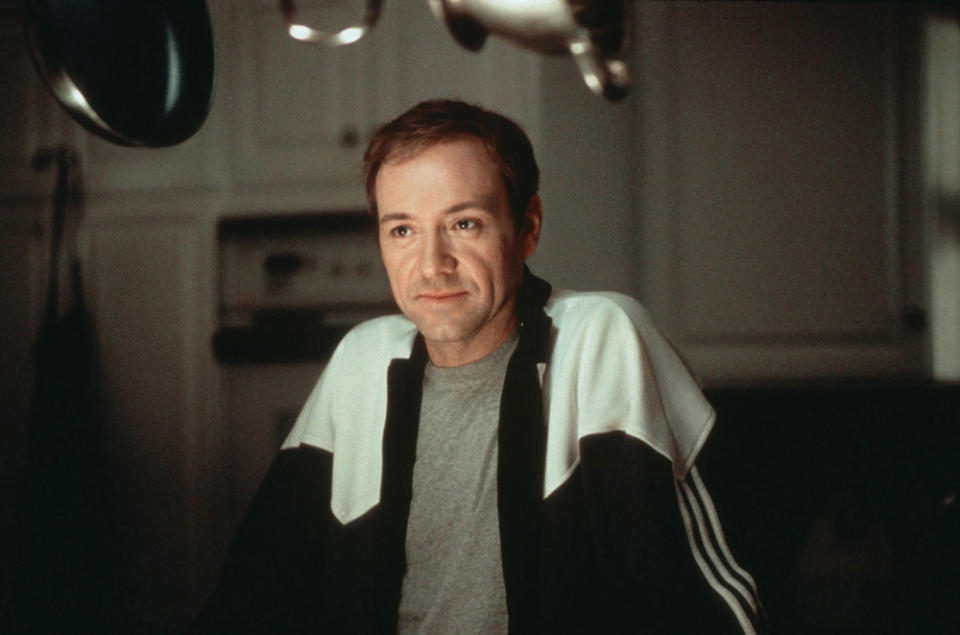
“American Beauty”
Long before his 2017 scandal and banishment from Hollywood, Kevin Spacey won two Oscars. The first was supporting actor for “The Usual Suspects,” and the second was for his work in the best picture winner “American Beauty,” a dark satire of suburbia. The 1999 contest seemed to be a tight race for best actor between Denzel Washington of “The Hurricane” and Spacey, but the latter won, possibly because of mudslinging that questioned the accuracy of biopic “Hurricane.”
Roberto Benigni (1998)
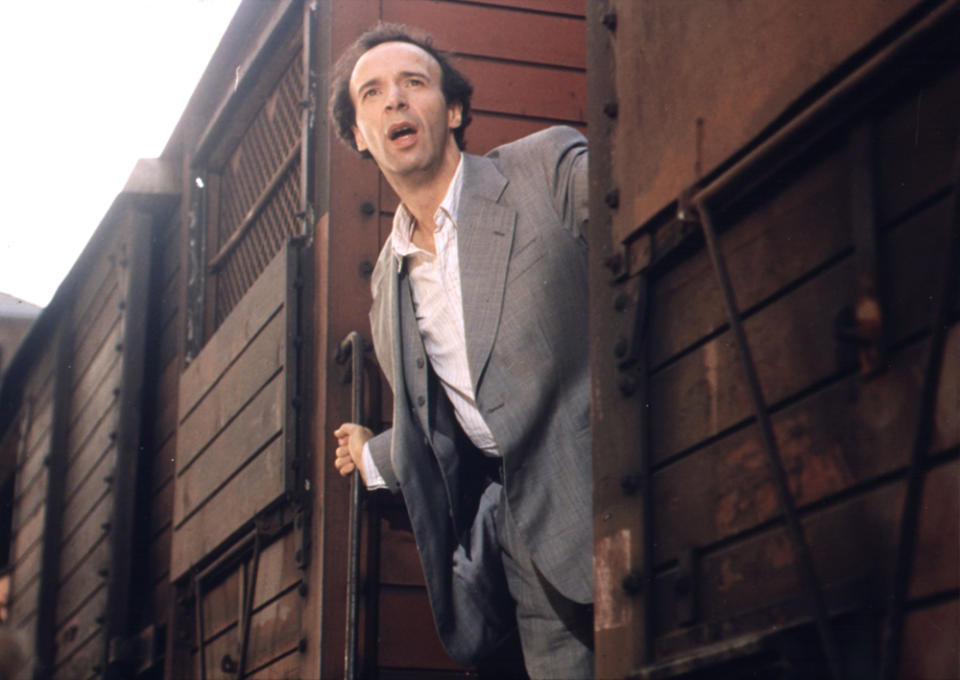
“Life is Beautiful”
Roberto Benigni is an Oscar rarity, winning for a performance not in the English language. He also became only the second actor to win this prize in a film that he also directed, after Laurence Olivier in “Hamlet.”
Jack Nicholson (1997)
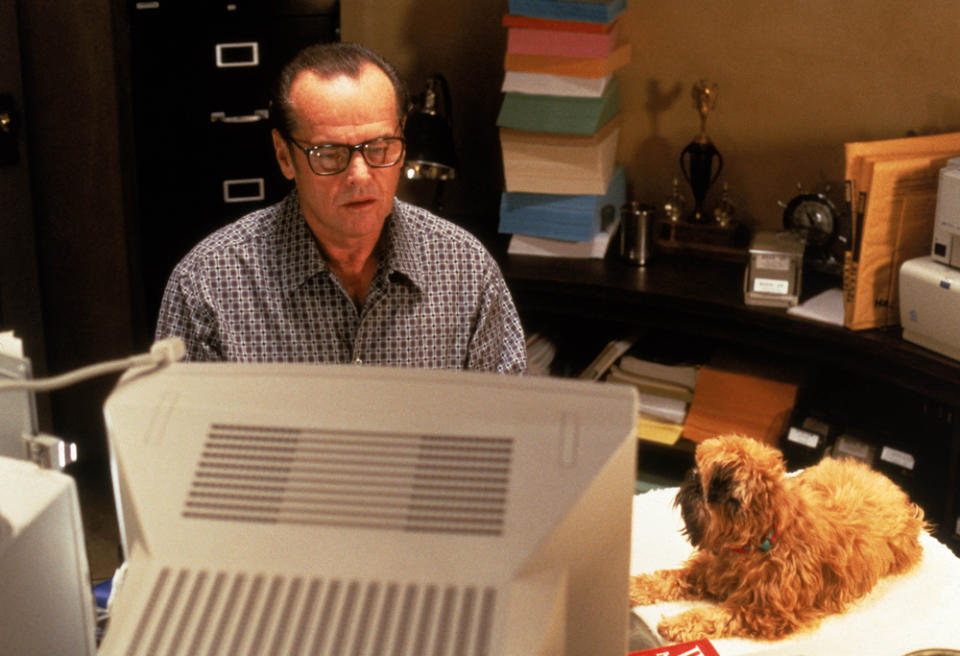
“As Good as it Gets”
Jack Nicholson earned his third Oscar, and his second under the direction of James L. Brooks (after a supporting win for “Terms of Endearment”) as an obsessive-compulsive man who falls in love with a waitress (Helen Hunt, who also won an Oscar that year). Nicholson has won three Academy Awards — and in each case, his female costar also won.
Geoffrey Rush (1996)
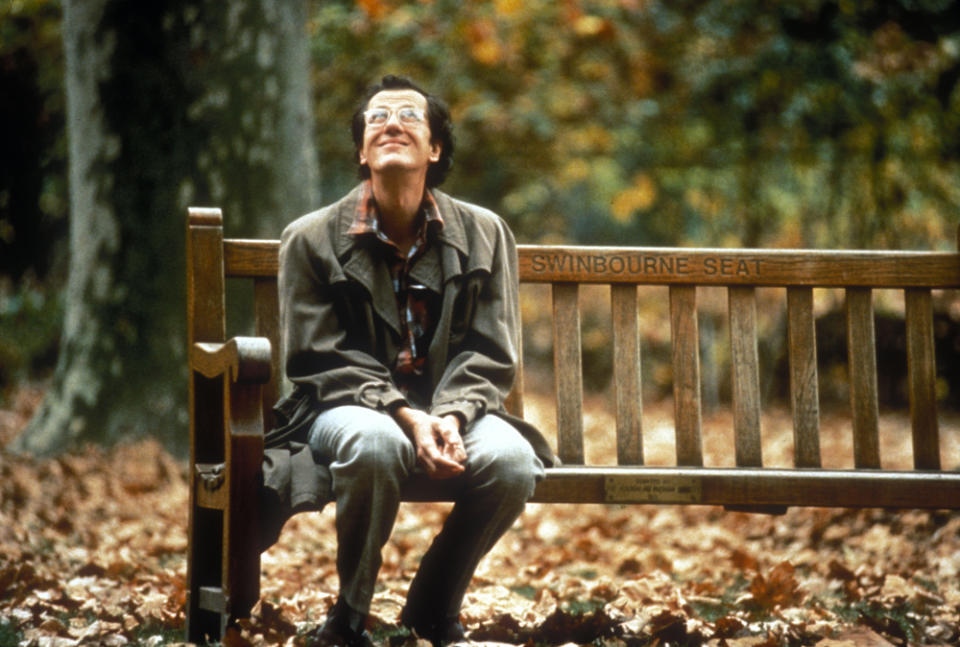
“Shine”
Australian actor Geoffrey Rush dominated the film as real-life David Helfgott, a talented pianist with schizophrenia (Noah Taylor played adolescent Helfgott). It was one of Rush’s first movies, and certainly the first seen around the world. He subsequently has earned three additional Oscar nominations.
Nicolas Cage (1995)
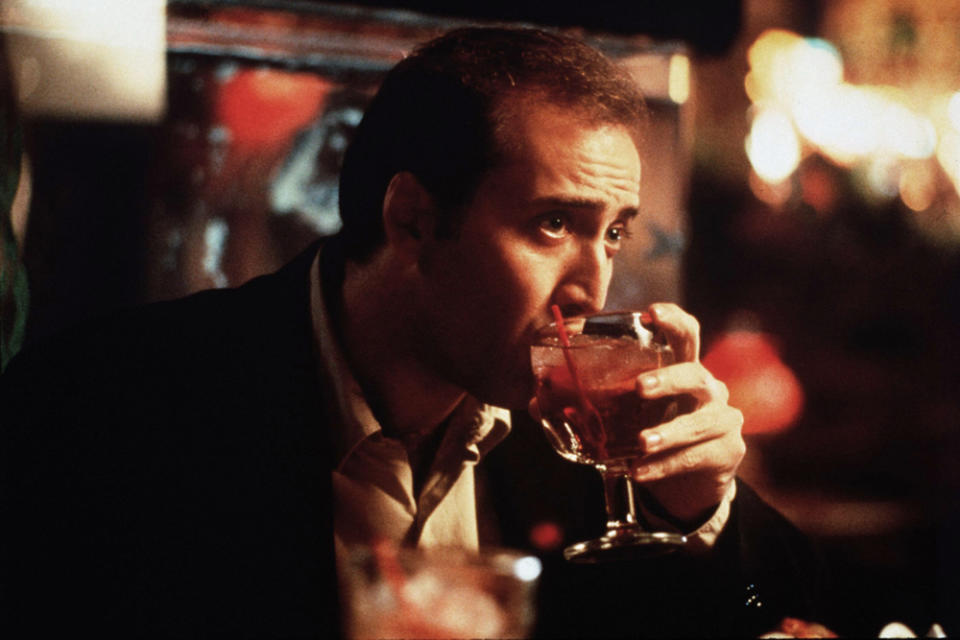
“Leaving Las Vegas”
Part of the Coppola family, Nicolas Cage won an Oscar as a down-on-his luck alcoholic. Mike Figgis wrote (from a story by John O’Brien) and directed the tale. The film earned four key nominations: two for Figgis, plus Cage and best actress contender Elisabeth Shue. Like the 1971 “Sunday, Bloody Sunday,” it earned all of those key noms, but surprisingly no best picture bid.
Tom Hanks (1994)
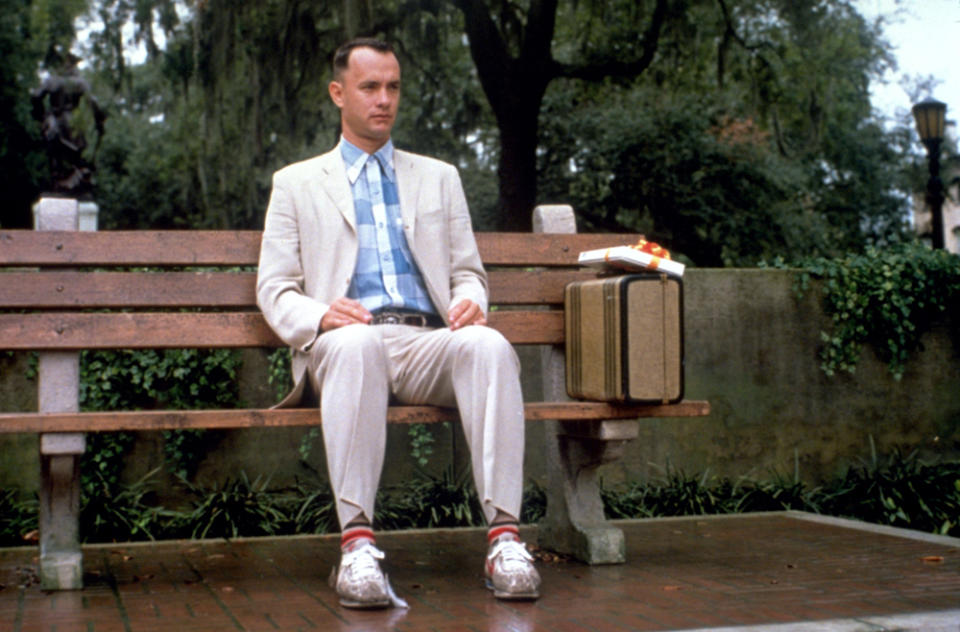
“Forrest Gump”
Tom Hanks became the fifth person to win back-to-back acting Oscars, after Luise Rainer, Spencer Tracy, Katharine Hepburn and Jason Robards Jr. “Forrest Gump” won six Oscars, including best film, director (Robert Zemeckis), screenplay (Eric Roth) and editing (Arthur Schmidt).
Tom Hanks (1993)
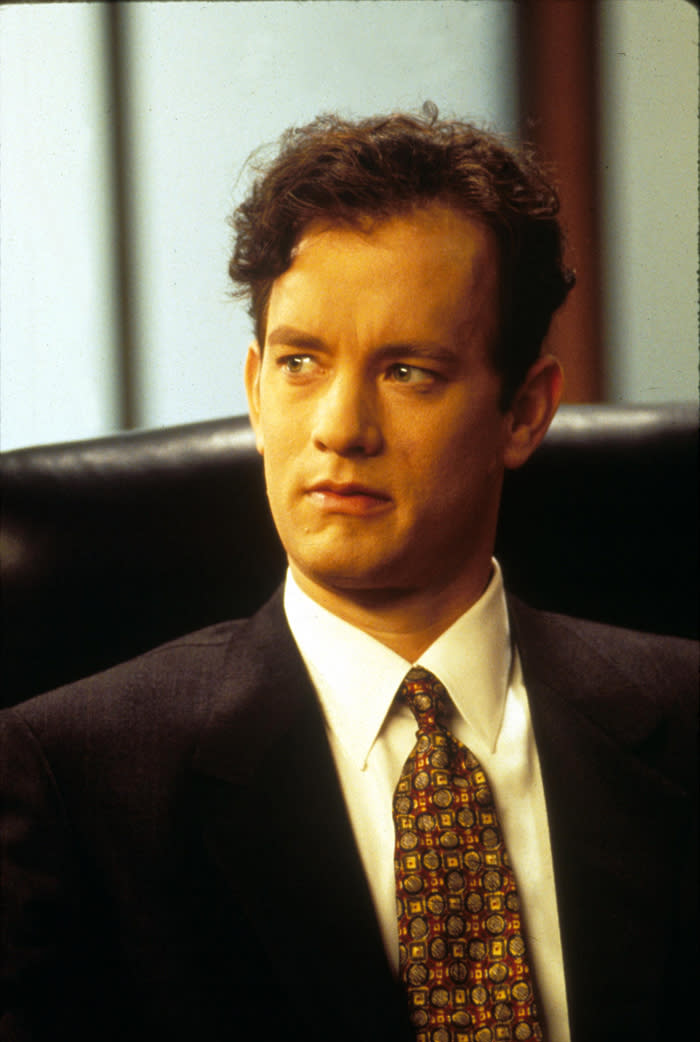
“Philadelphia”
Though TV movies had addressed AIDS many years earlier, this was the first bigscreen movie from a major studio to tackle the issue. Tom Hanks was considered brave for playing the role of a gay man who hires an attorney (Denzel Washington) after he is terminated from his white-collar job.
Al Pacino (1992)
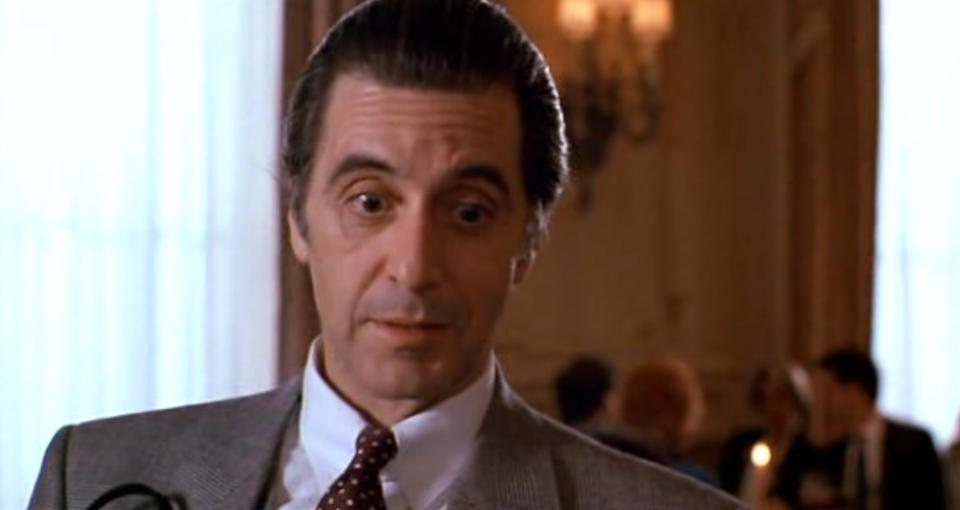
“The Scent of a Woman”
Al Pacino was a double nominee that year, also as supporting actor for “Glengarry Glen Ross.” These were his seventh and eighth nominations, but his first win. After “The Godfather” movies and “Dog Day Afternoon,” among many others, “The Scent of a Woman” was not his most admired performance, but the general feeling was that he was overdue.
Anthony Hopkins (1991)
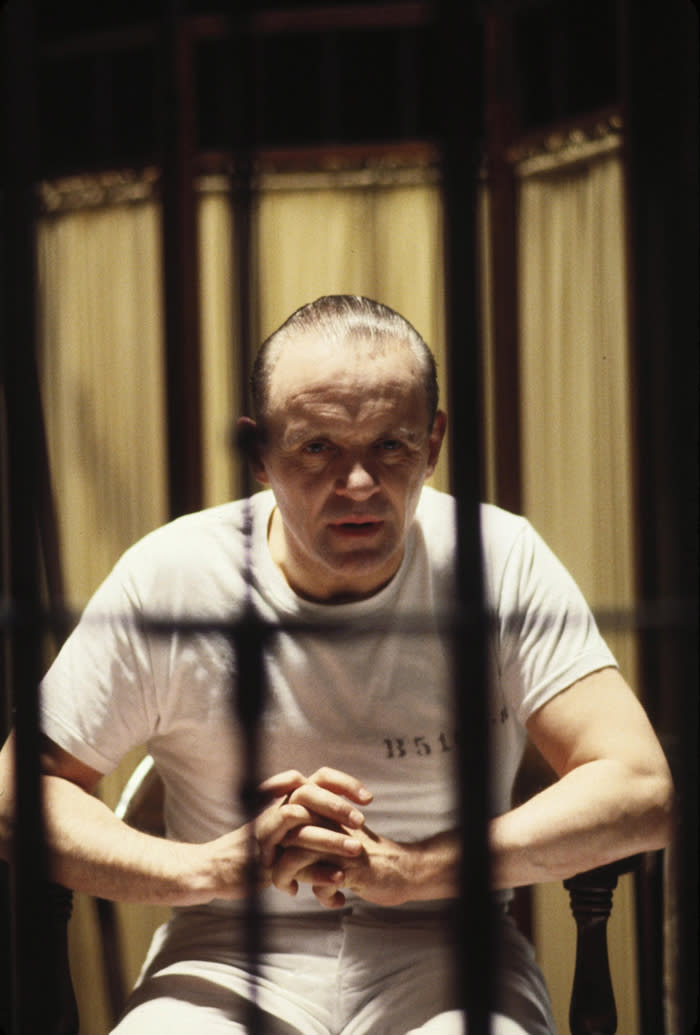
“The Silence of the Lambs”
Some people think the supporting actor category should be defined by a character’s time onscreen, but Anthony Hopkins disproves that theory. Though he is onscreen for less than 20 minutes, Hannibal Lecter is the movie’s most vivid character and remains indelible decades later. This was the third film to win the top five awards of picture, director (Jonathan Demme), actress (Jodie Foster), actor, and screenplay (Ted Tally), following “It Happened One Night” and “One Flew Over the Cuckoo’s Nest.”
Jeremy Irons (1990)
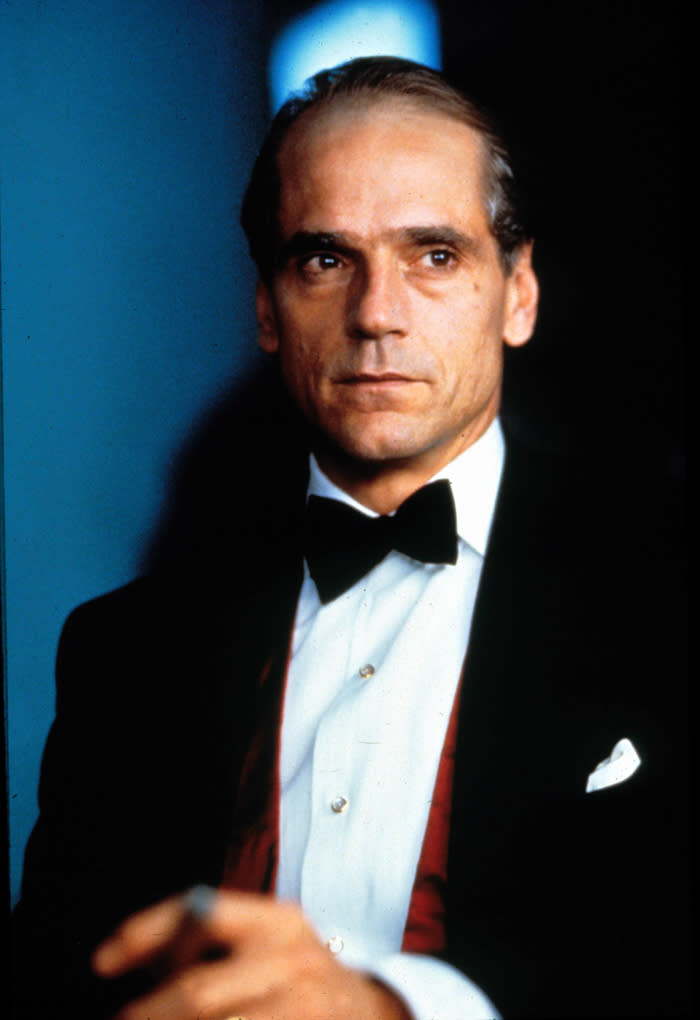
“Reversal of Fortune”
Jeremy Irons was appropriately charming and unsettling as real-life Claus Von Bulow, who was convicted twice of attempted murder of his rich wife Sunny. Irons had his big breakthrough in the 1981 landmark miniseries “Brideshead Revisited” and supplied the memorable voice of Scar in the 1995 film “The Lion King.”
Daniel Day-Lewis (1989)
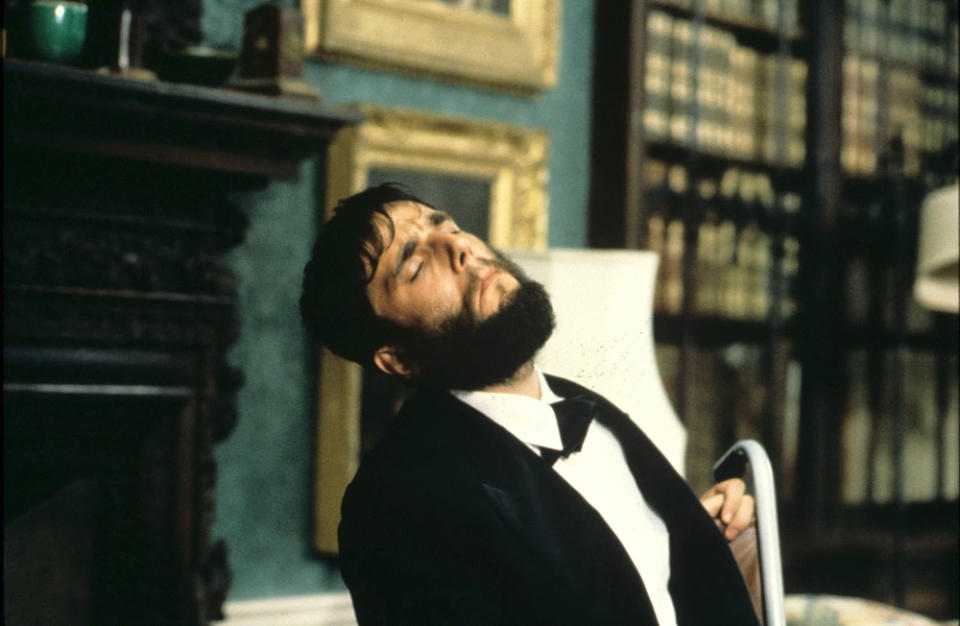
“My Left Foot”
Daniel Day-Lewis won the first of his three Academy Awards in this biopic of Irish Christy Brown, who was born with cerebral palsy but learned to paint and write poetry with his only movable limb, his left foot.
Dustin Hoffman (1988)
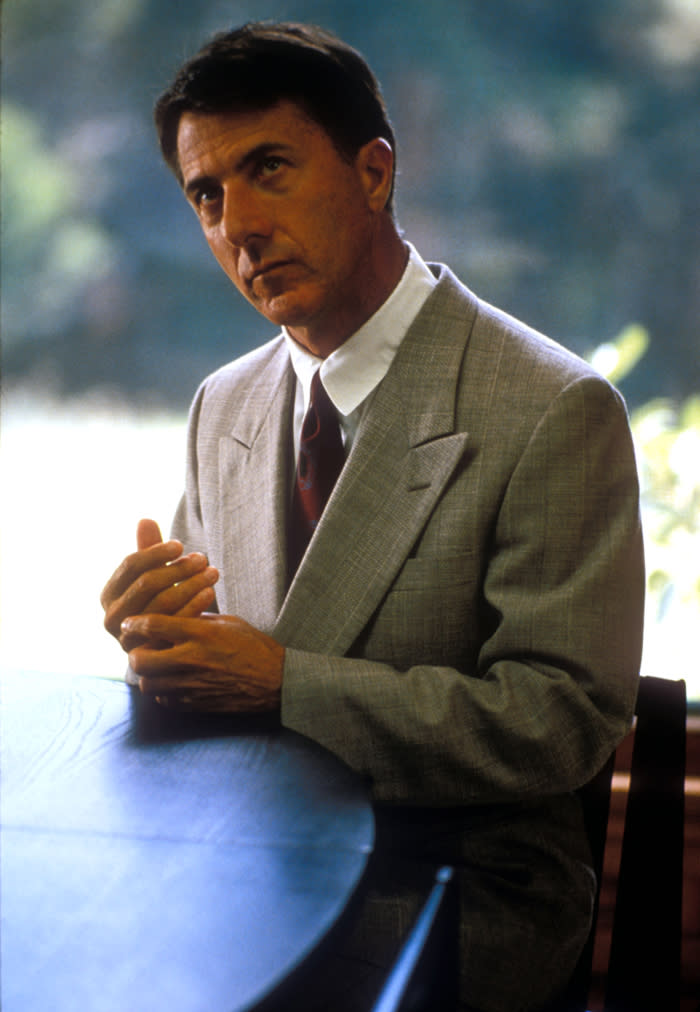
“Rain Man”
This was the second win for Dustin Hoffman, here playing savant Raymond Babbitt, who tries to forge a relationship with his long-estranged brother Charlie (Tom Cruise). In all, Hoffman has earned seven best-actor noms.
Michael Douglas (1987)
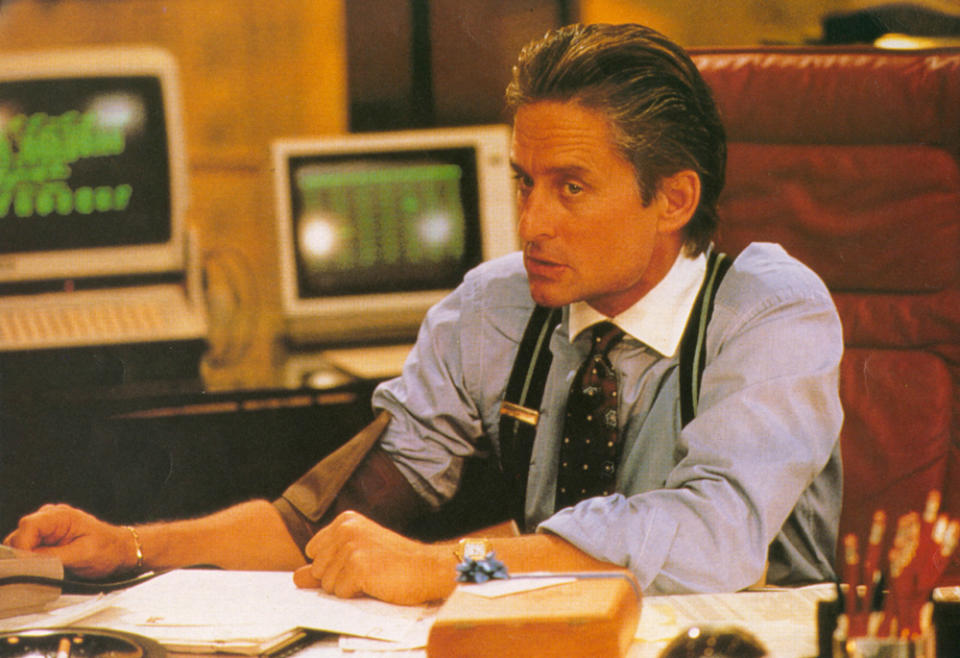
“Wall Street”
In the Oliver Stone movie, Michael Douglas’ character created the catchphrase (though slightly misquoted line) “Greed is good,” which embodied the character and, for many, summed up the decade. Douglas had also won an Oscar as producer of best-picture winner “One Flew Over the Cuckoo’s Nest.”
Paul Newman (1986)
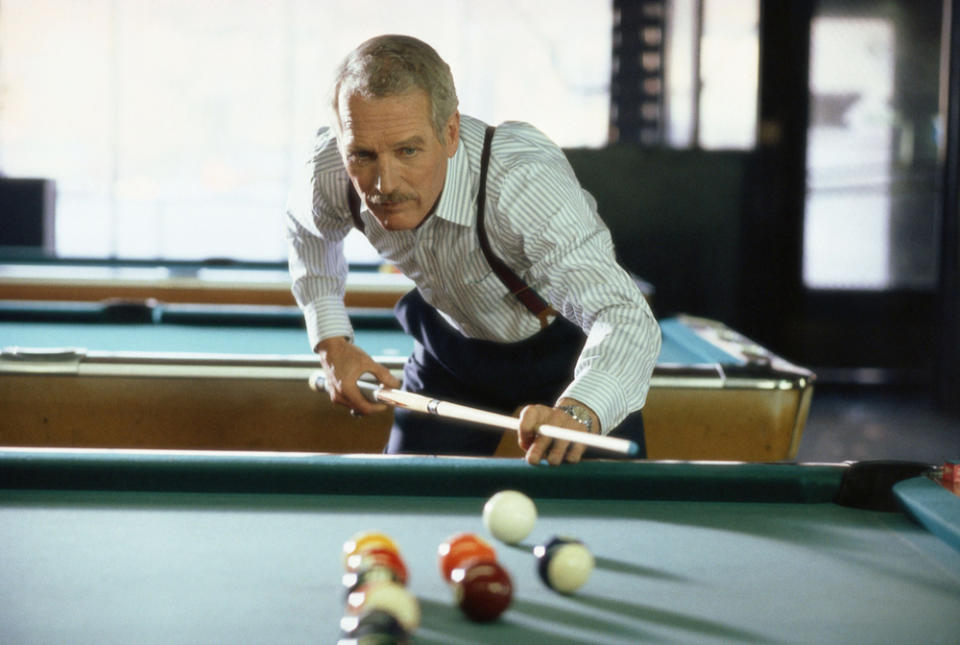
“The Color of Money”
Paul Newman was a movie star for 30 years, creating many memorable roles, before winning his first Oscar. A surprising career twist: He won for a sequel after being nominated (but win-less) as Fast Eddie Felson for the 1962 “The Hustler.” Martin Scorsese directed this sequel, which also stars Tom Cruise.
William Hurt (1985)
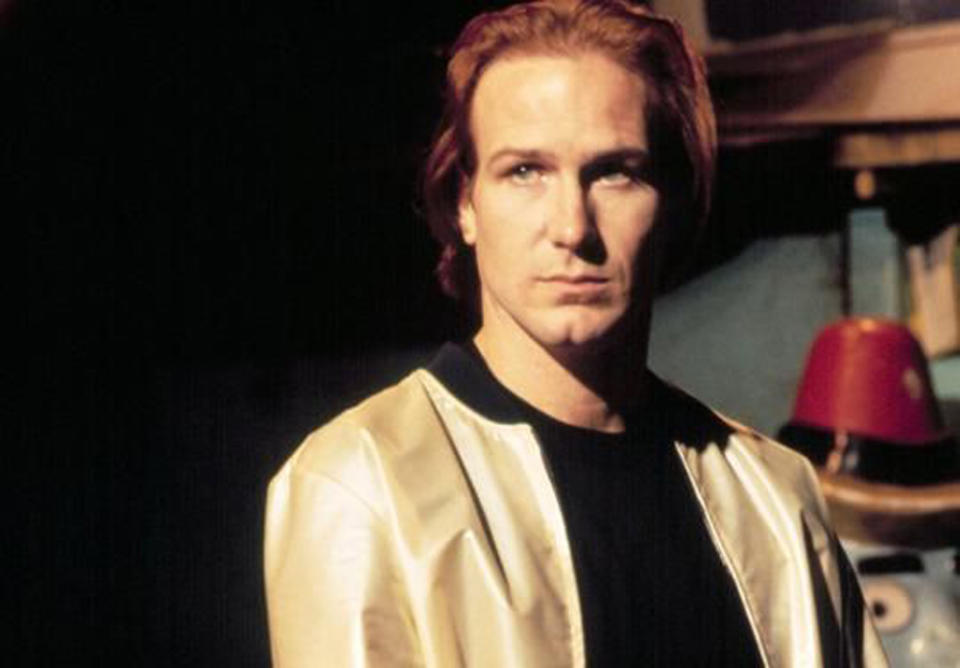
“The Kiss of the Spider Woman”
In the five years before his Oscar win, William Hurt appeared in a series of high-profile films such as “Altered States” (1980), “Body Heat” (1981), and “The Big Chill.” In “The Kiss of the Spider Woman,” he plays an effeminate gay man sharing a cell with a political prisoner.
F. Murray Abraham (1984)
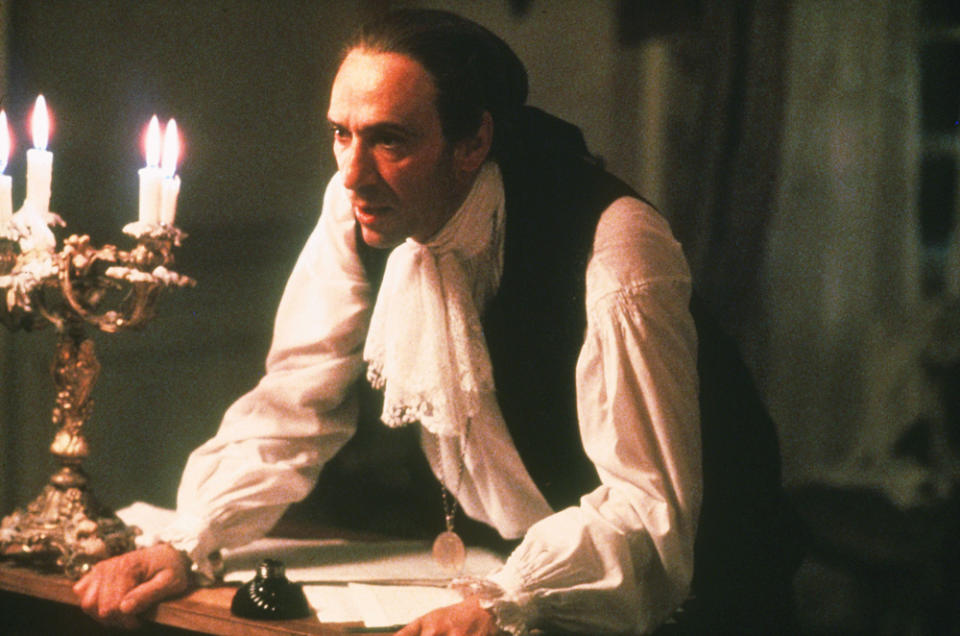
“Amadeus”
F. Murray Abraham was known and respected in the industry, but mostly for stage work. One of the many examples of an unpredictable actor’s life: Not long before winning the Oscar, Abraham supported himself by appearing in commercials for such products such as Listerine and Fruit of the Loom.
Robert Duvall (1983)
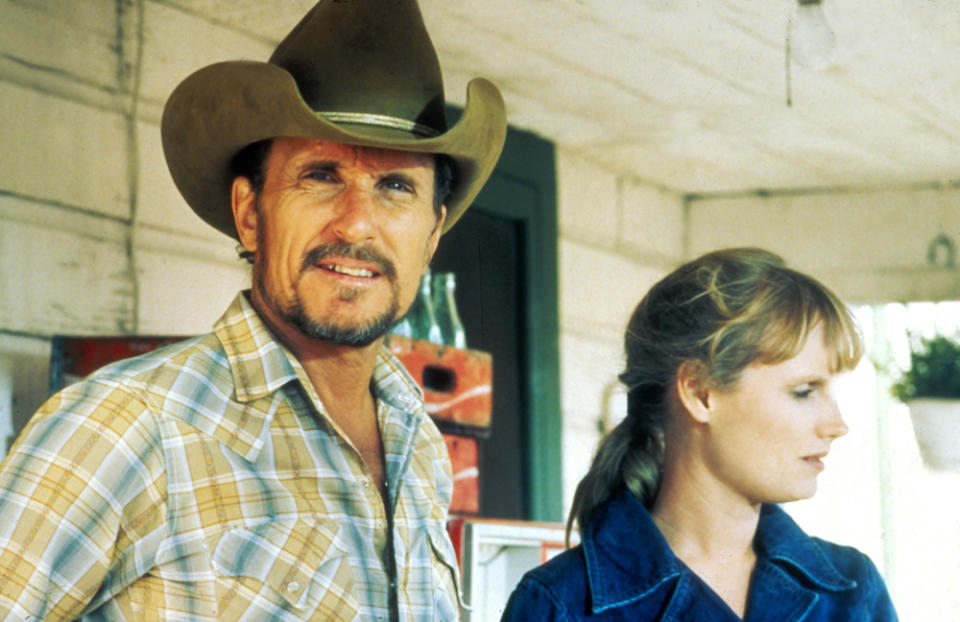
“Tender Mercies”
Robert Duvall had made his film debut as Boo Radley in “To Kill a Mockingbird” (1962) and starred in films for Francis Coppola, George Lucas, Sidney Lumet, Sam Peckinpah, Robert Altman, and Arthur Penn, among others. He won as a country singer in the film written by Horton Foote (who had also scripted “Mockingbird”) and directed by Bruce Beresford.
Ben Kingsley (1982)
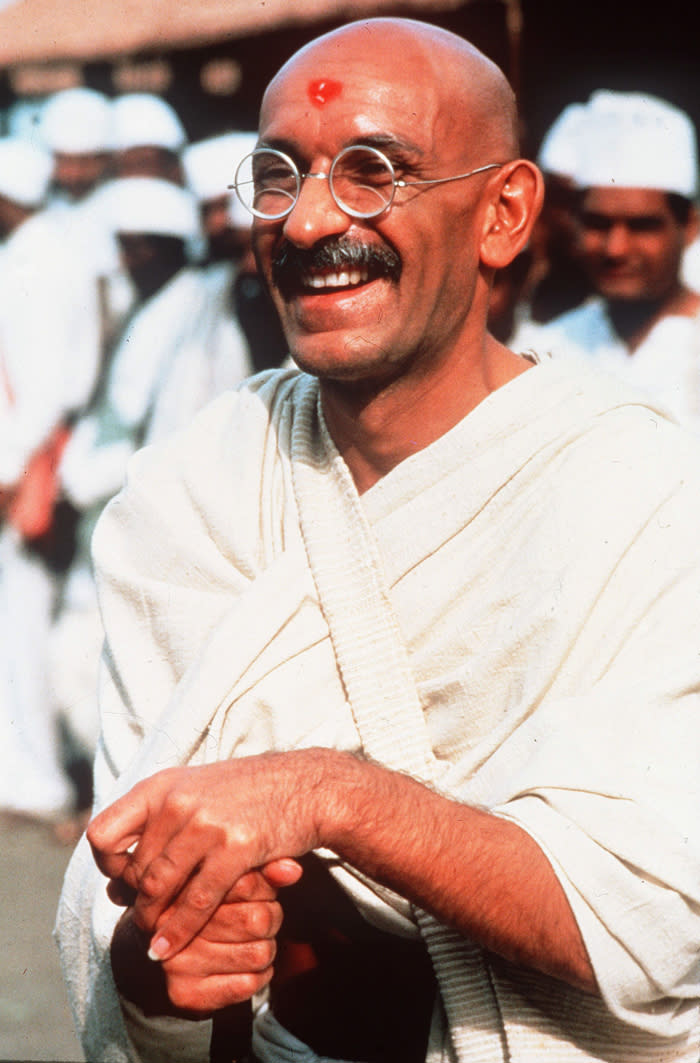
“Gandhi”
The actor, born in England of Indian descent, had done 15 years in TV and many years with the Royal Shakespeare Company before becoming a movie star in Richard Attenborough’s epic biopic about Mahatma Gandhi. The other nominees were strong that year, with Paul Newman, Dustin Hoffman, Jack Lemmon, and Peter O’Toole, but Ben Kingsley took top honors for his memorable performance.
Henry Fonda (1981)
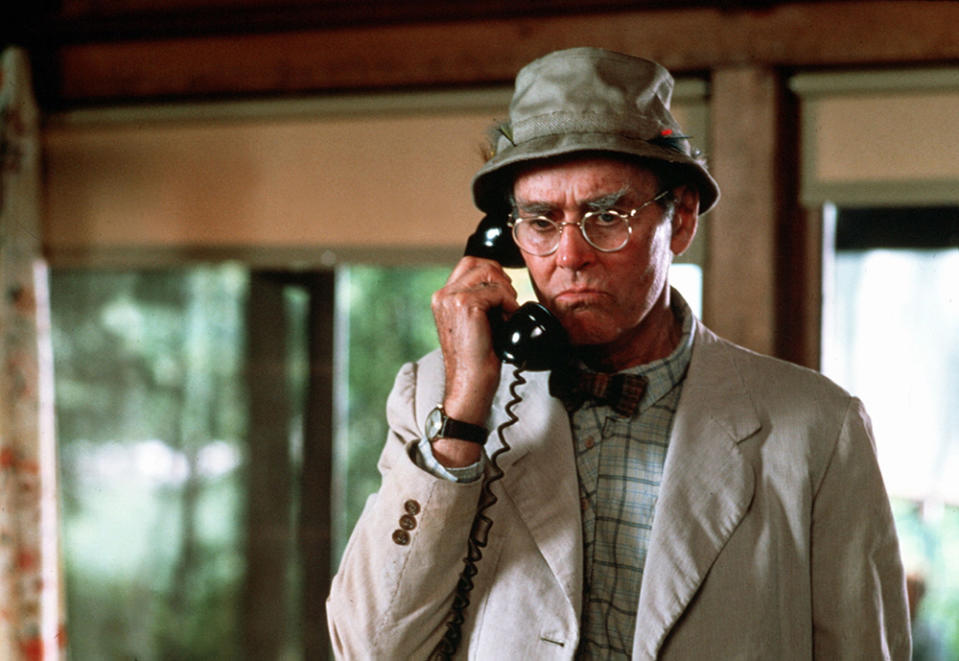
“On Golden Pond”
Henry Fonda became the oldest best actor winner at 76 years, 317 days. He won a year after being given an honorary Oscar, in recognition of his great work over the decades. He and Katharine Hepburn both won as a retired couple in a film produced by (and co-starring) his daughter Jane Fonda.
Robert De Niro (1980)
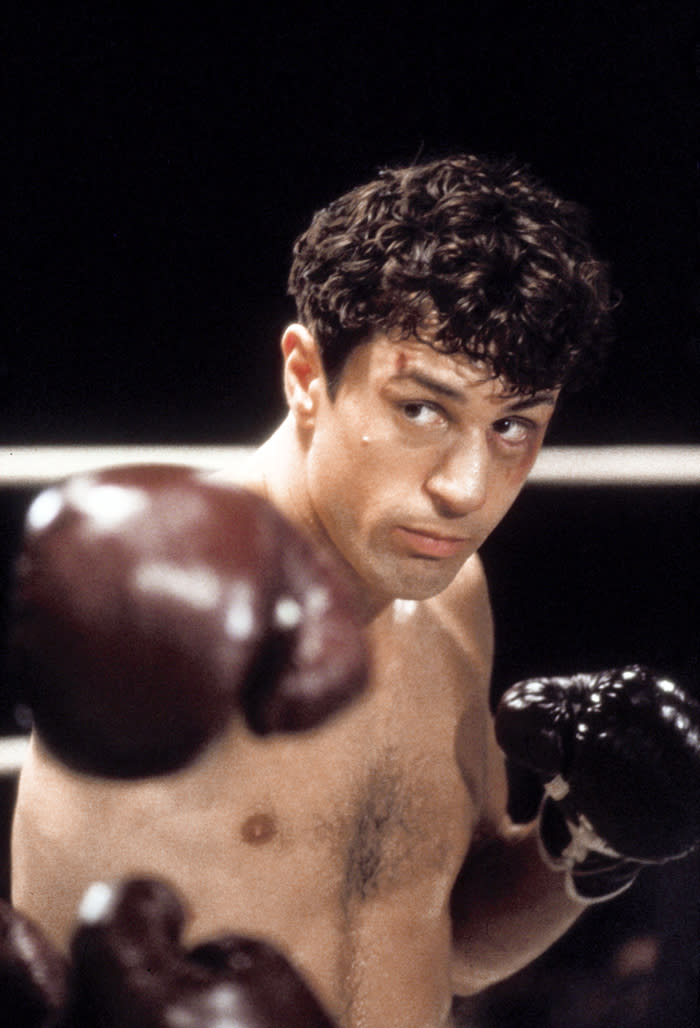
“Raging Bull”
Robert De Niro had won as supporting actor for “The Godfather Part II.” His work in the 1980 “Raging Bull” seemed like a gimmick — mid-production, filming was delayed so he could gain weight to depict boxer Jake LaMotta in his later years — but De Niro and director Martin Scorsese pulled it off.
Dustin Hoffman (1979)
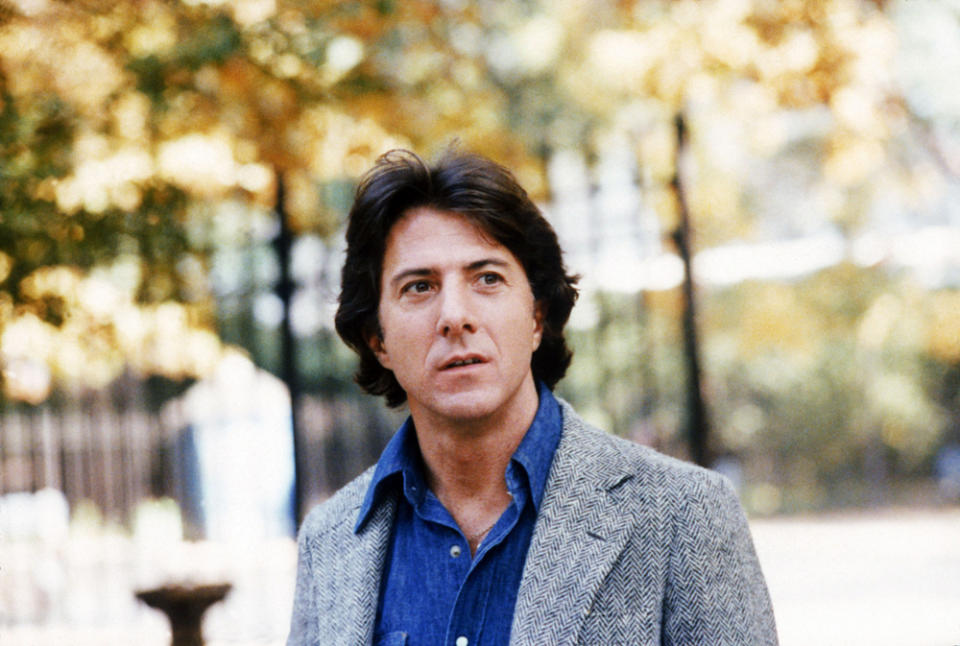
“Kramer vs. Kramer”
This was Dustin Hoffman’s fourth Oscar nom, and his first win. Backstage after his Golden Globes victory a few weeks before the Academy Awards, Hoffman told the press, “I think that awards are very silly. I think they pit very talented and good people against each other and they hurt the hell out of the ones that lose.”
Jon Voight (1978)
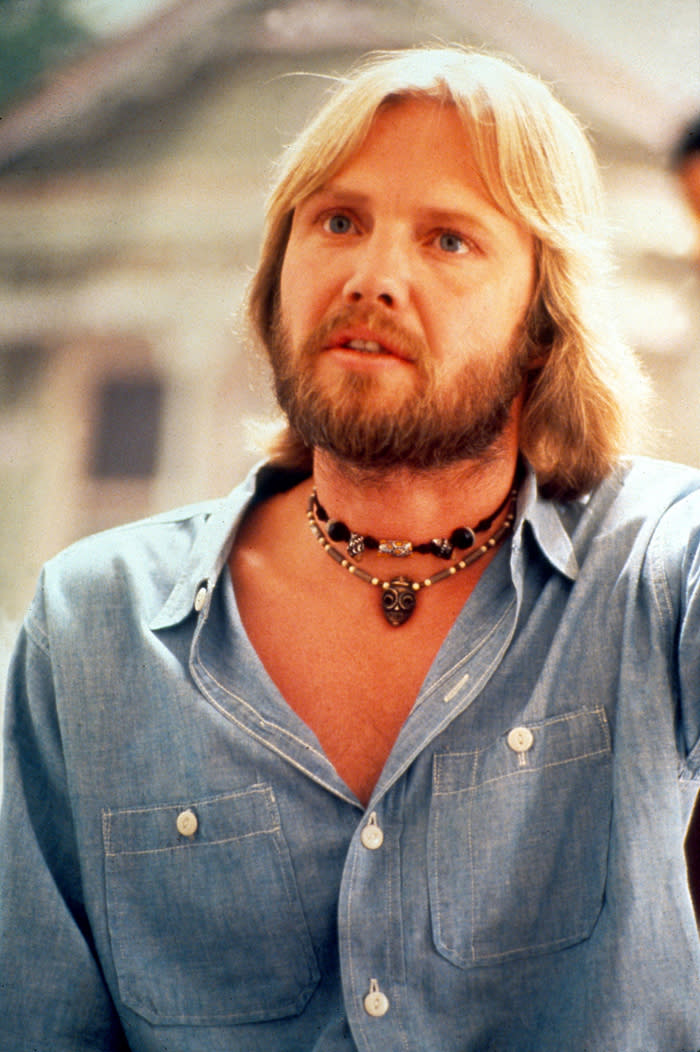
“Coming Home”
Though Hollywood made many war films during WWII, it ignored the Vietnam war until after it ended. The Hal Ashby-directed “Coming Home” earned Oscars for Jon Voight and Jane Fonda, a post-Vietnam version of “The Best Years of Our Lives,” showing the difficulty of veterans readjusting. Voight played a paraplegic veteran who falls in love with a married woman.
Richard Dreyfuss (1977)
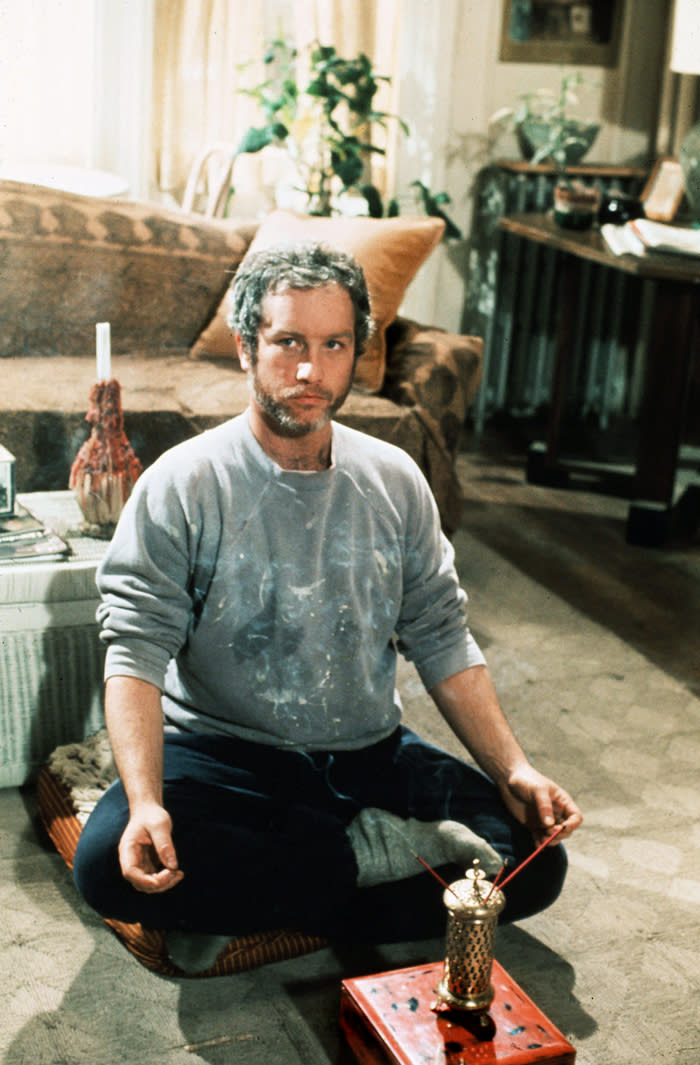
“The Goodbye Girl”
Richard Dreyfuss won as an actor playing an actor, in a rare comedy win, for this Neil Simon-written romantic comedy. At 30, Dreyfuss was the youngest best-actor winner and held that honor for 25 years, until Adrien Brody took the title.
Peter Finch (1976)
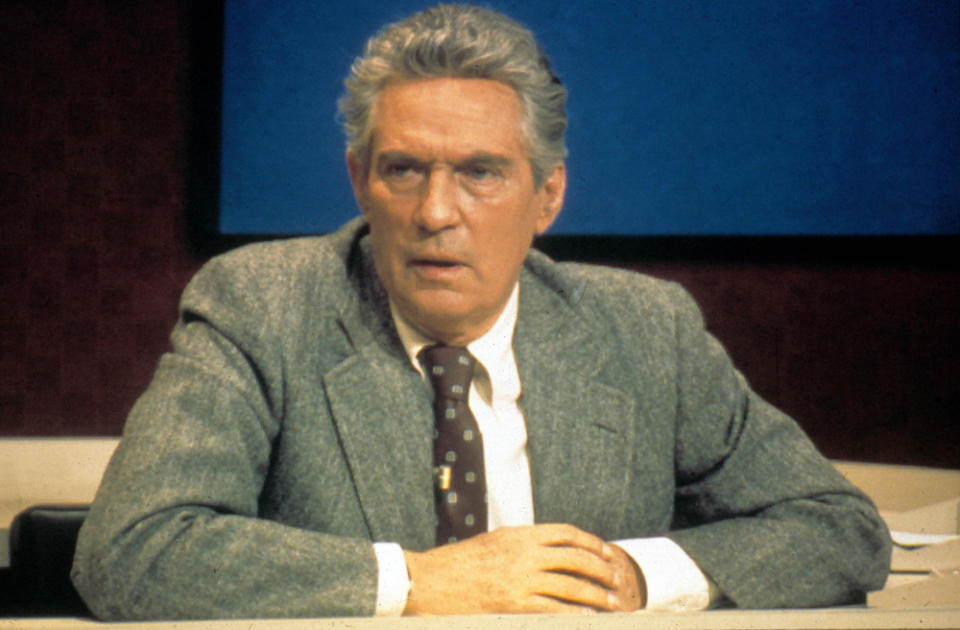
“Network”
Peter Finch won the first posthumous award given to an actor. He won as a news anchor whose on-camera freak-out helps the station boost its ratings in the Sidney Lumet-directed film of Paddy Chayefsky’s dark satire of American TV and shifting values.
Jack Nicholson (1975)
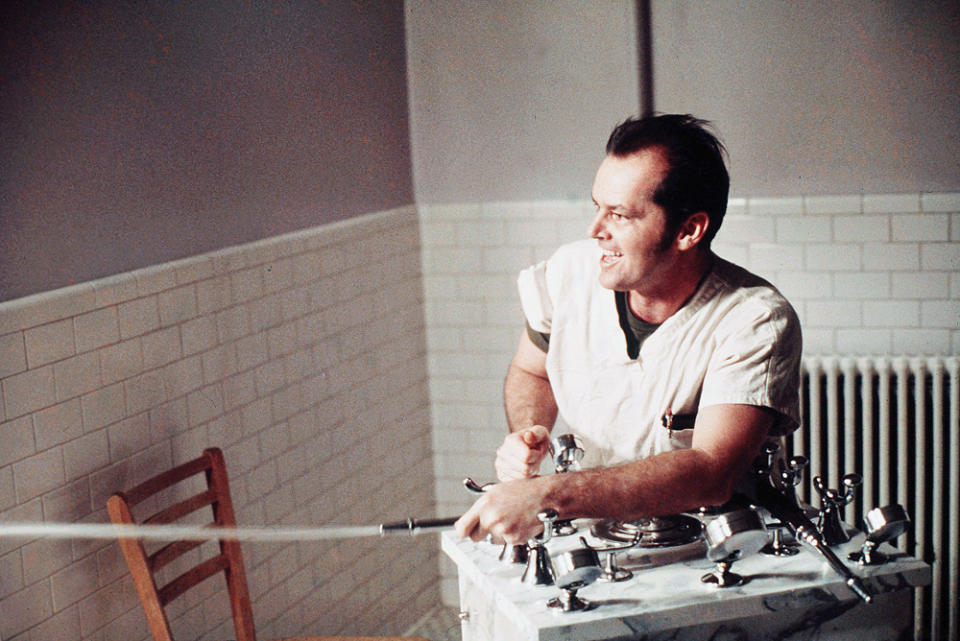
“One Flew Over the Cuckoo’s Nest”
Jack Nicholson built a career under legendary indie-genre maestro Roger Corman in the 1950s, and had a breakthrough role in “Easy Rider” (1969). After a string of hits and Oscar nominations (“Seven Easy Pieces,” “The Last Detail,” “Chinatown”), Nicholson won Oscar gold for this adaptation of the Ken Kesey novel and Dale Wasserman play. It was the first of Nicholson’s three Oscar wins. And the film became the second of three films to win the top five awards.
Art Carney (1974)
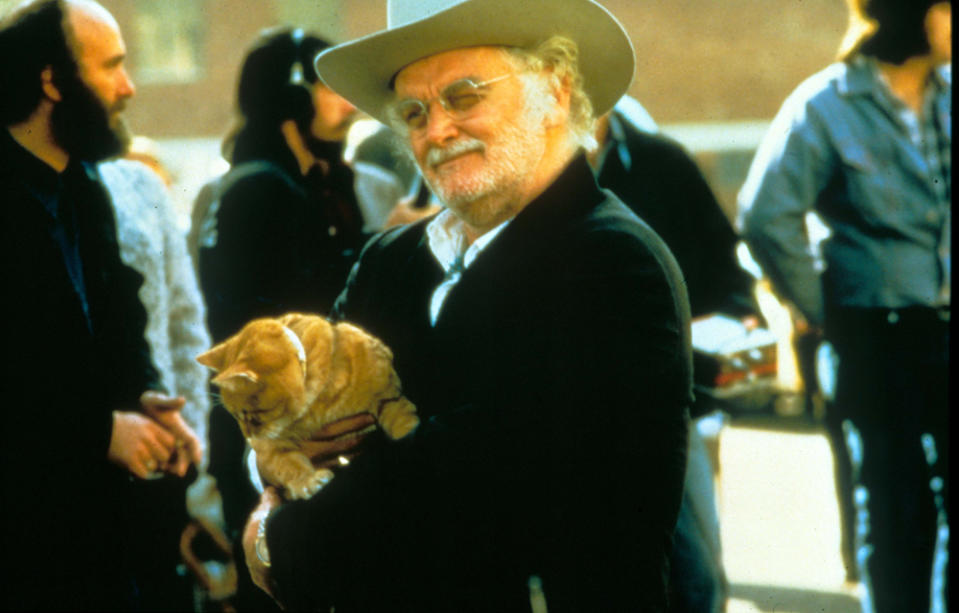
“Harry and Tonto”
Art Carney, a veteran of showbiz more than 50 years, was best known as the comic sewer worker Ed Norton in the TV series “The Honeymooners.” But he won for his serio-comic turn as a retired schoolteacher, beating tough competition, including Jack Nicholson for “Chinatown” and Al Pacino for “The Godfather, Part II.”
Jack Lemmon (1973)
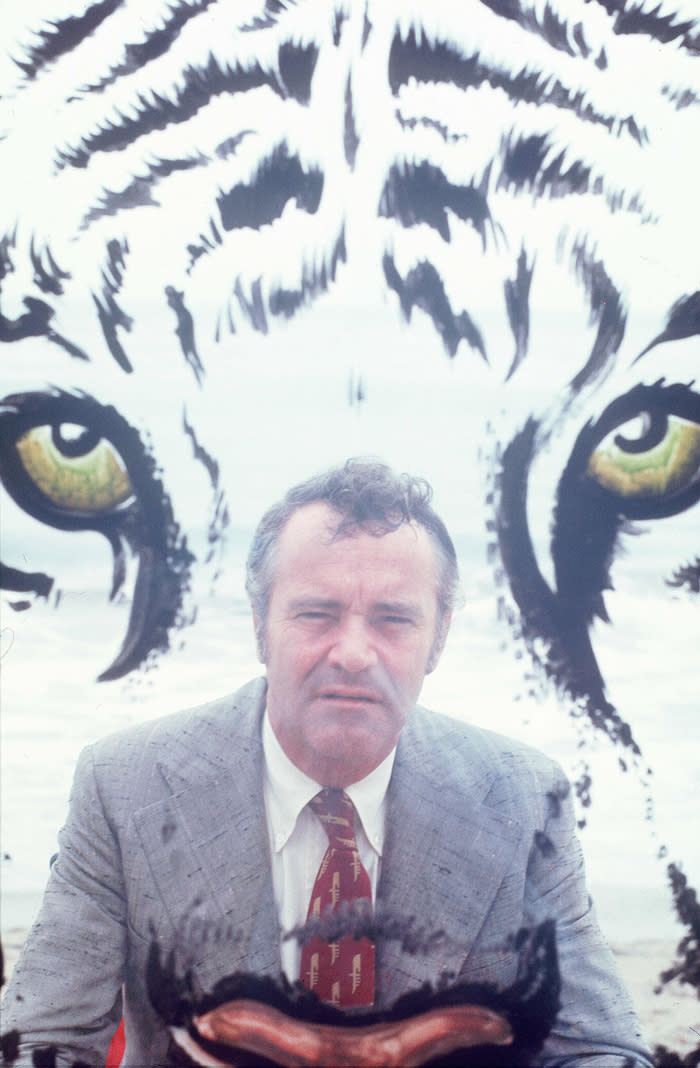
“Save the Tiger”
Jack Lemmon had won a supporting actor Oscar for “Mr. Roberts,” and in several Billy Wilder films, he became the quintessential pained-but-funny neurotic American everyman. “Save the Tiger” was one of his most dramatic roles, as a man involved in an insurance fraud.
Marlon Brando (1972)
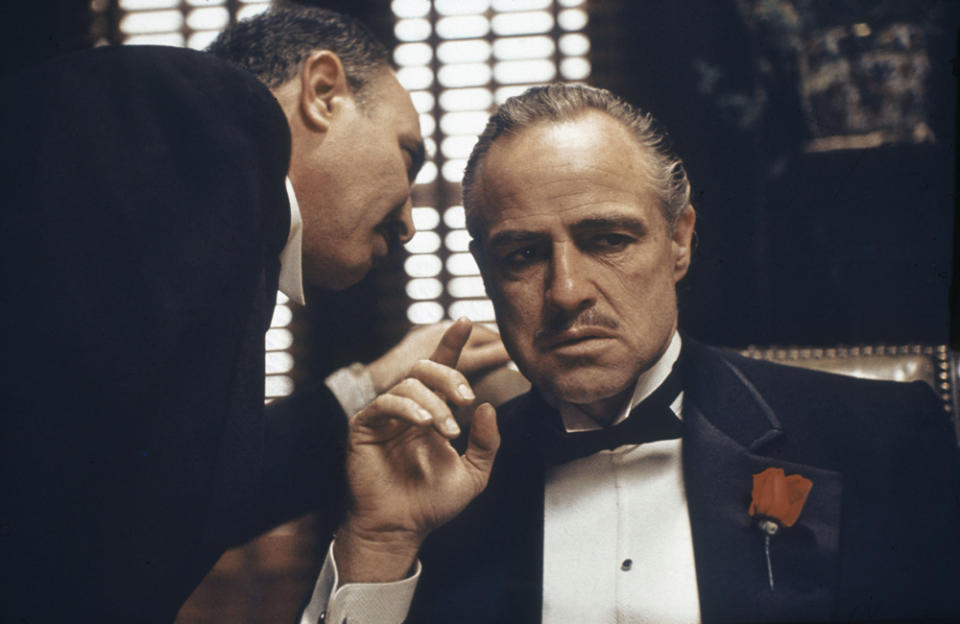
“The Godfather”
The Francis Coppola-directed movie, adapted from Mario Puzo’s best-selling novel, became a mega-hit. Marlon Brando, only 48 when the film opened, created a classic performance as the Mafia chief. Brando also created a classic non-acceptance speech; he refused to attend the Oscars and sent Sacheen Littlefeather instead, where she read Brando’s refusal, due to Hollywood’s shoddy treatment of Native Americans.
Gene Hackman (1971)
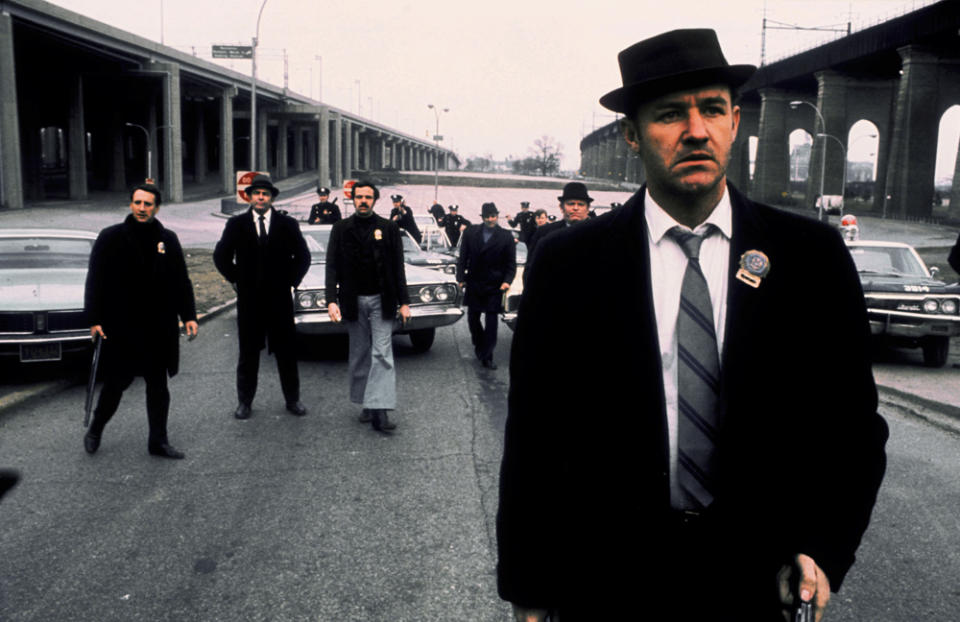
“The French Connection”
Gene Hackman had become a movie star as Clyde Barrow’s brother in “Bonnie & Clyde” and the William Friedkin-directed “The French Connection” became one of his signature roles, as real-life N.Y. narcotics detective Jimmy (Popeye) Doyle. The film won five Oscars, also including best picture, director, screenplay (Ernest Tidyman), and editor (Gerald Greenberg).
George C. Scott (1970)
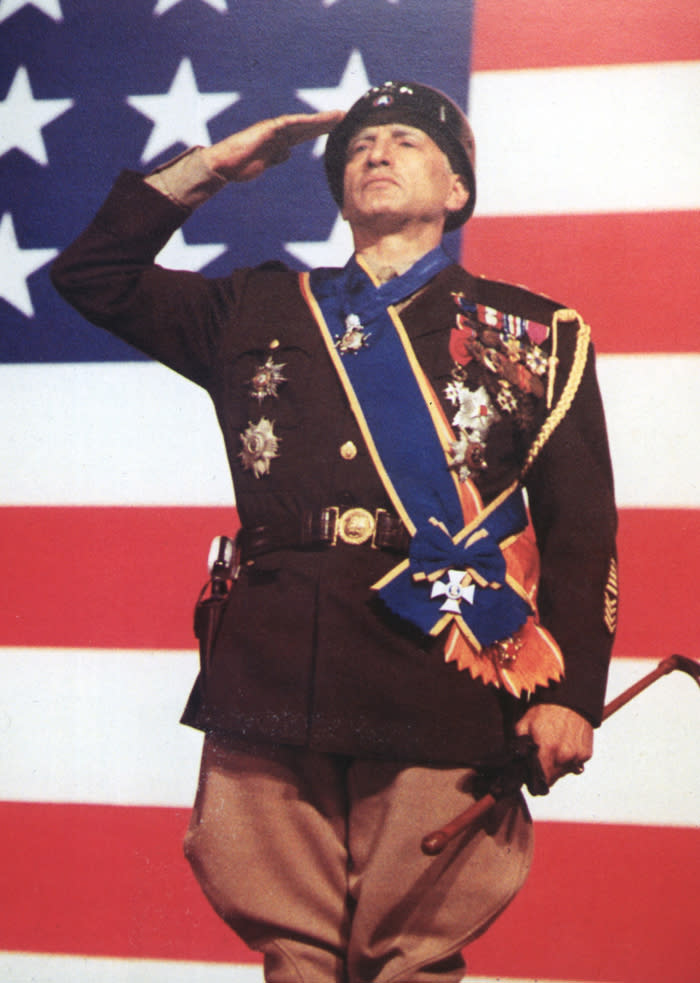
“Patton”
George C. Scott’s towering performance as Gen. George Patton made him the clear front-runner, but he had criticized the entire Oscar process in his two previous nominations. And before Academy Awards day, he told “60 Minutes,” that the ceremony was a “meat parade … I resent being put on a show like a buffoon” and vowed that if he won the Oscar, he would return it. Could Academy voters overlook this? The answer was clearly yes.
John Wayne (1969)
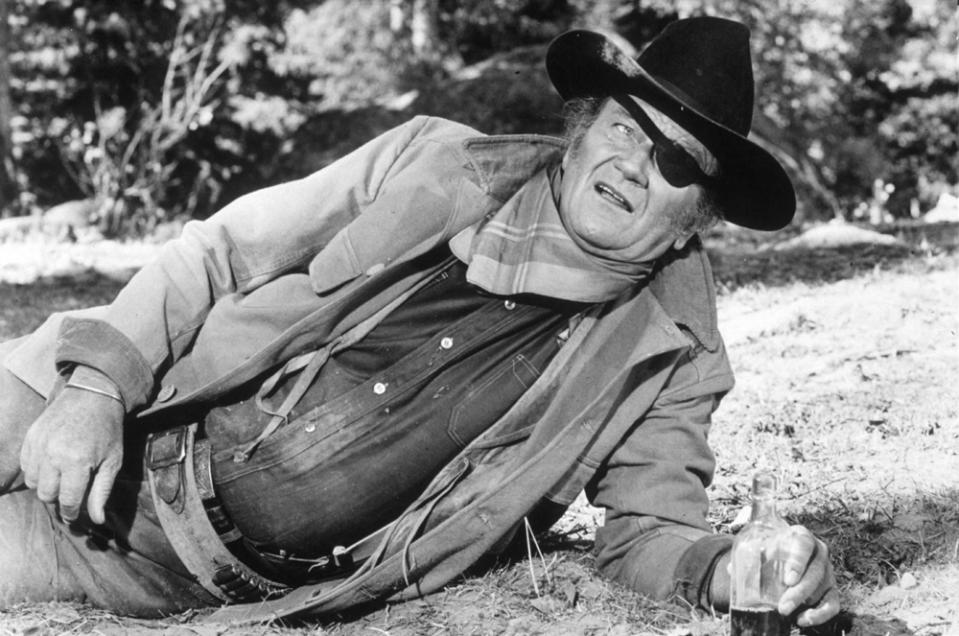
“True Grit”
John Wayne had been a movie star for nearly 40 years, the symbol of American soldiers during WWII (even though he never served in the military), and a symbol of U.S. conservative values during the Hollywood blacklist and Vietnam War. He won as the ultimate cowboy, Rooster Cogburn, who is both a spoof of, and a salute to, his earlier Western roles.
Cliff Robertson (1968)
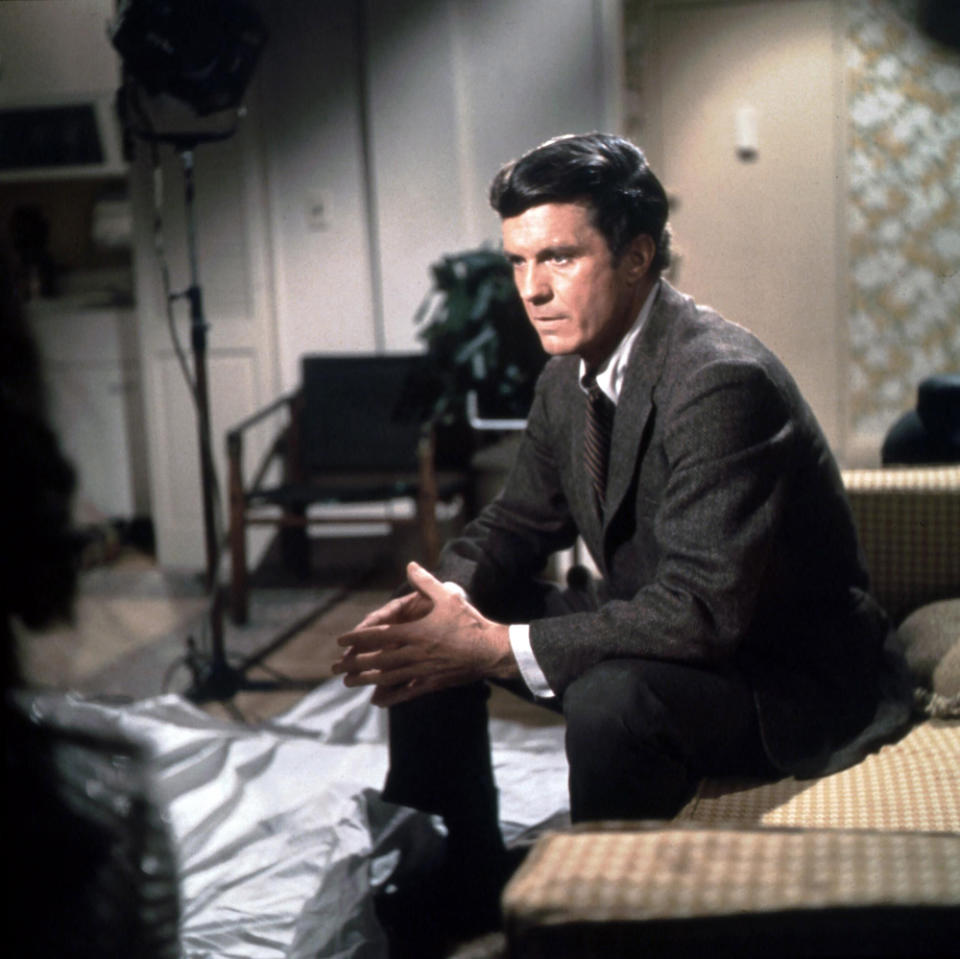
“Charly”
Cliff Robertson had starred in a 1961 TV adaptation of “Flowers for Algernon” by Daniel Keyes and the actor fought to get a big-screen version made, which resulted in his sole Oscar nomination. The work centers on a developmentally disabled man who partakes in a science experiment that triples his IQ.
Rod Steiger (1967)
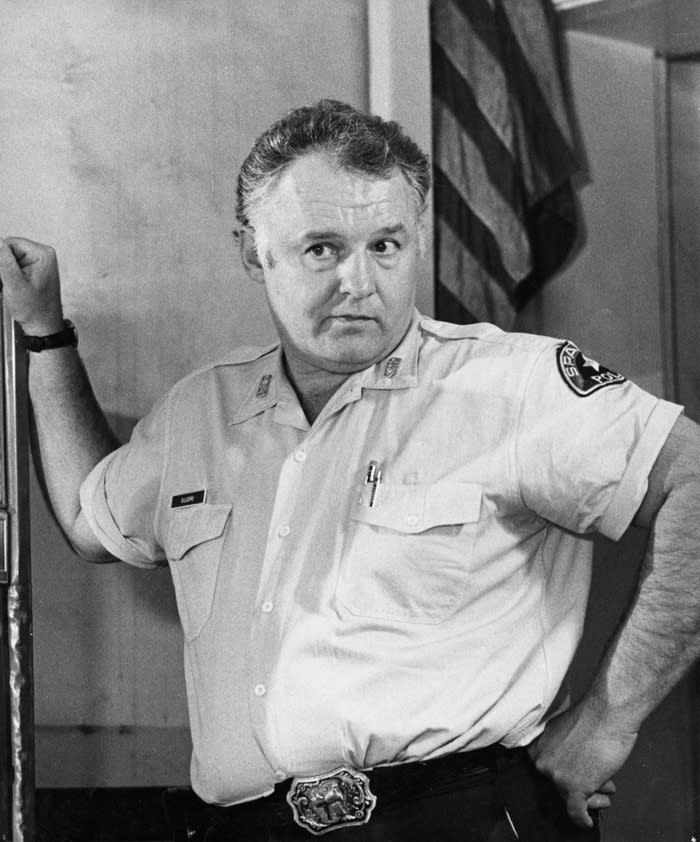
“In the Heat of the Night”
It was a strong year for actors (Dustin Hoffman in “The Graduate,” Warren Beatty in “Bonnie & Clyde”), but Rod Steiger was a popular winner on his third nomination. He plays racist Southern sheriff who has to work with a black detective (Sidney Poitier) from the North to solve a murder.
Paul Scofield (1966)
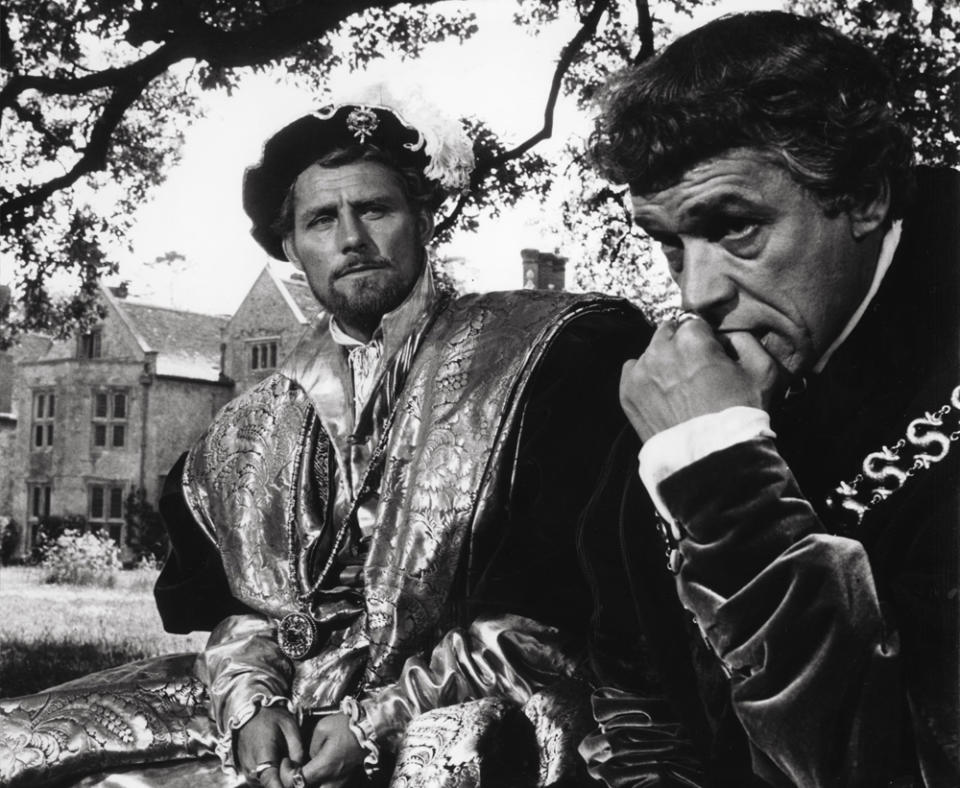
“A Man for All Seasons”
Paul Scofield had a distinguished stage career, and performed less often in films, but won by playing Sir Thomas More, re-creating his stage performance in Robert Bolt’s adaptation of his play. The film was directed by c (“From Here to Eternity,” “Julia”).
Lee Marvin (1965)
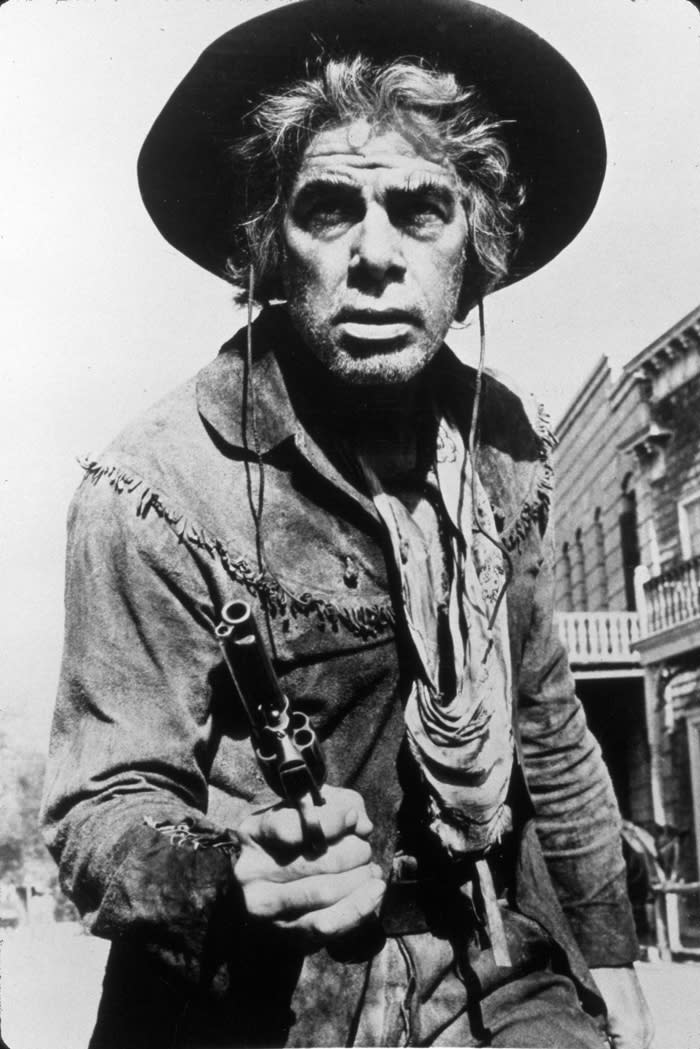
“Cat Ballou”
Lee Marvin won with a rare comedy performance, and a western to boot. The Hollywood veteran of movies (“The Wild One,” “Gorilla at Large,” “The Man Who Shot Liberty Valance”) and TV (“M Squad”) plays two roles, the villain and the drunken would-be hero.
Rex Harrison (1964)
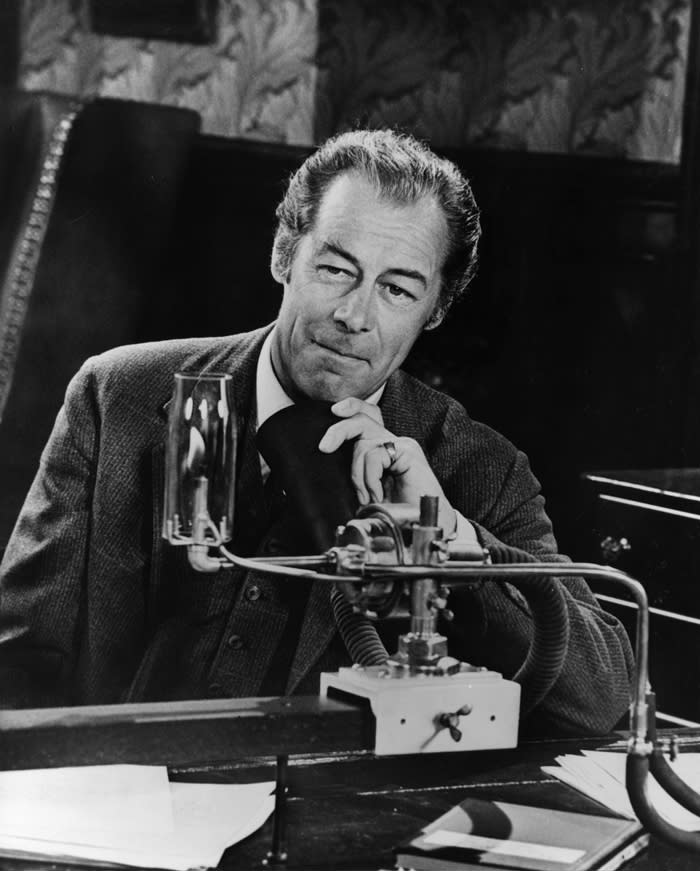
“My Fair Lady”
Rex Harrison re-created his stage role as Professor Henry Higgins in this Lerner & Loewe musical, based on Shaw’s “Pygmalion.” There was tough competition that year, including Anthony Quinn in “Zorba the Greek” and Peter Sellers in “Dr. Strangelove,” two memorable performances. Harrison was yet another actor to win under director George Cukor, who was responsible for 21 acting nominations and five wins for Oscar.
Sidney Poitier (1963)
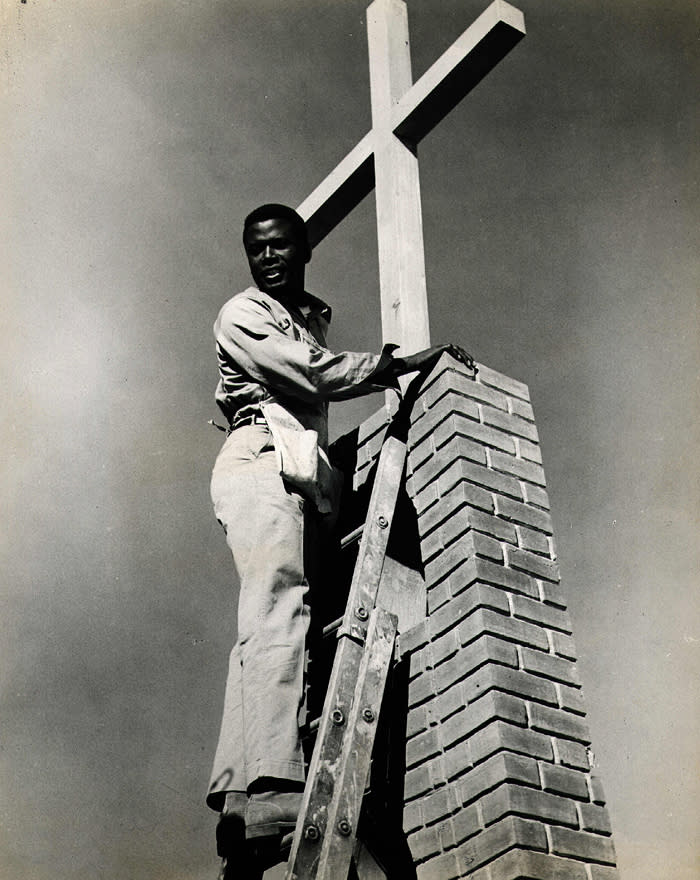
“Lilies of the Field”
Actors want to believe they can change the world, but Sidney Poitier actually did. By carefully choosing his roles, he created a positive image of a black man for audiences around the world who didn’t personally know any blacks. Poitier became one of the biggest box office draws of the 1960s in films like this, where he displayed common sense, charm, and integrity, often against difficult odds, as he helps nuns build a church.
Gregory Peck (1962)
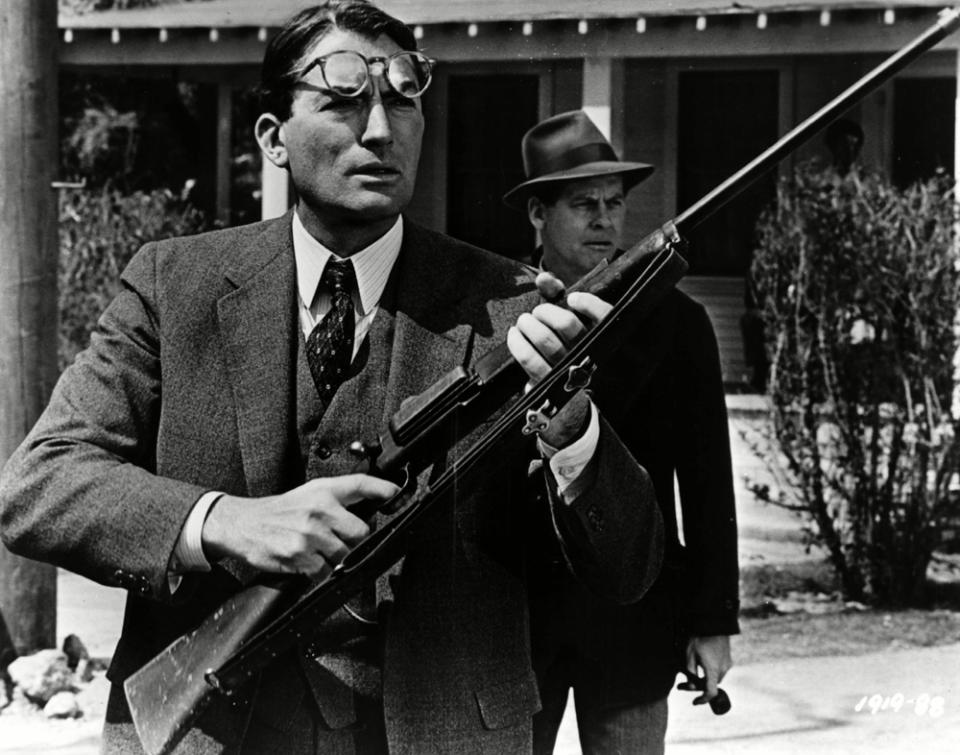
“To Kill a Mockingbird”
Gregory Peck scored with his fifth Oscar nomination as Atticus Finch, everybody’s favorite movie dad, who was honorable and loving as he defended a black man unjustly accused of raping a white woman. The film, adapted from Harper Lee’s novel, was a big box office hit.
Maximilian Schell (1961)
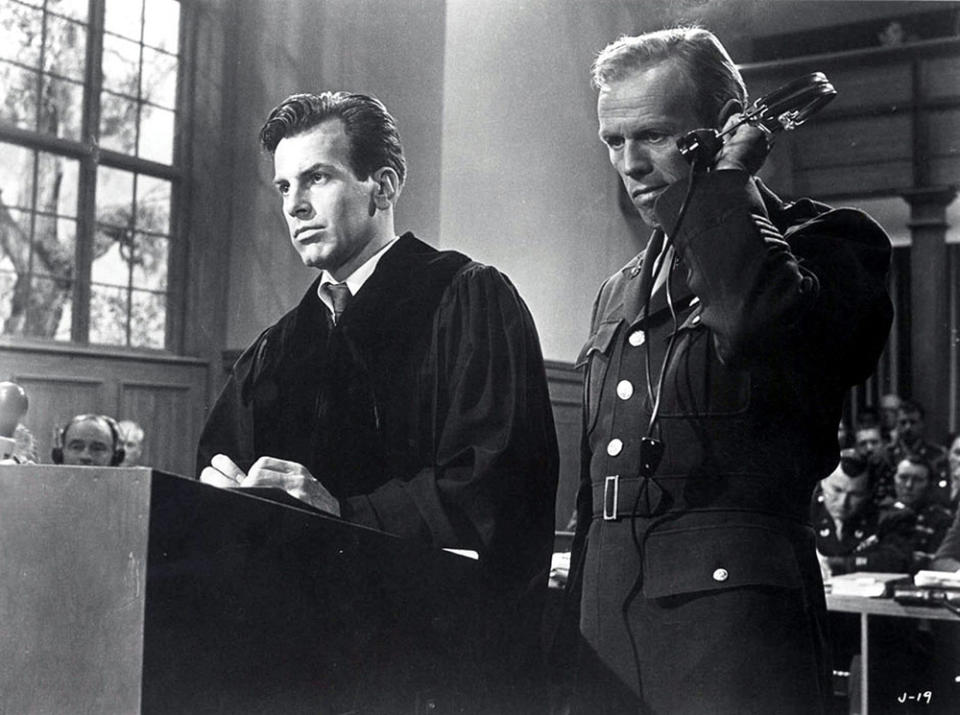
“Judgment at Nuremberg”
The Vienna-born actor made Oscar history by re-creating his TV performance in a 1959 “Playhouse 90” version of the script about the trial of Nazi war criminals.
Burt Lancaster (1960)
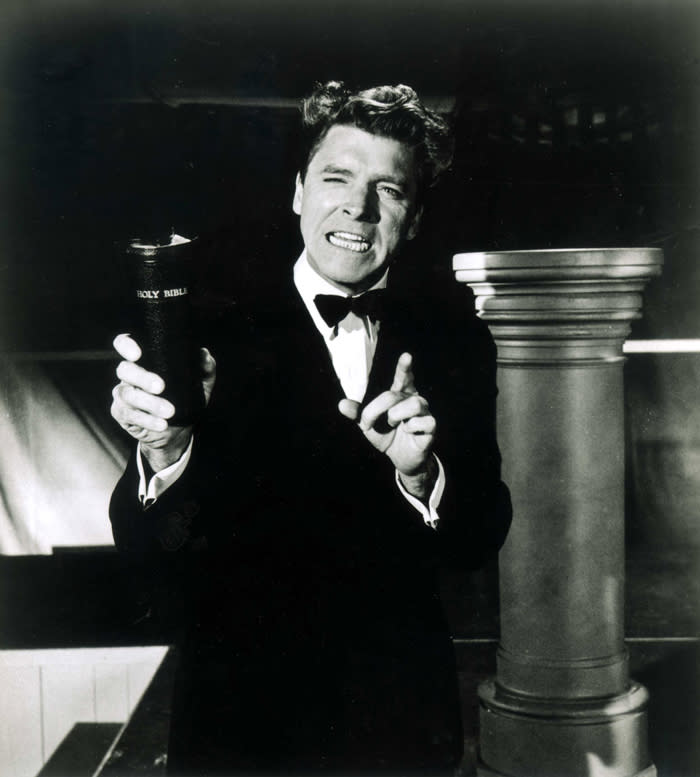
“Elmer Gantry”
The former circus acrobat turned into a charismatic star (“The Crimson Pirate”) who proved to have serious acting chops as well. He won on the second of his four nominations, as the preacher-evangelist in writer-director Richard Brooks’ adaptation of the Sinclair Lewis novel about an evangelist. Lancaster was also the producer, usually uncredited, of many classy and serious films, like “Sweet Smell of Success.”
Charlton Heston (1959)
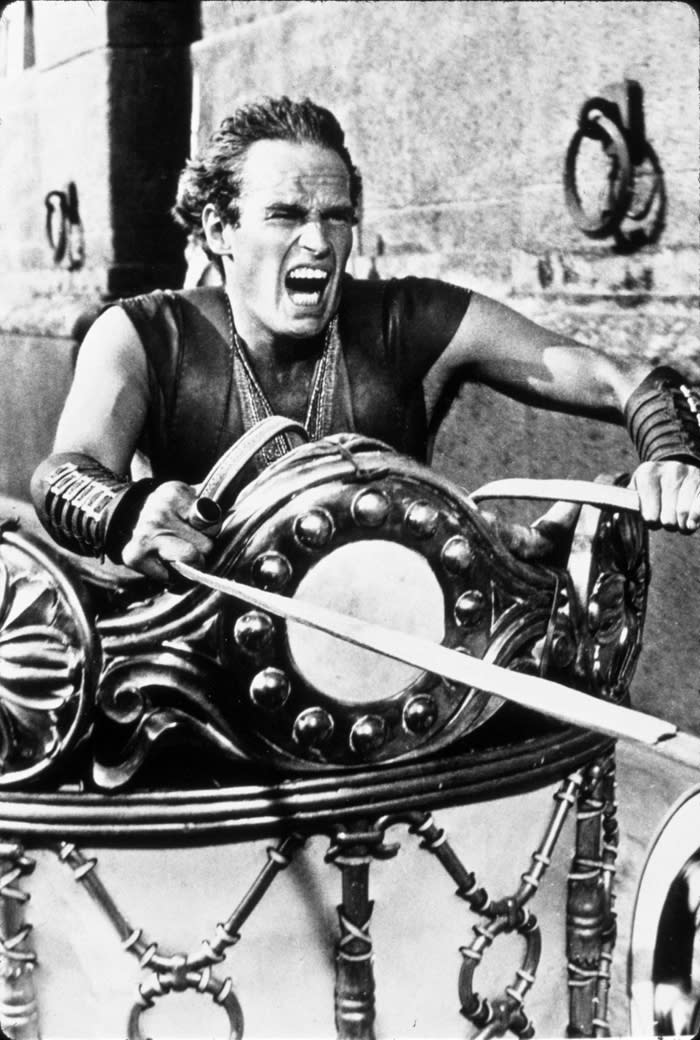
“Ben-Hur”
This was a big-screen remake of a silent film (1925) based on the successful novel written by Lew Wallace. The movie had a huge budget ($15 million) and was directed by William Wyler, whose films earned a record 14 Oscar wins for their actors. Heston was the star of many classic films, but this was his only Oscar nomination.
David Niven (1958)
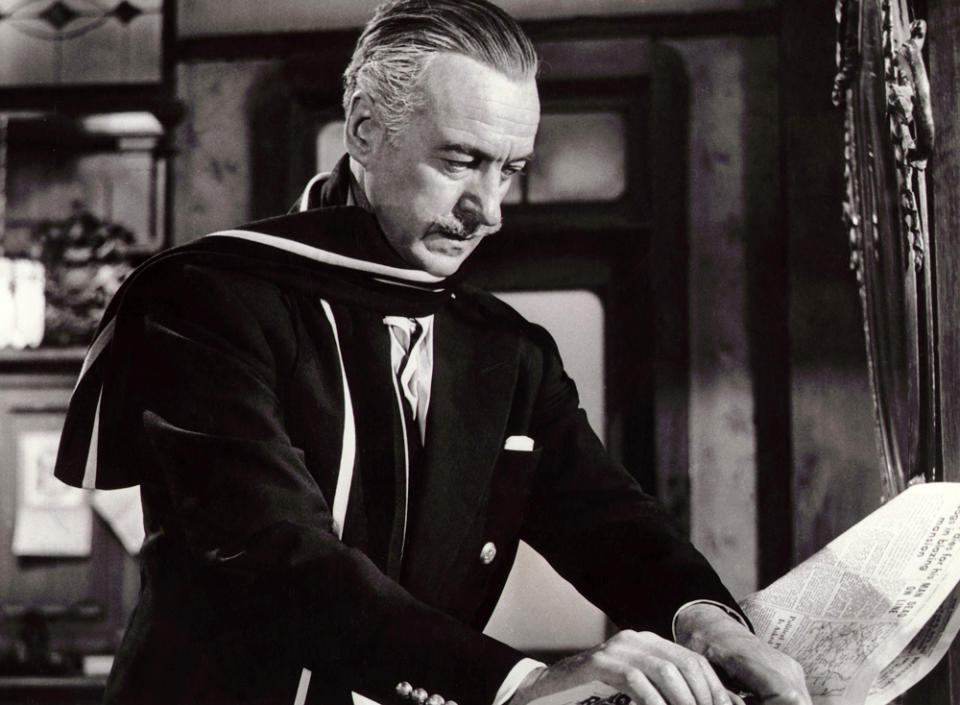
“Separate Tables”
David Niven was onscreen less than 25 minutes (including appearing wordlessly in some group scenes). The film is an ensemble, but he was considered a lead. After Ernest Borgnine, this was the second time in four years that an actor won the top prize under director Delbert Mann.
Alec Guinness (1957)
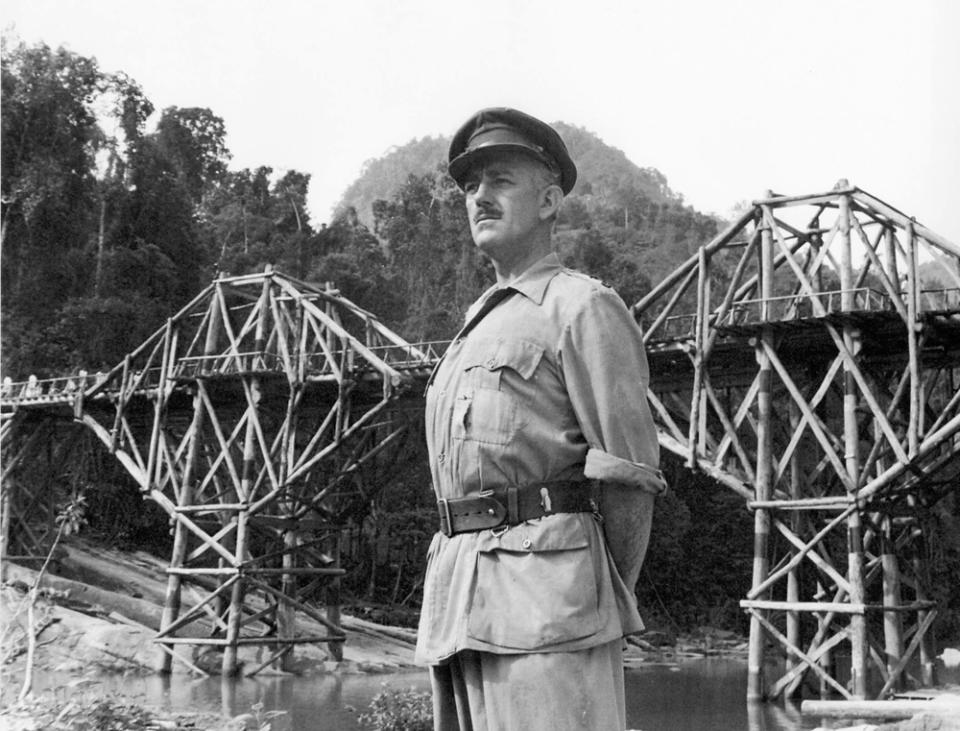
“The Bridge on the River Kwai”
To some, he is best known as Obi-Wan Kenobi, but Alec Guinness has an amazing roster of film, TV, and stage work in his 50-year-plus career. This was the third of his six collaborations with the great filmmaker David Lean. Guinness made his film debut in Lean’s 1946 “Great Expectations” and among the actor’s many achievements are the 1979 miniseries “Tinker Tailor Soldier Spy” as George Smiley.
Yul Brynner (1956)
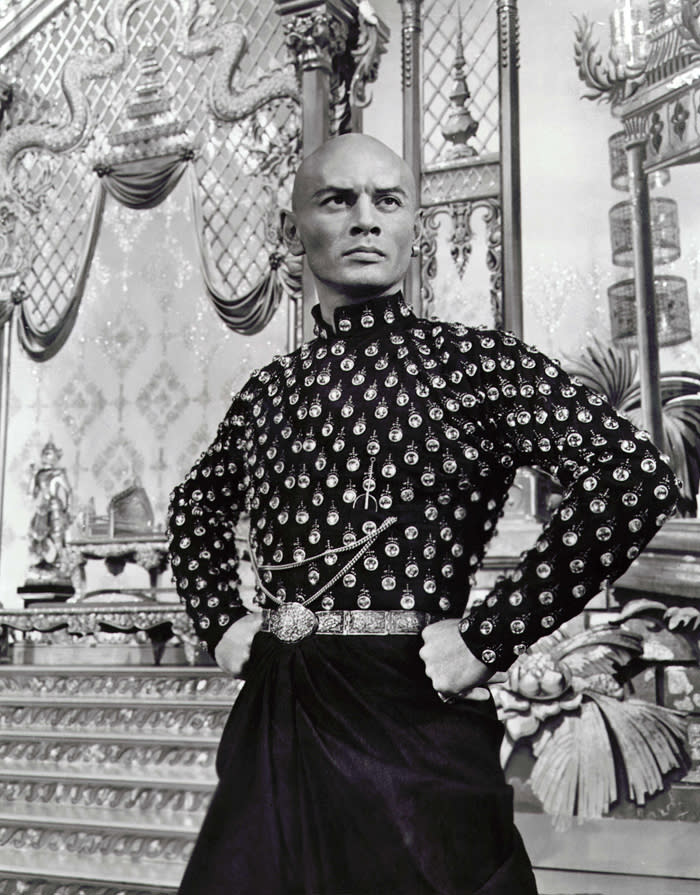
“The King & I”
Yul Brynner had a great year in 1956, also starring in two other big hits, “The Ten Commandments” and “Anastasia.” Brynner had won a Tony as supporting actor in the Broadway production of the Rodgers & Hammerstein musical, but he was moved up to the lead category for the film.
Ernest Borgnine (1955)
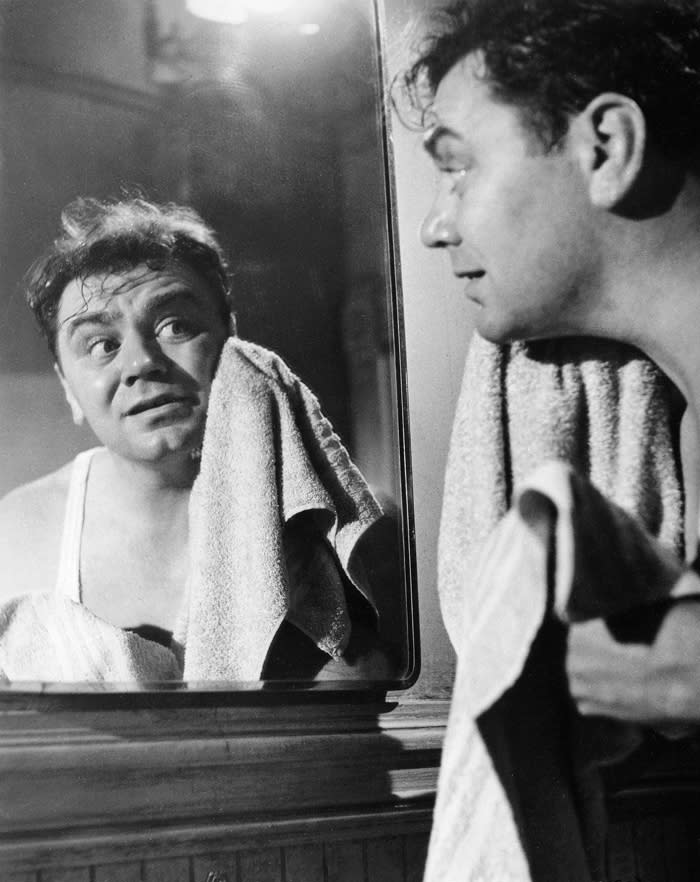
“Marty”
“Marty” originated as a TV drama starring Rod Steiger, who turned down the big-screen version because producers Burt Lancaster and Harold Hecht wanted him to sign a long-term contract. Ernest Borgnine took the part and earned one of four Oscars for the small-scale, intimate film, also including best picture, director, and screenplay.
Marlon Brando (1954)
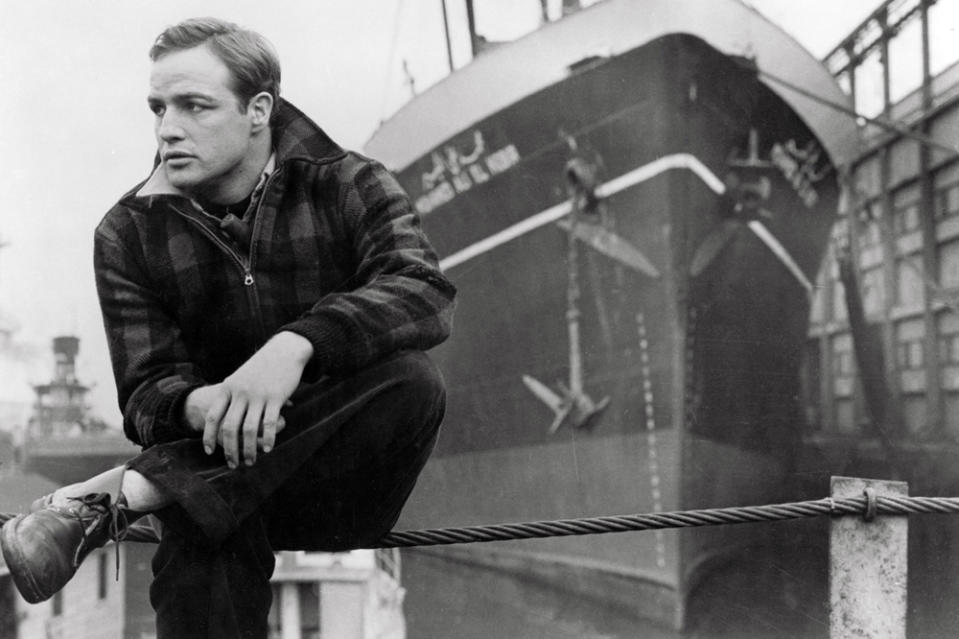
“On the Waterfront”
Marlon Brando earned his fourth consecutive Oscar nomination (after “A Streetcar Named Desire,” “Viva Zapata!” and “Julius Caesar”) and first win as Terry Malloy, a dockworker who testifies against corrupt union leaders.
William Holden (1953)
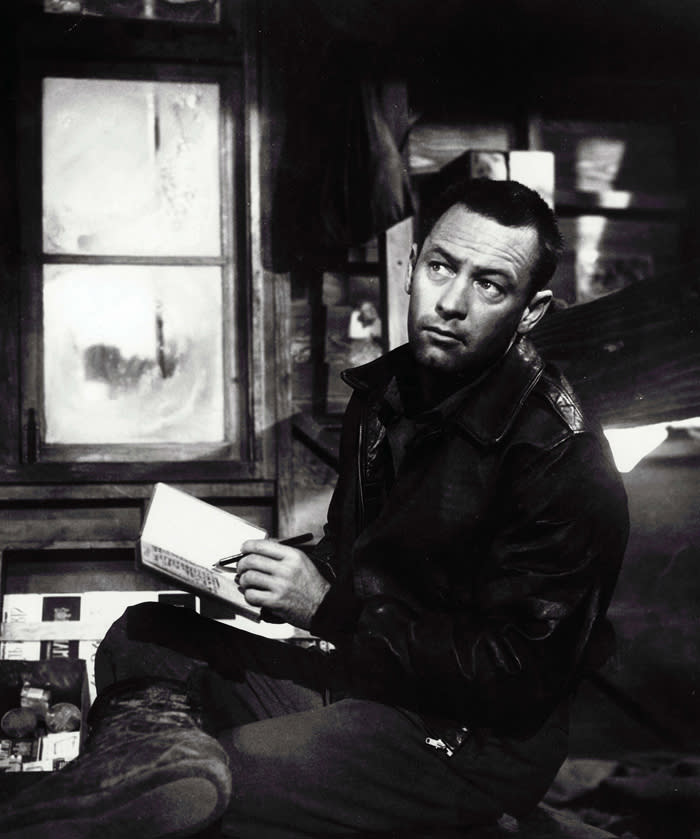
“Stalag 17”
William Holden made a splashy debut in “Golden Boy” (1939), but had a hard time finding roles to match his talent until Billy Wilder’s “Sunset Blvd” (1950). Three years after starring in that classic, Holden won the Oscar, again under Wilder’s direction, as a cynical POW during WWII.
Gary Cooper (1952)
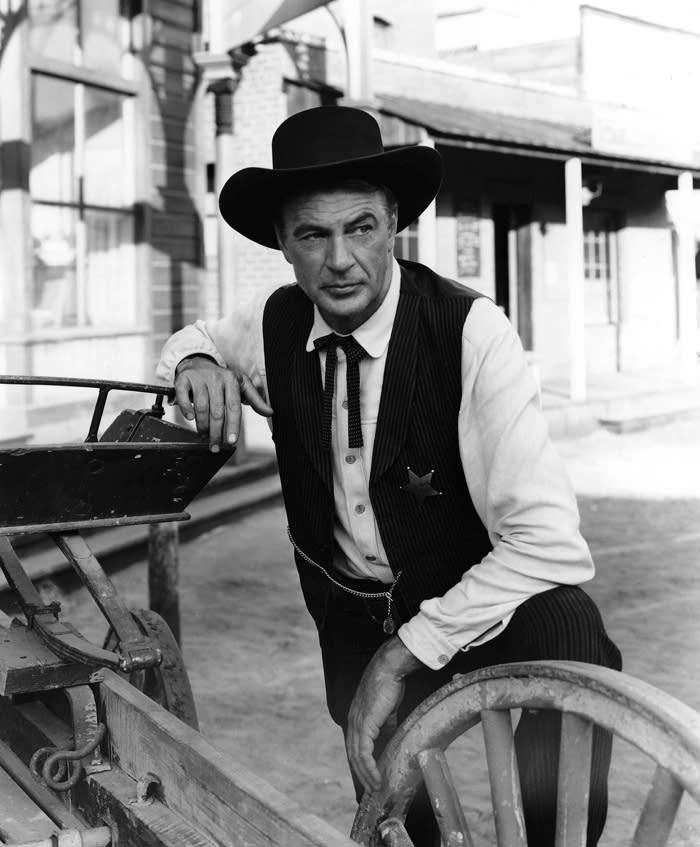
“High Noon”
Gary Cooper scored his second win for “High Noon,” only the second actor to take top prize for a western. Many saw this film as a McCarthy-era parable, about a sheriff who single-handedly takes on a gang of murderous outlaws.
Humphrey Bogart (1951)
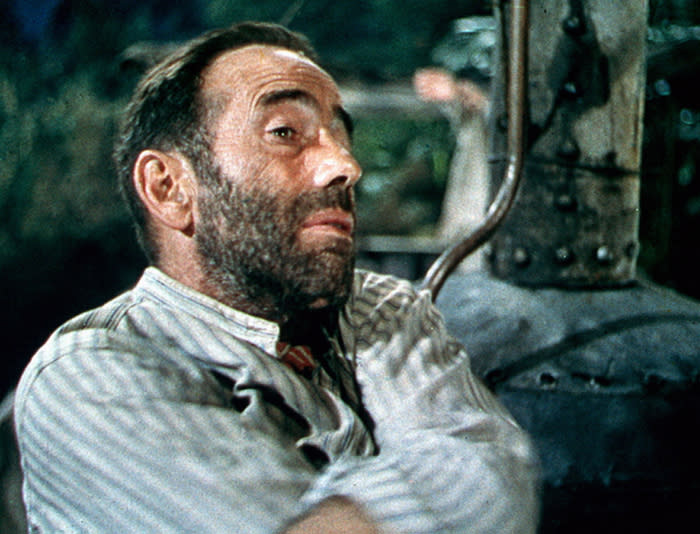
“The African Queen”
Humphrey Bogart had been a star since 1936, with his greatest successes in film noirs like “The Maltese Falcon” and “The Big Sleep.” He is probably best remembered for “Casablanca,” but he won his Oscar as the Cockney skipper sparring with Katharine Hepburn.
Jose Ferrer (1950)
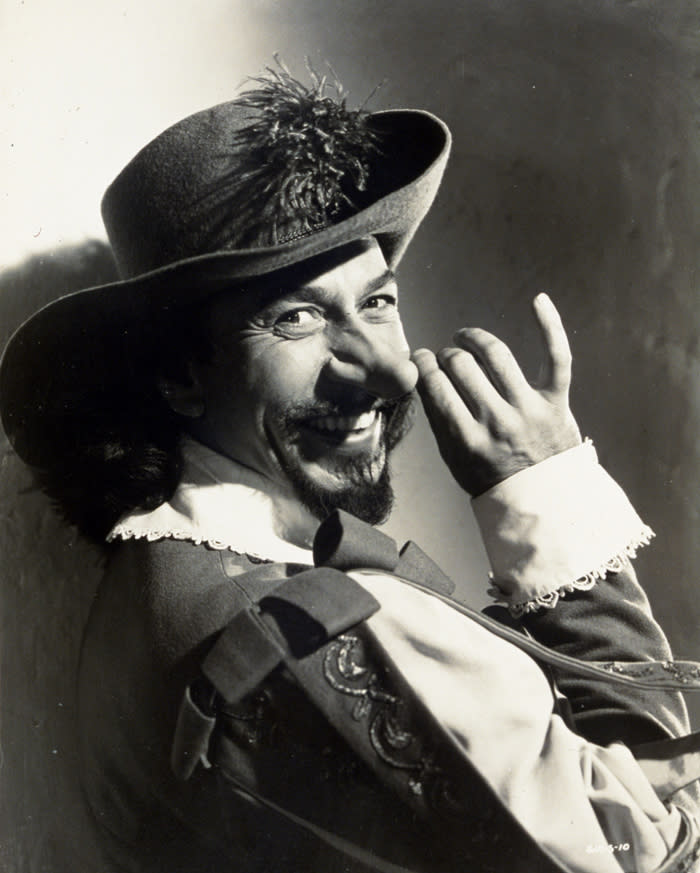
“Cyrano de Bergerac”
Jose Ferrer, born in Puerto Rico, became the first Latino/Hispanic acting winner. He won in his flashy role as the big-nosed poet-swordsman in the film adaptation of Edmond Rostand’s play. Ferrer had also won a Tony Award for his performance. (He had tied with Fredric March of “Years Ago” to take home the first Tony for best actor, in the 1946/47 season).
Broderick Crawford (1949)
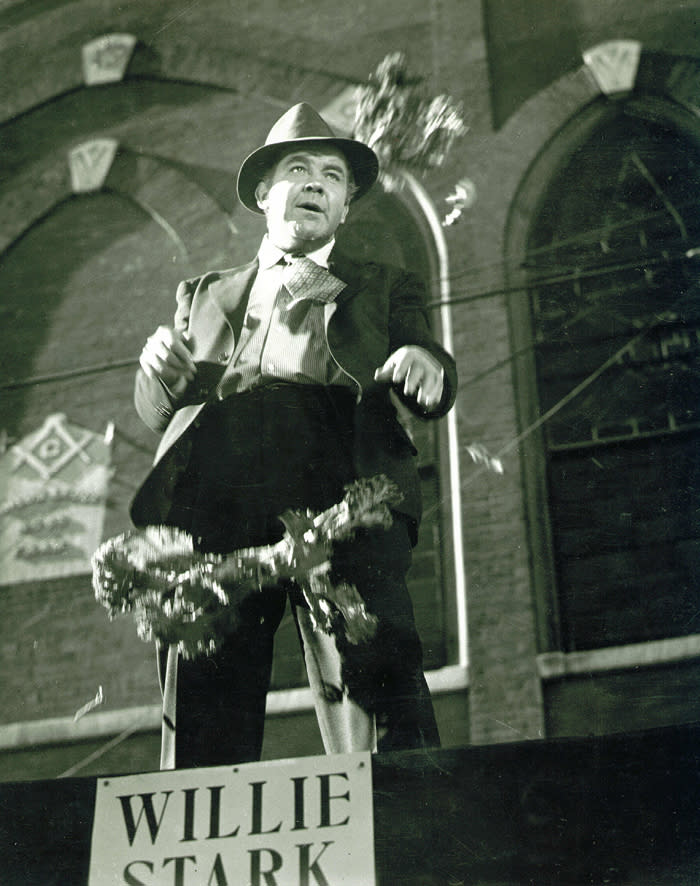
“All the King’s Men”
Character actor Broderick Crawford won for his work as Willie Stark, a character based on Louisiana’s powerful and corrupt governor Huey Long. The film was directed by Robert Rossen, based on Robert Penn Warren’s Pulitzer-winning novel. The film won three awards, including best picture.
Laurence Olivier (1948)
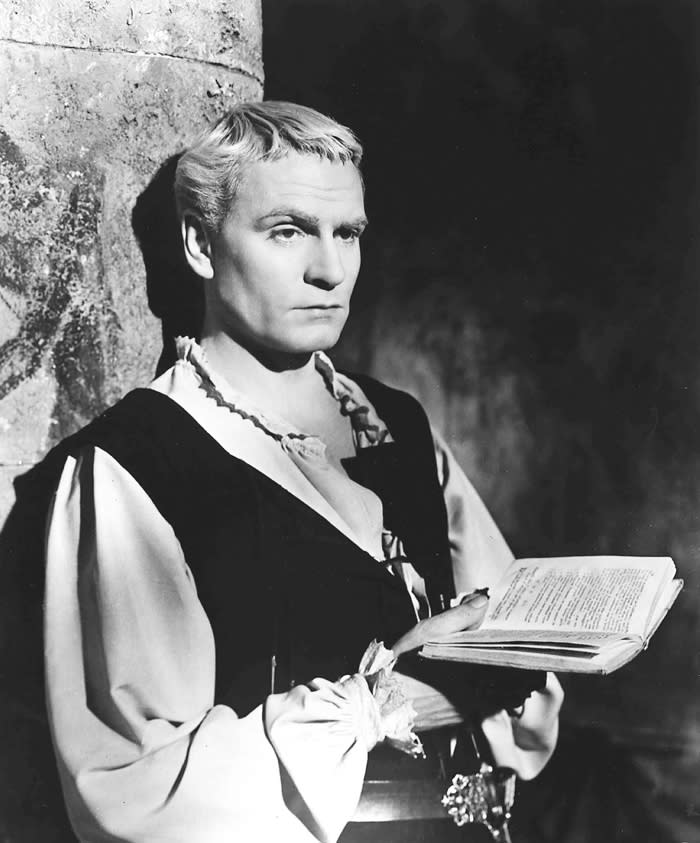
“Hamlet”
Laurence Olivier, one of the world’s great actors, won in one of the greatest roles of all time. He became the first of only two actors to direct himself to a best-actor win. The film won three other Oscars, including best picture.
Ronald Colman (1947)
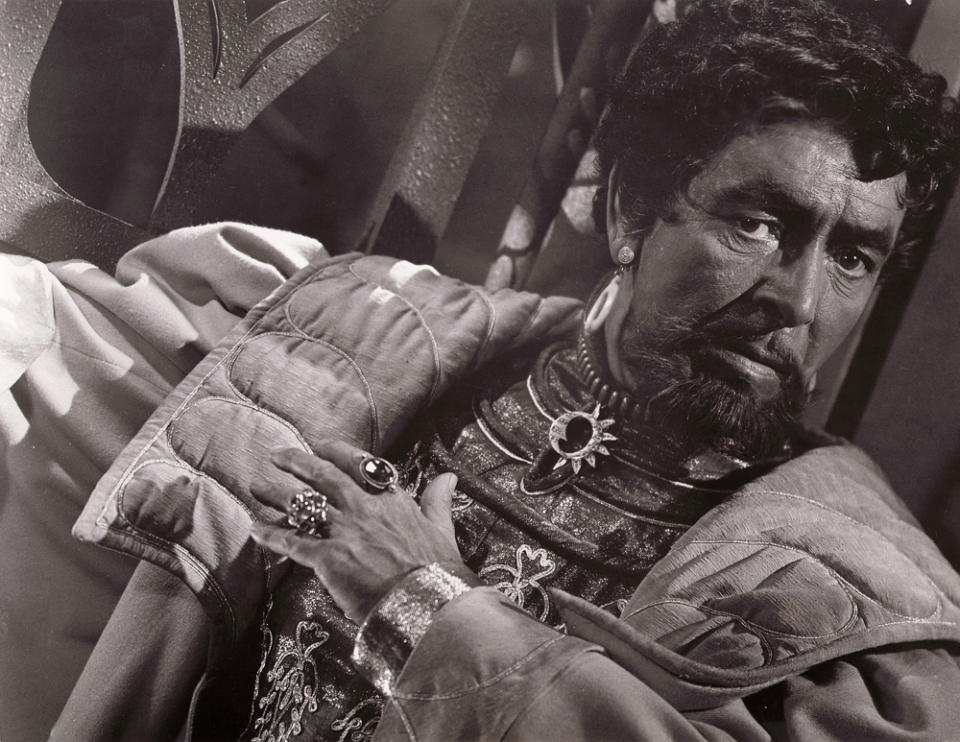
“A Double Life”
Ronald Colman, the silky-voiced English actor, won on his third nomination, playing an actor. In the film, the character is starring in a stage version of “Othello” and the work gets under his skin so much that he contemplates murder.
Fredric March (1946)
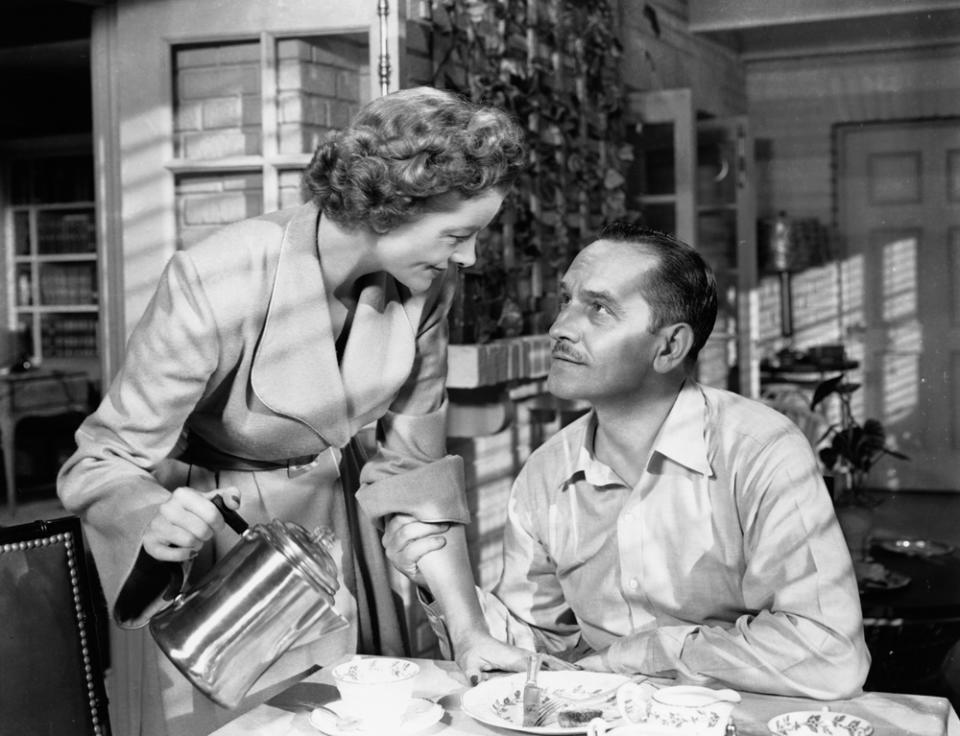
“The Best Years of Our Lives”
Fredric March was the second actor (after Spencer Tracy) to become a repeat winner in the best-actor category. March’s win was one of eight Oscars awarded to the William Wyler-directed film about WWII vets trying to adjust to life after the war.
Ray Milland (1945)
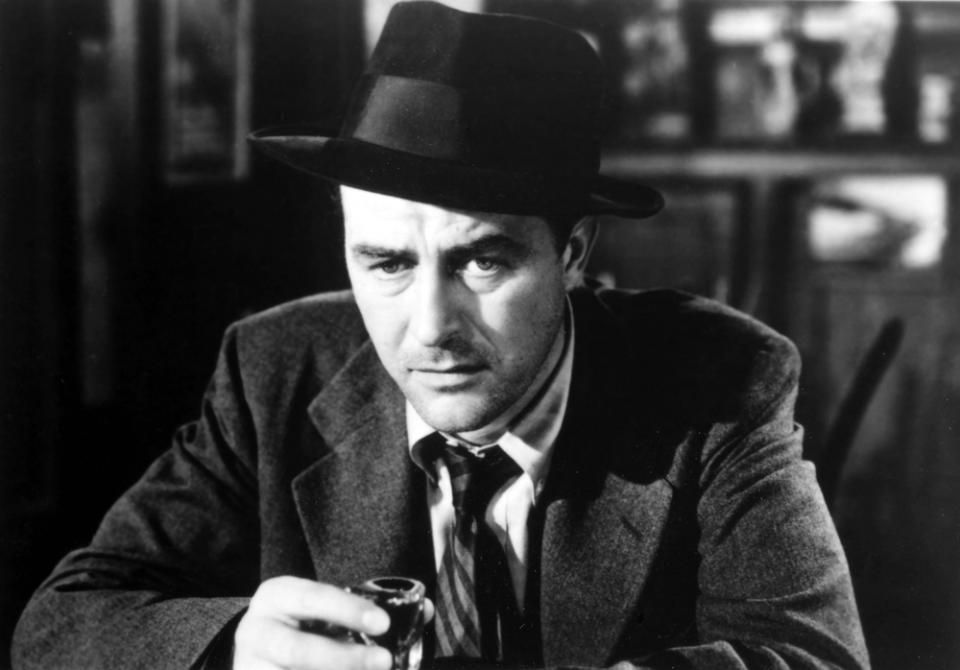
“The Lost Weekend”
Hollywood had been portraying alcoholics for laughs or for pathos, but never really explored how heavy drinking affects daily life. This is a Hollywood “serious issue” film but it holds up well, thanks to director Billy Wilder and to the performance of Ray Milland, who’d been in a lot of films but never had never had a role so gritty and demanding.
Bing Crosby (1944)
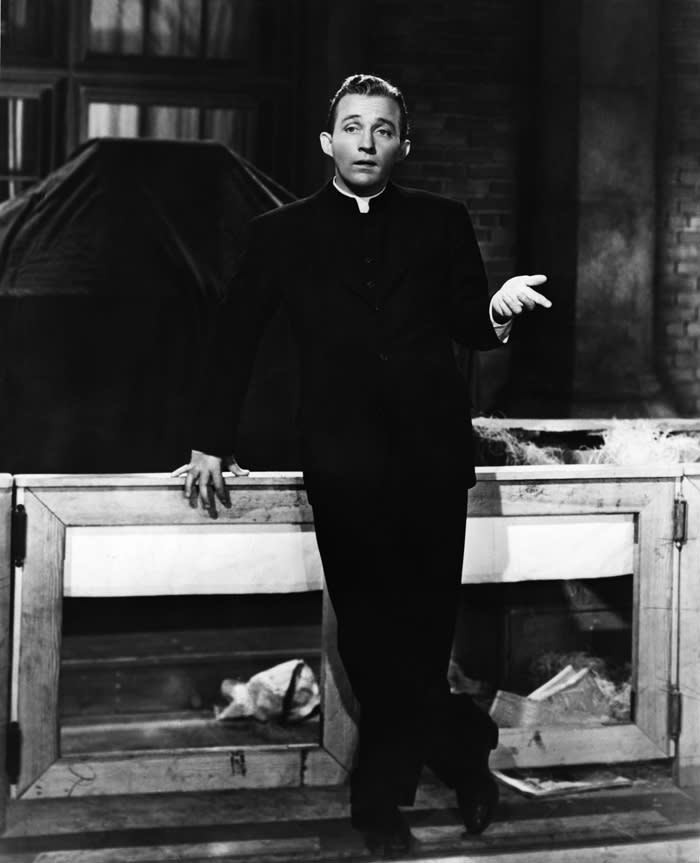
“Going My Way”
Bing Crosby was the king of crooners in the 1930s, and appeared in various musicals and several “Road” movies with Bob Hope. But he found the perfect musical-dramatic role for his velvet-voiced charm as the unconventional Father Chuck O’Malley, assigned to a poor parish where he butts heads with his superior (Barry Fitzgerald).
Paul Lukas (1943)
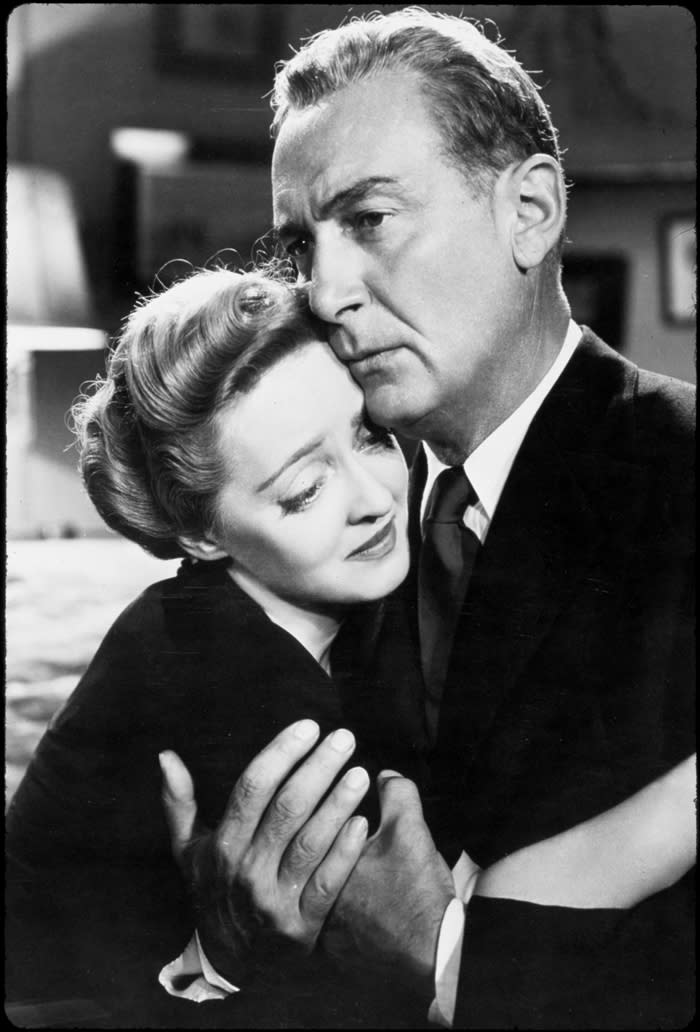
“Watch on the Rhine”
Paul Lukas, born in Hungary, came to Hollywood in 1927 and won an Oscar for re-creating his stage performance in Lillian Hellman’s “Watch on the Rhine.” He played a German engineer married to an American (Bette Davis), with both of them fighting fascism.
James Cagney (1942)
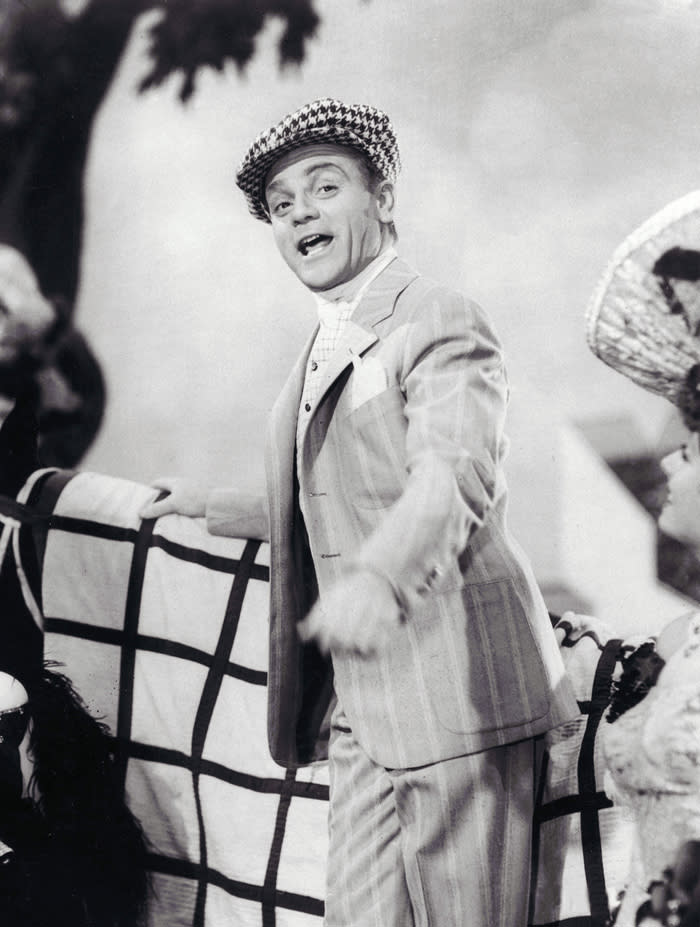
“Yankee Doodle Dandy”
After a decade of success in gangster roles (e.g., the 1931 “The Public Enemy”) James Cagney reminded Hollywood of his unique song-and-dance style in this bio of vaudeville-stage actor-writer George M. Cohan. (Variety is featured prominently in the backstage musical; in one scene, Cohan explains the classic 1935 headline “Sticks Nix Hick Pix” to some students.) Cagney was the fourth actor in seven years to win for playing a real person.
Gary Cooper (1941)
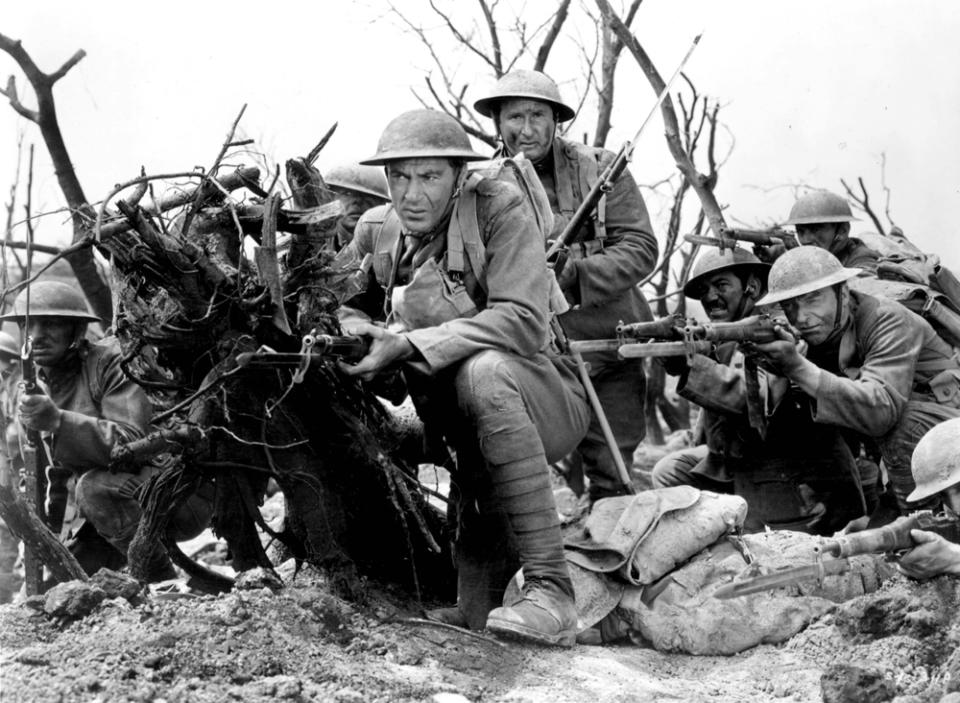
“Sergeant York”
With his good looks and down-to-earth quality, Gary Cooper was a beloved Hollywood star. He again proved that he was also a good actor as Alvin York, a real-life WWI pacifist who becomes a war hero. It’s one of many Hollywood films of the era designed to persuade Americans of the importance of joining the war.
James Stewart (1940)
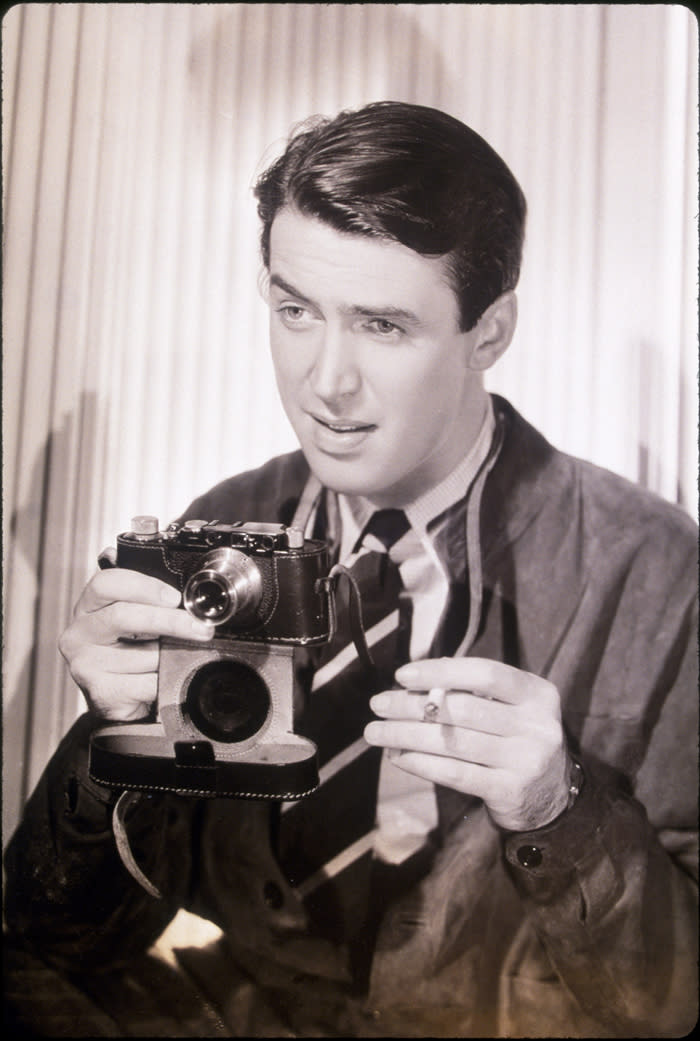
“The Philadelphia Story”
James Stewart had been one of the front-runners in 1939 for his tour-de-force work in “Mr. Smith Goes to Washington.” The best actor race for 1940 was full of heavy-hitters, including Charlie Chaplin, Henry Fonda, Laurence Olivier and Raymond Massey, but Stewart won for his role opposite Katharine Hepburn and Cary Grant.
Robert Donat (1939)
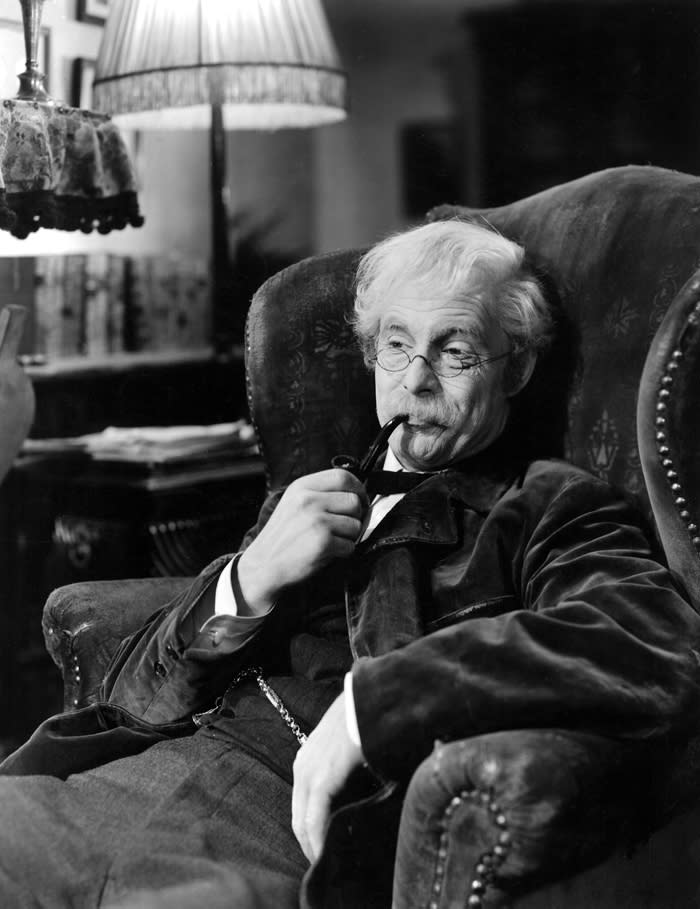
“Goodbye, Mr. Chips”
The Canadian actor Robert Donat was the surprise winner, with pundits predicting James Stewart for “Mr. Smith Goes to Washington” or maybe Clark Gable as part of a “Gone With the Wind” sweep. But Donat’s award was well-deserved for his work as a shy professor at an English boys school who slowly falls in love and learns his value as a teacher.
Spencer Tracy (1938)
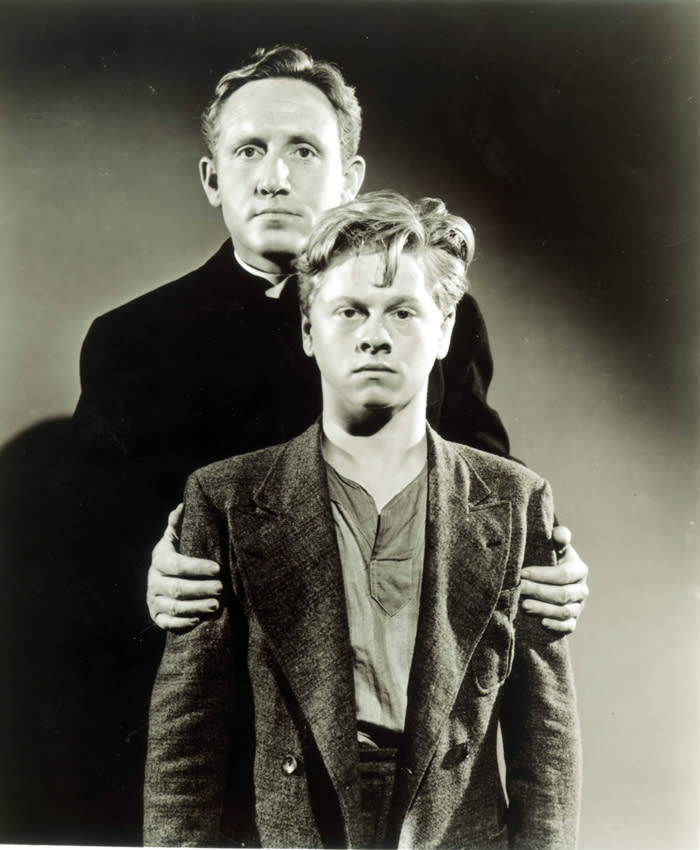
“Boys Town”
Spencer Tracy became the second of five back-to-back acting Oscar winners. Luise Rainer was first (1936-37); she and Tracy were followed by Katharine Hepburn, Jason Robards, then Tom Hanks. In “Boys Town” (made in an era when members of the clergy were depicted positively in Hollywood films), Tracy played the real-life Father Flanagan, a priest who created a refuge near Omaha for boys who were homeless or abused.
Spencer Tracy (1937)
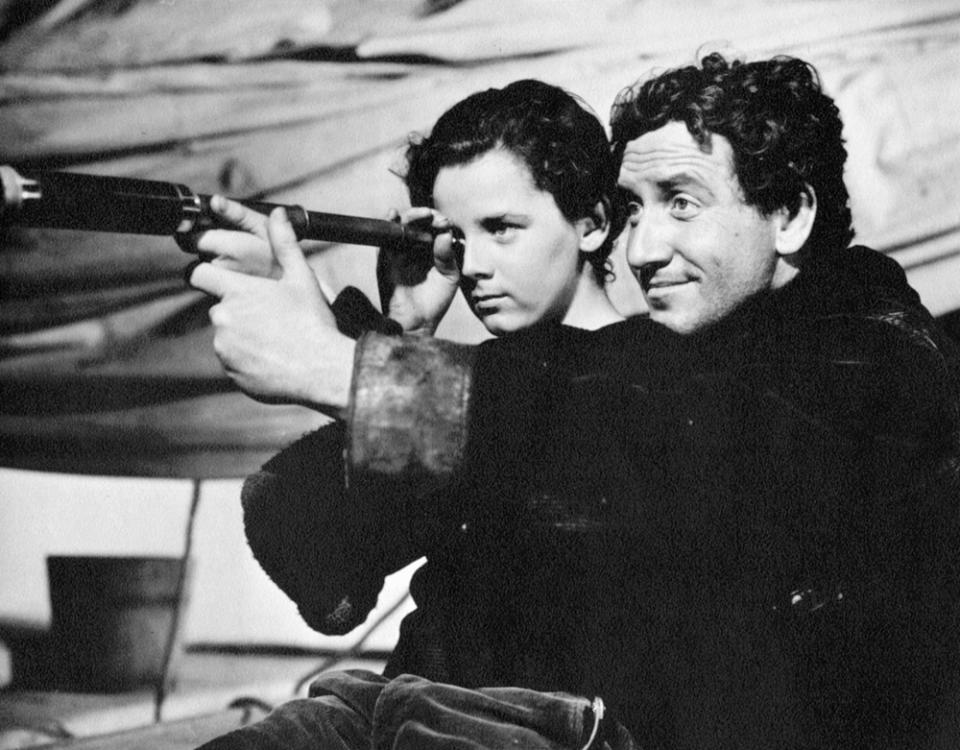
“Captains Courageous”
“Captains Courageous” was a change of pace for Spencer Tracy, who often played American rocks of Gibraltar. In the adaptation of Kipling’s work, he played a Portuguese fisherman who is a mentor to a young boy.
Paul Muni (1936)
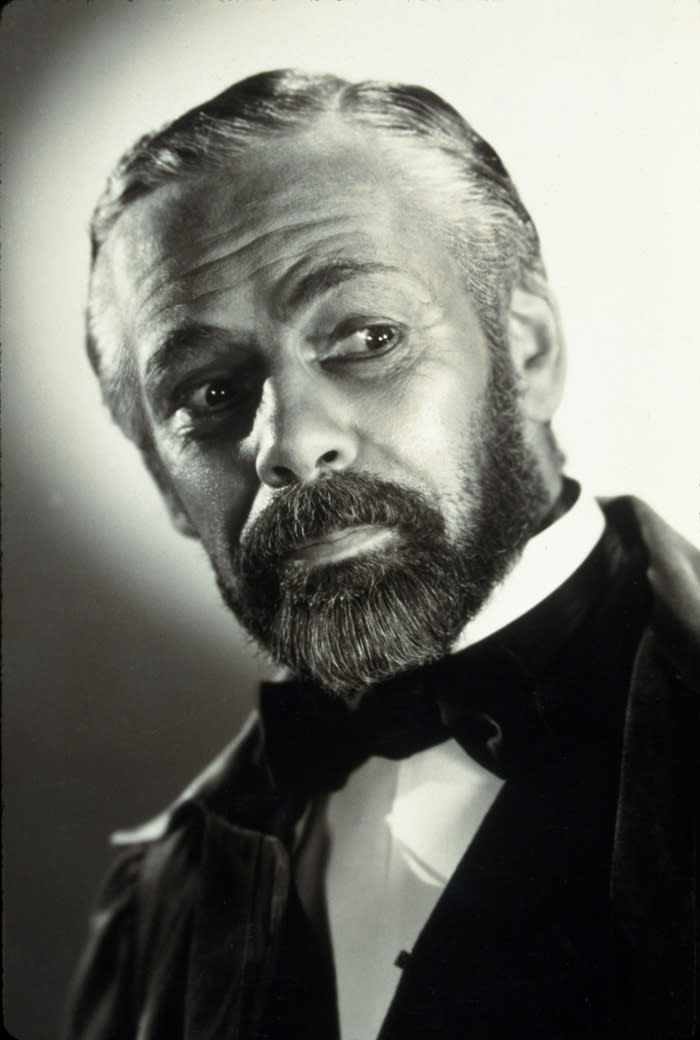
“The Story of Louis Pasteur”
Paul Muni was the Meryl Streep of his generation, displaying a great range of looks and voices in his film career. He was born in Europe (in an area that’s now the Ukraine), and became a member of Yiddish Art Theatre in New York. His work as the 19th century French scientist resulted in the fourth of his six Oscar noms.
Victor McLaglen (1935)
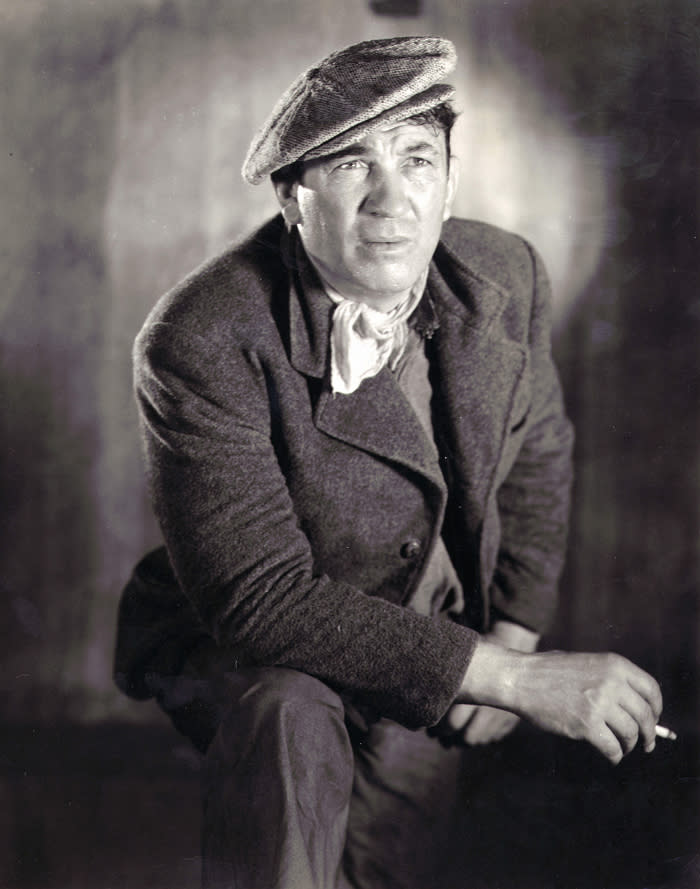
“The Informer”
Victor McLaglen was the third best actor winner in a decade who was born in Britain. McLaglen, of Scottish heritage, plays a guilt-driven man who turns in his friend for a cash reward during Dublin’s 1920 rebellion.
Clark Gable (1934)
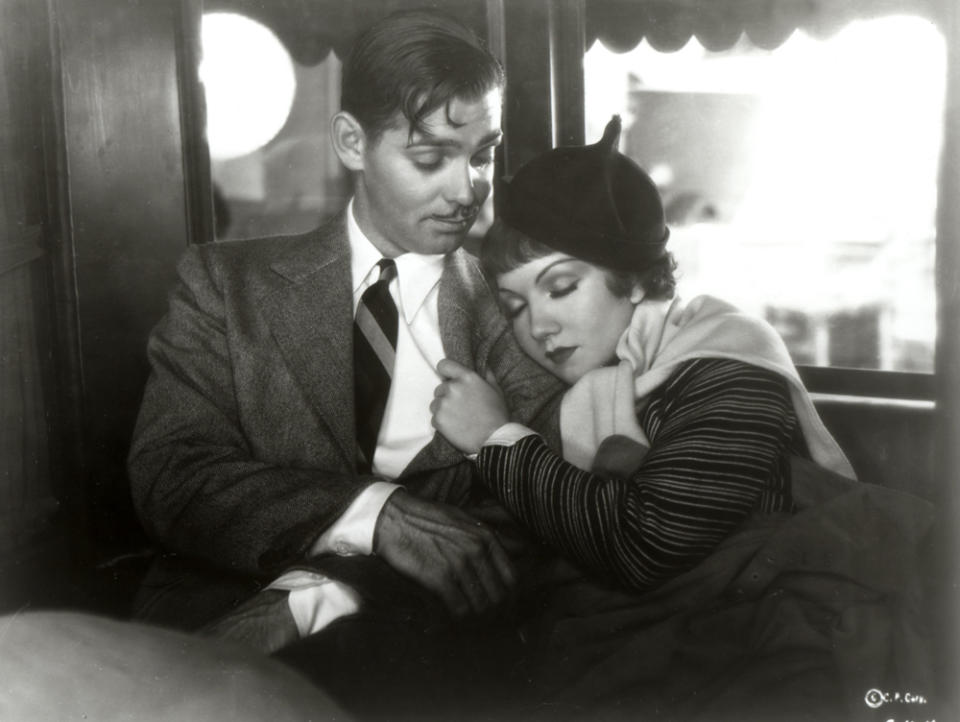
“It Happened One Night”
Clark Gable, often called “The King Of Hollywood,” was a big star for 30 years. “It Happened One Night” is the first of three films to take the top five Oscars: best picture, director (Frank Capra), script (Robert Riskin), actress (Claudette Colbert) and actor.
Charles Laughton (1932/33)
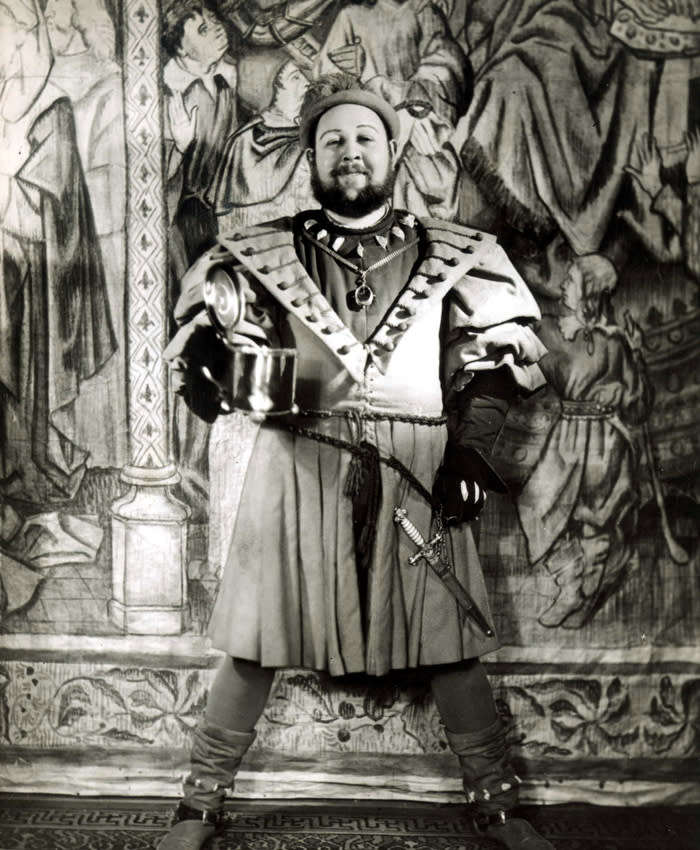
“The Private Life of Henry VIII”
Charles Laughton marked the first win for a non-Hollywood production. The actor is best remembered for this role, the 1935 “Mutiny on the Bounty,” the 1939 “The Hunchback of Notre Dame,” and the Agatha Christie drama “Witness for the Prosecution” (1957). Billy Wilder, who directed “Witness,” hailed Laughton as one of the all-time great actors.
Fredric March (1931/32)
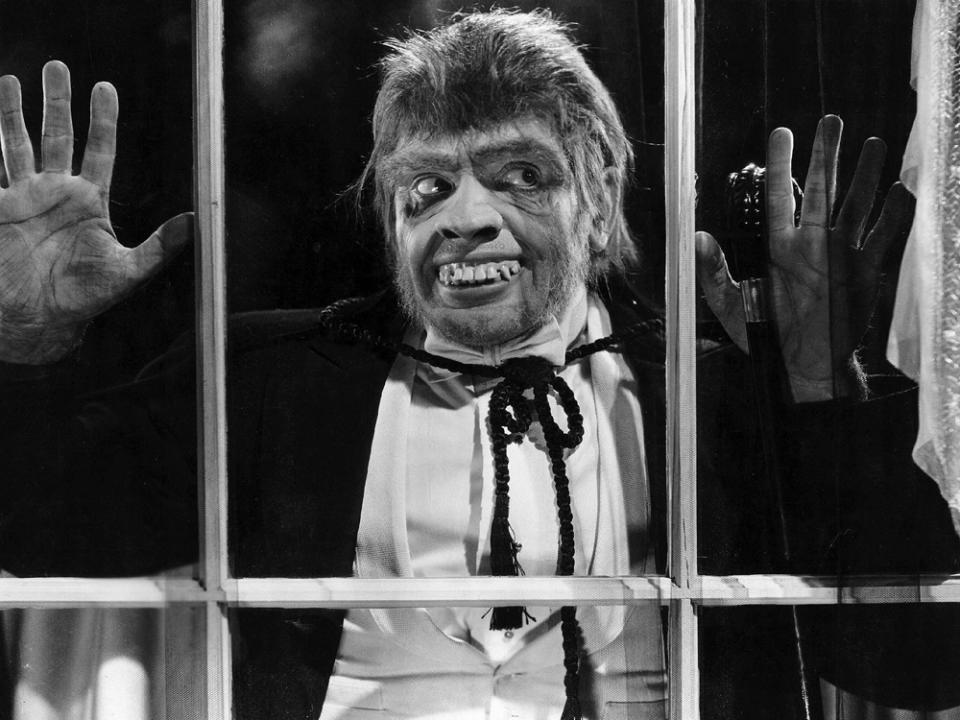
“Dr. Jekyll & Mr. Hyde”
(Tie, with one more vote than Wallace Beery, which the Academy decided was close enough to honor both of them)
The Robert Lewis Stevenson tale had been filmed several times before. This was the first of two best-actor wins for March, a stage actor who later was cited by Marlon Brando and William Holden as an inspiration.
Wallace Beery (1931/32)
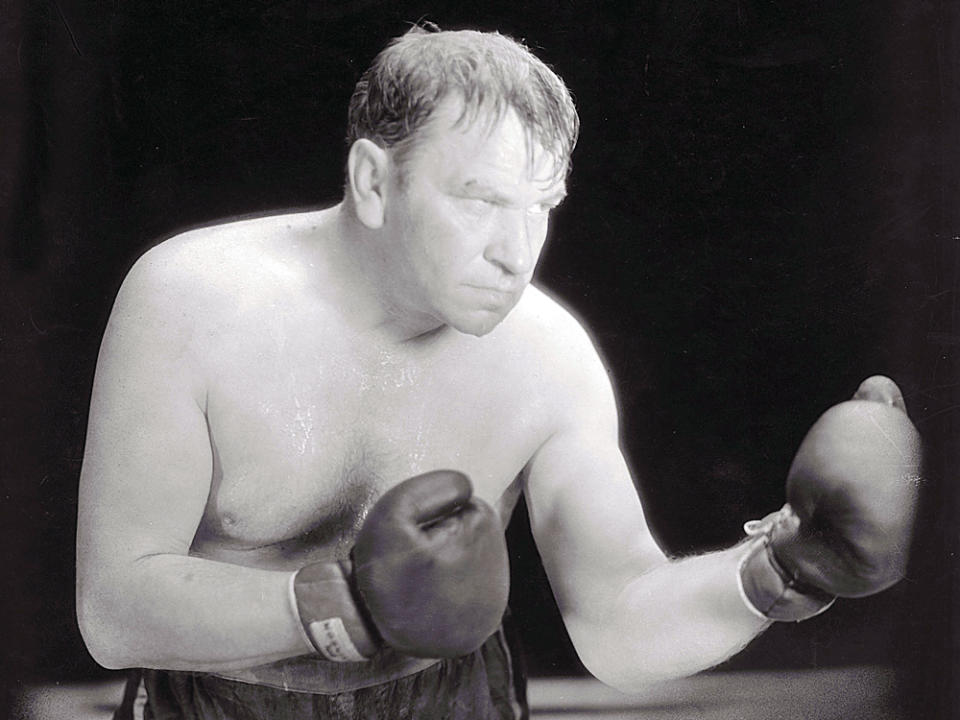
“The Champ”
(Tie, Beery had one vote less than March)
Beery appeared in about 250 films, including MGM’s all-star “Grand Hotel” and “Dinner at Eight.” He won his Oscar as an over-the-hill boxer who works hard on his relationship with his young son (Jackie Cooper).
Lionel Barrymore (1930/31)
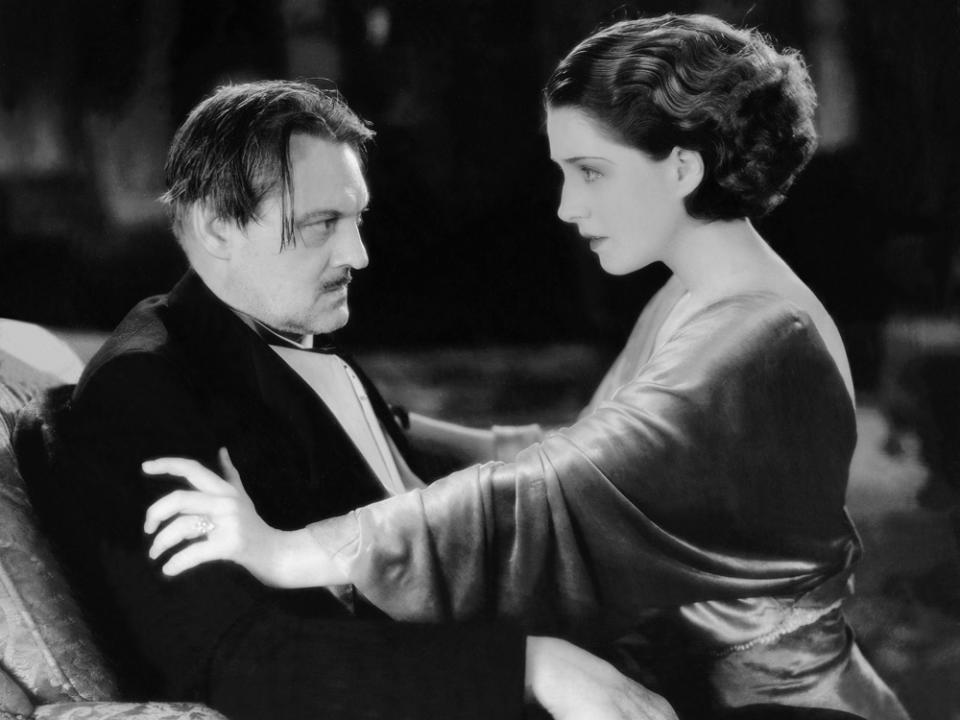
“A Free Soul”
Lionel Barrymore was the older brother of Ethel and John, part of the esteemed family that reigned over Broadway and Hollywood in the early 20th century. He won for his role as an alcoholic lawyer whose life is complicated when his daughter falls in love with his client.
George Arliss (1929/30)
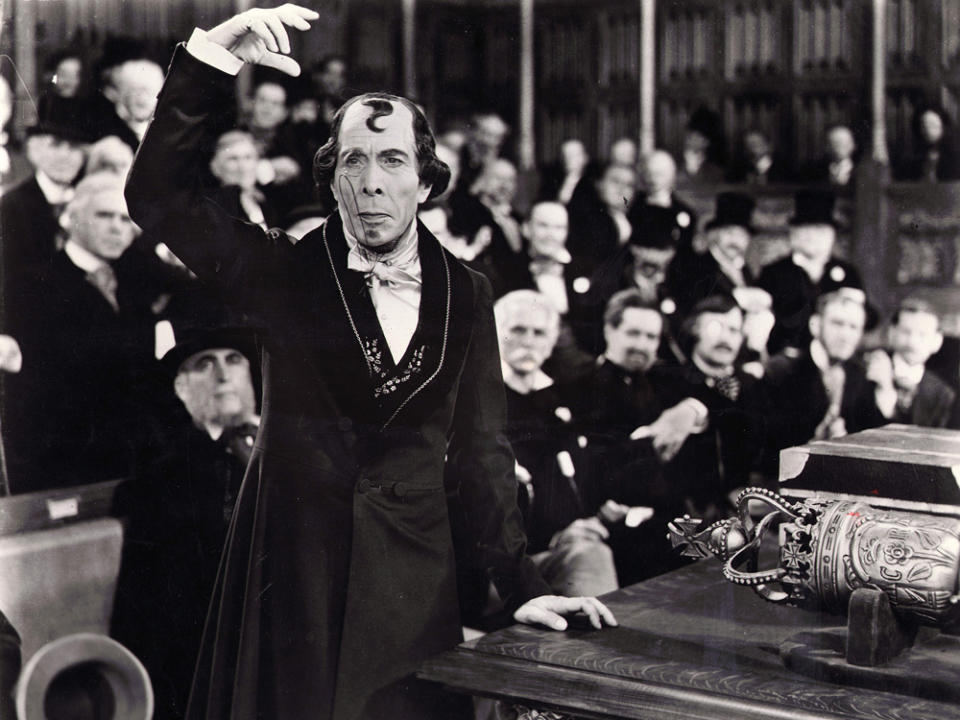
“Disraeli”
George Arliss was 61 when he won the best-actor prize. (The English actor was born in 1868). He had also starred in a 1911 stage production as the British Prime Minister, then a 1921 silent and got the Oscar for the 1929 talkie remake.
Warner Baxter (1928/29)
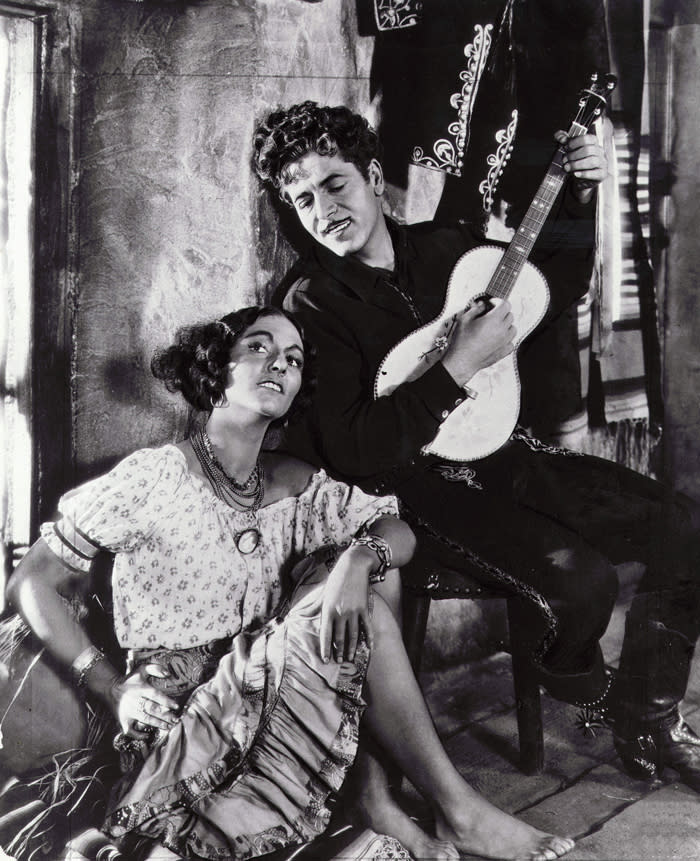
“In Old Arizona”
Warner Baxter won as the Cisco Kid , who rode around the Texas-Mexico border helping people. Baxter was the only person to win best actor for a Western until Gary Cooper 25 years later. Baxter’s most widely seen performance may be in the musical “42nd Street.”
Emil Jannings (1927/28)
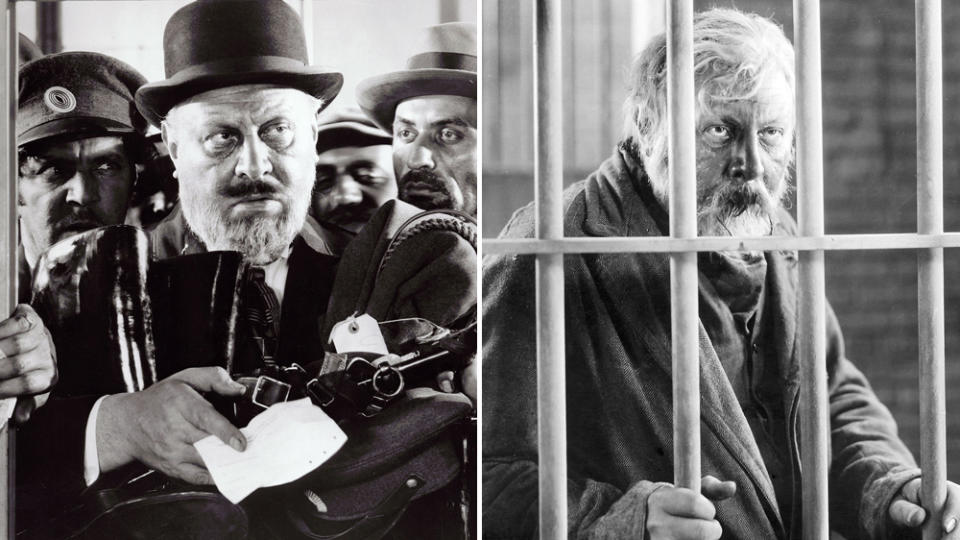
“The Last Command” and “The Way of All Flesh”
Emil Jannings was the first winner in this category, when actors could be nominated for multiple performances. Winners were announced in advance, and he requested his award before his departure for Germany, which makes him the first person ever to be handed an Oscar. Jannings won for “Last Command,” as a former Russian general who finds himself in Hollywood. In “Flesh,” he was an upstanding businessman whose life declines. But he is best remembered as the professor who is obsessed with cabaret singer Lola (Marlene Dietrich) in “The Blue Angel.”
